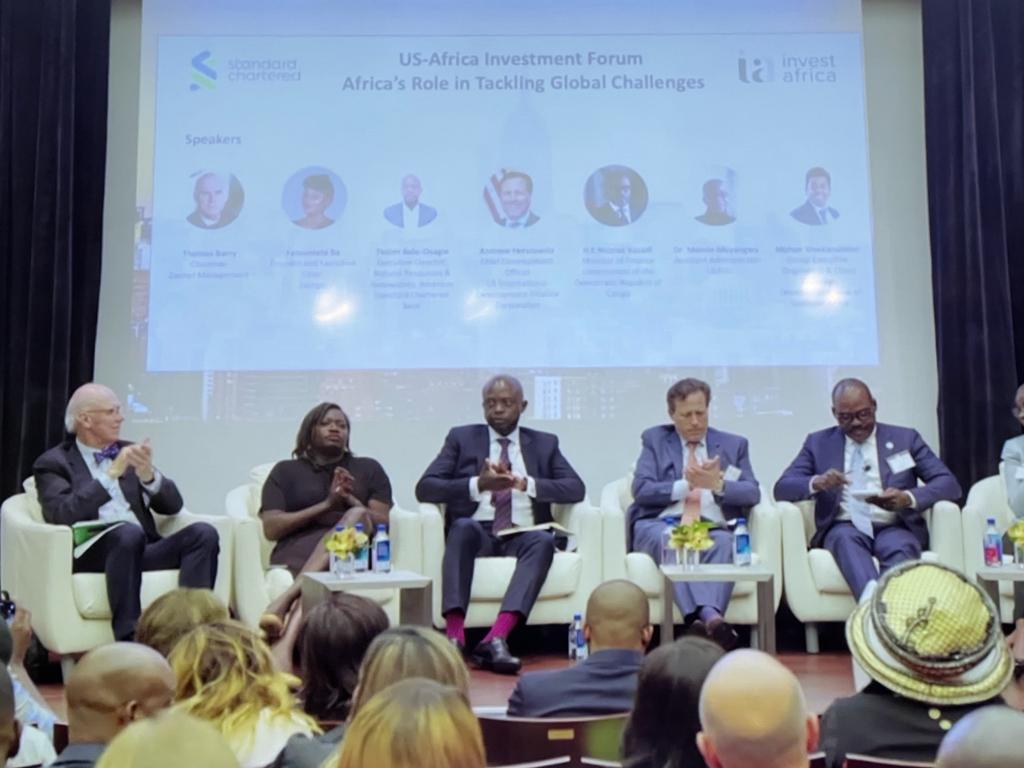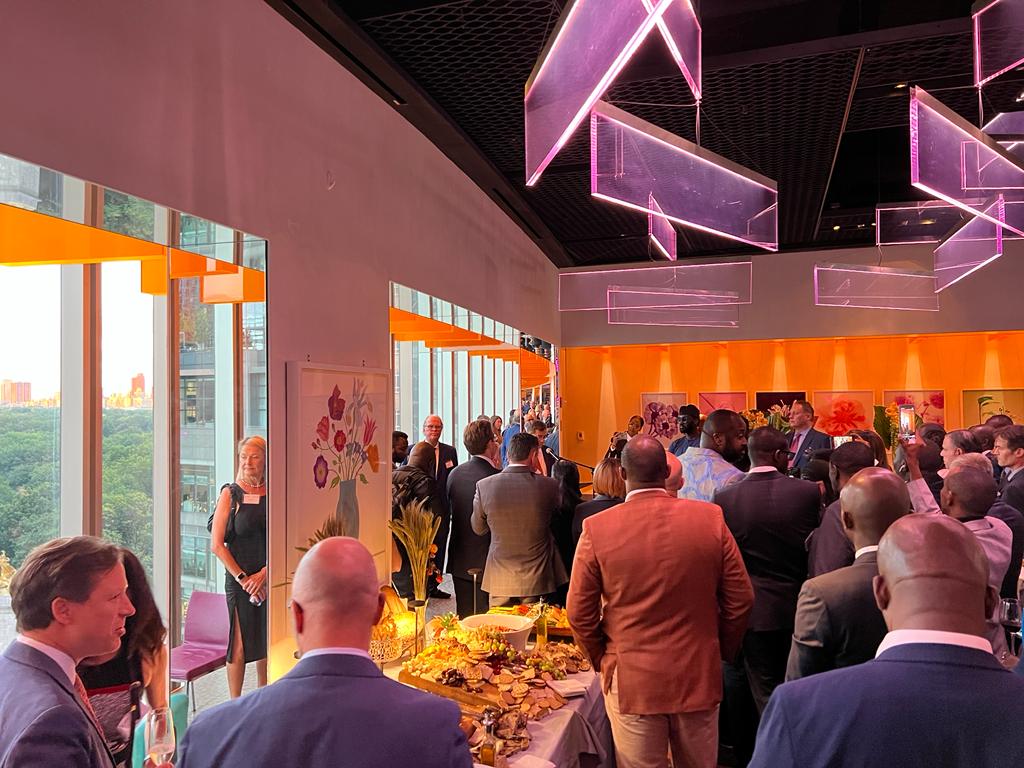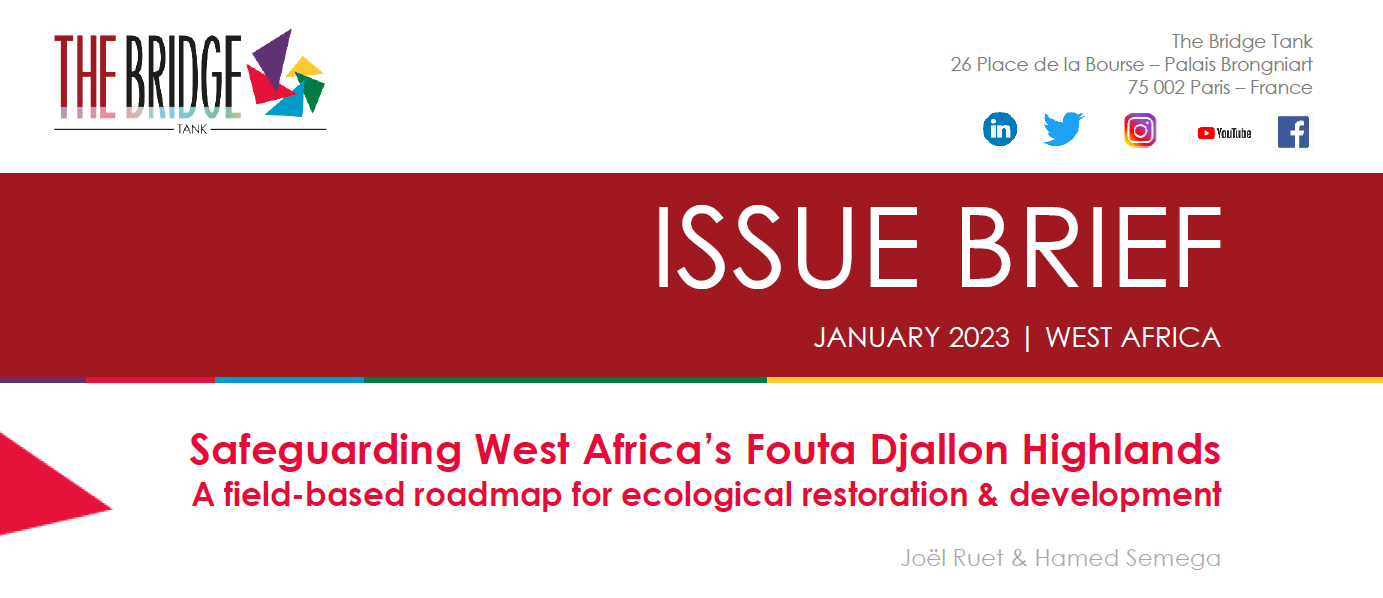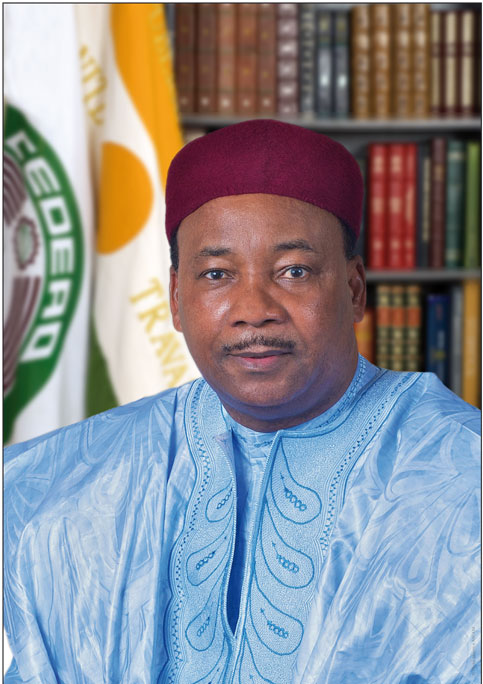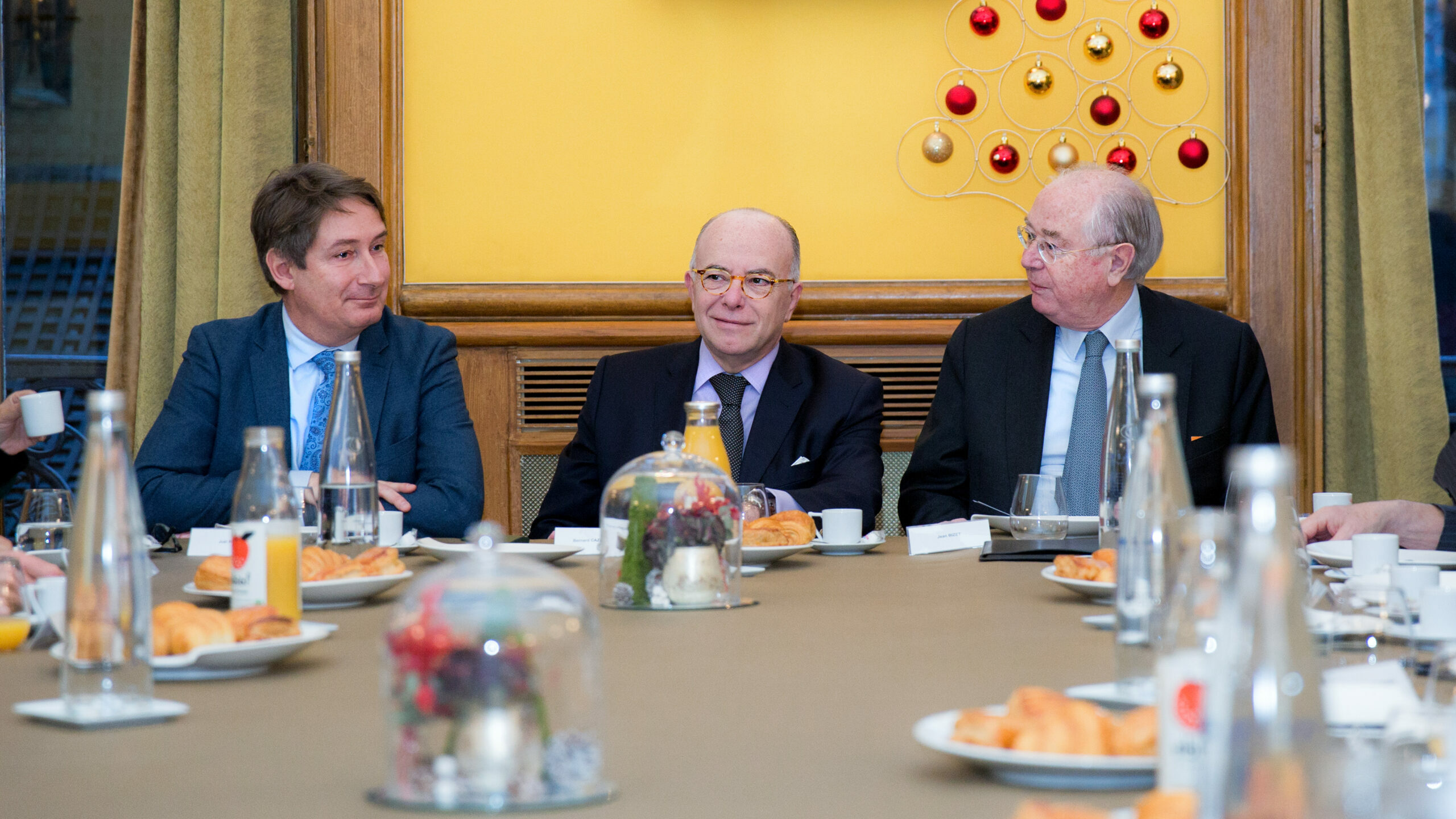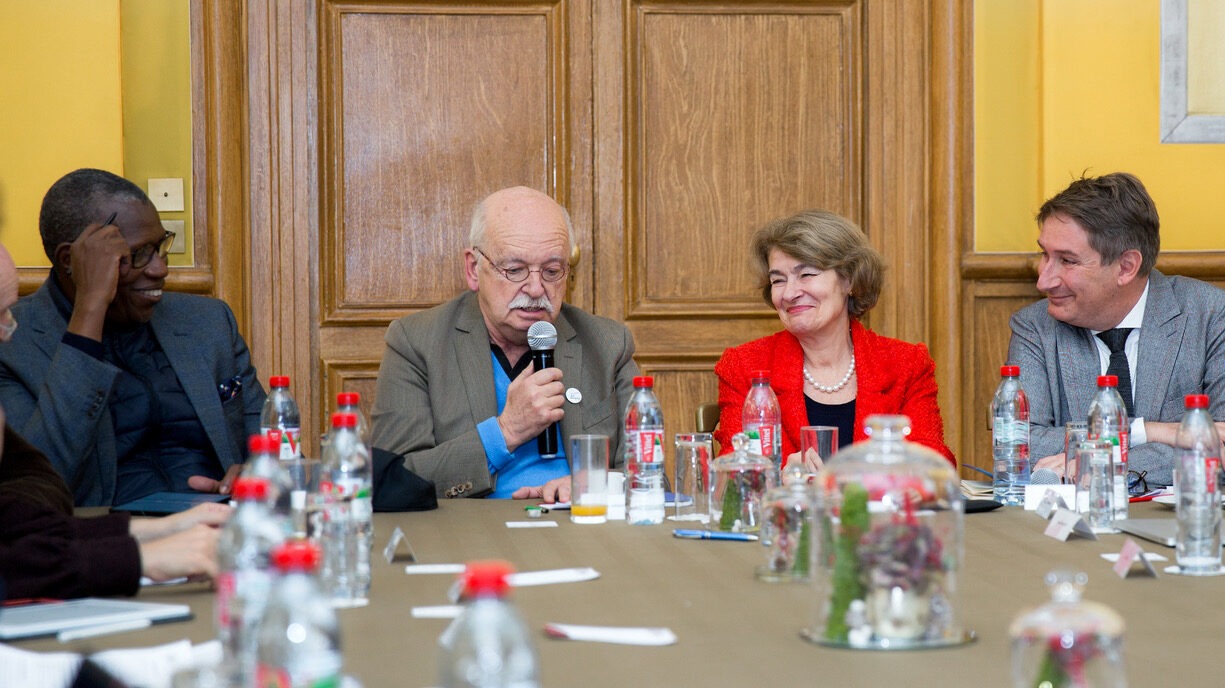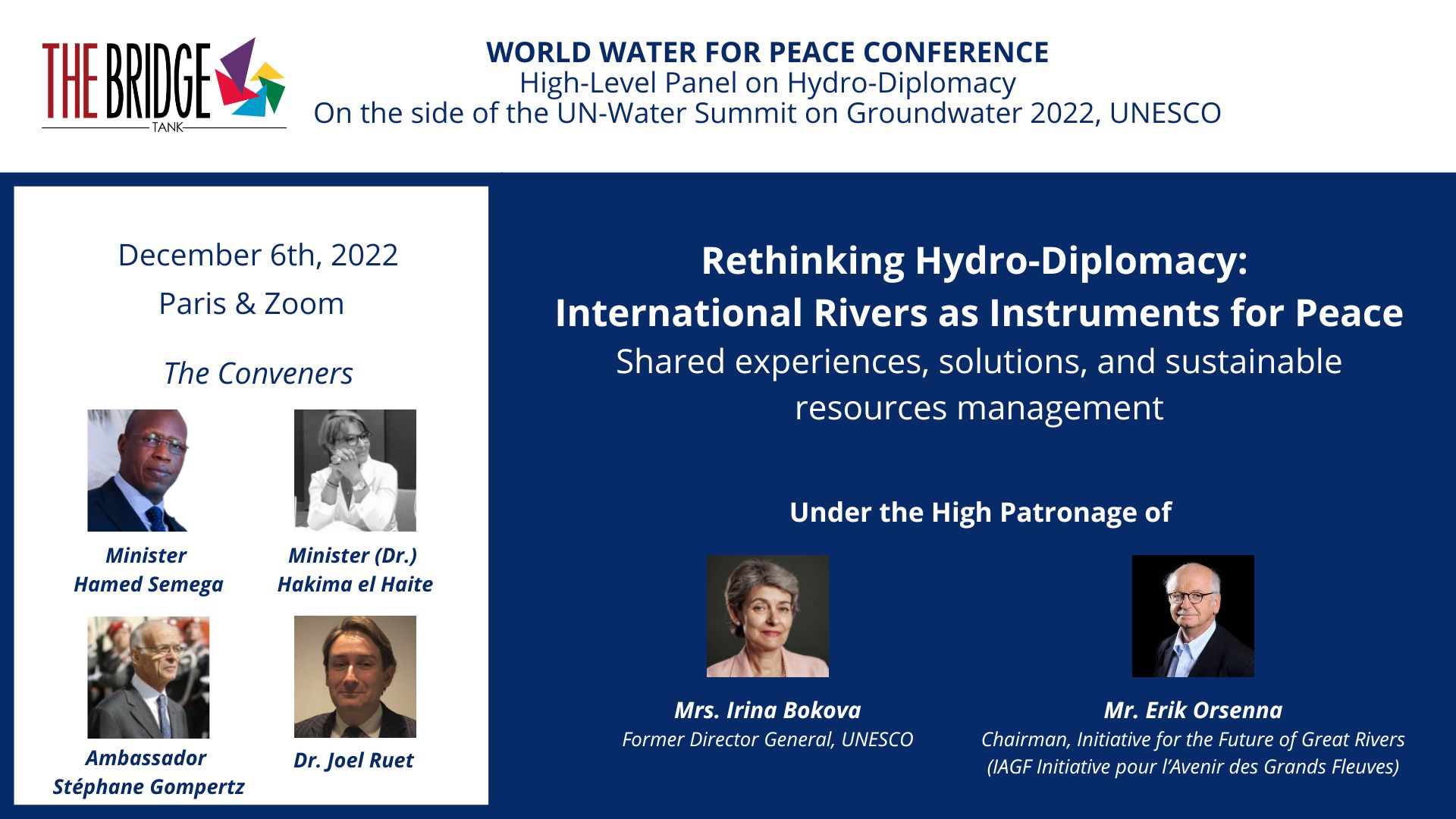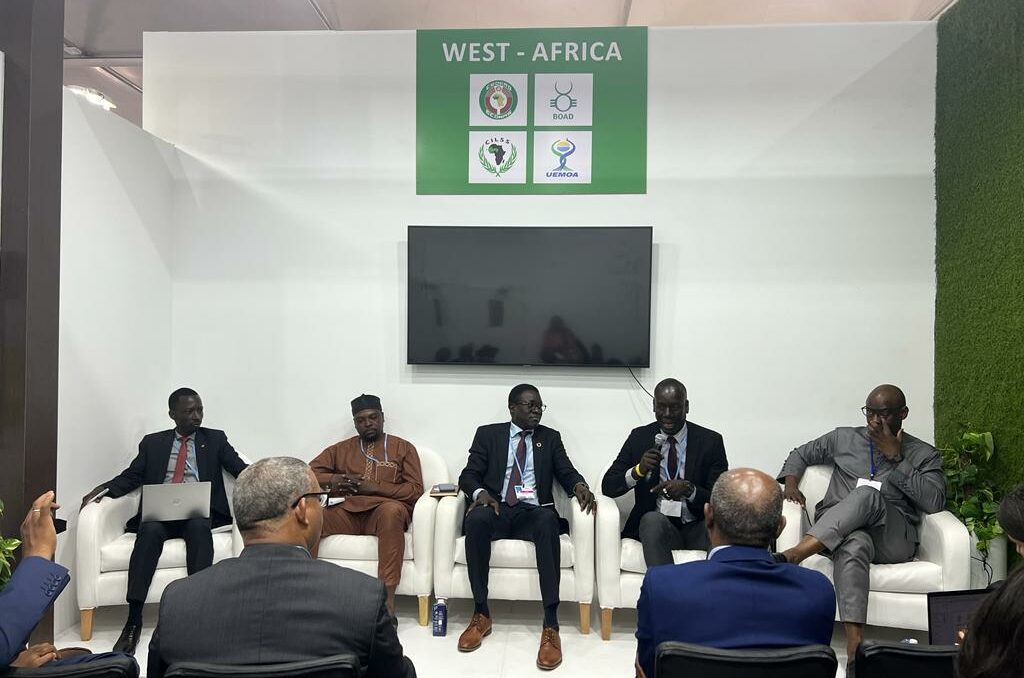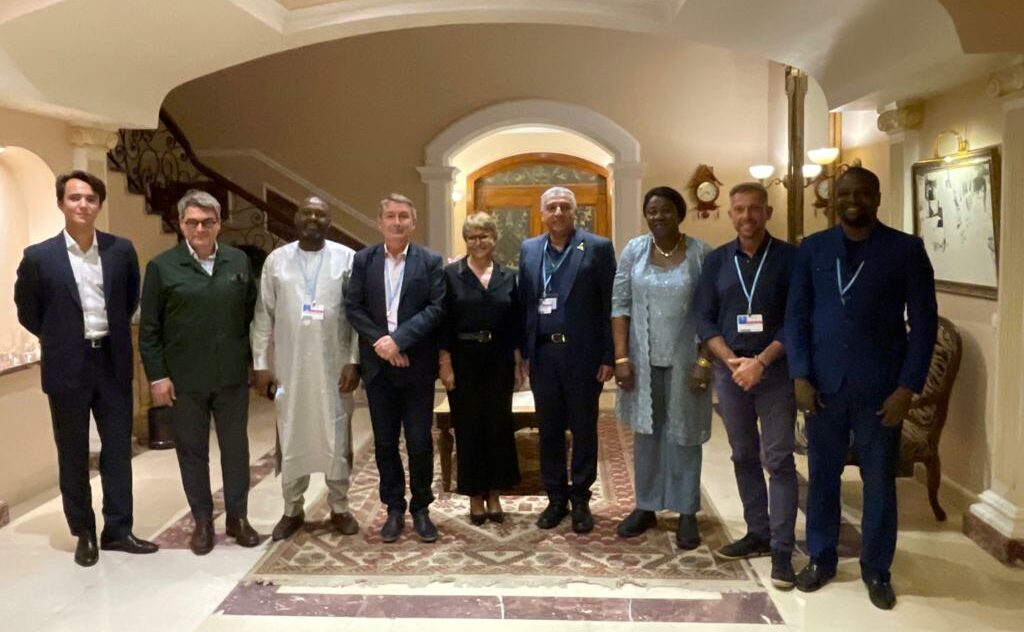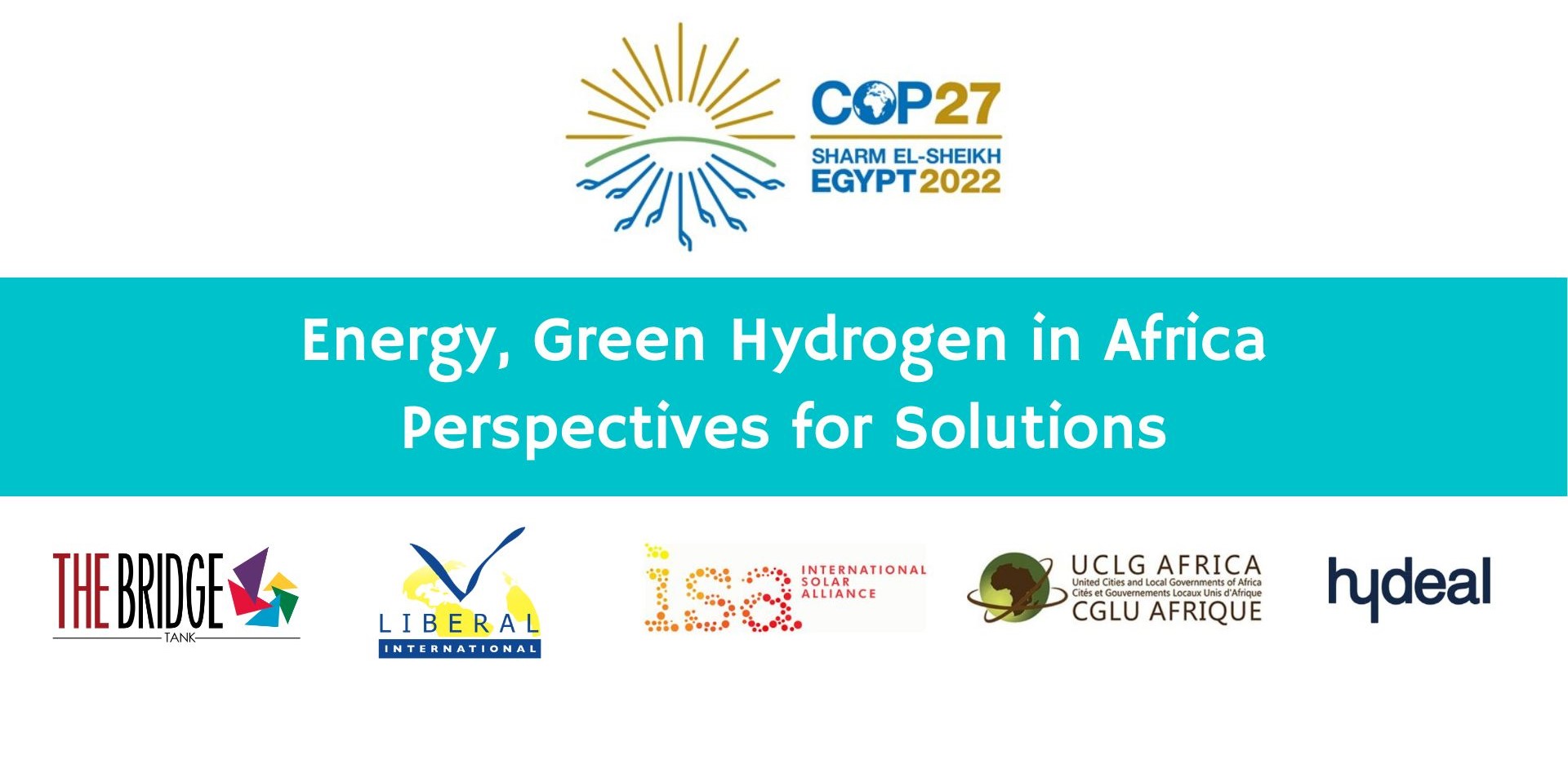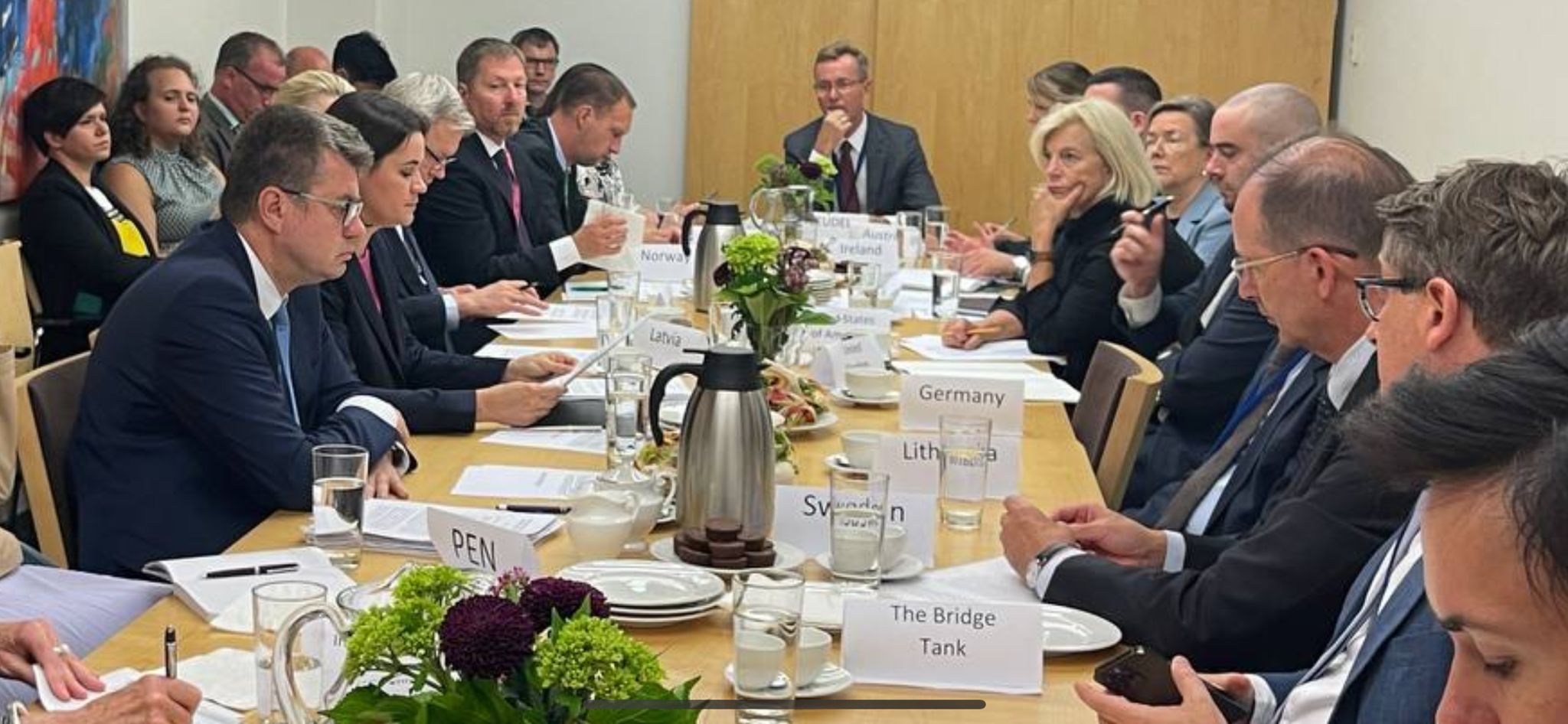“The Bridge Tank Breakfast Series” with Bernard Cazeneuve
On 12 January 2023, The Bridge Tank had the pleasure of hosting a new edition of “The Bridge Tank Breakfast Series” around Mr Bernard Cazeneuve, former French Prime Minister.
This closed-door meeting brought together some twenty eminent French and international economic and political decision-makers to discuss subjects relating to the structuring of French political life and the major European and international issues.
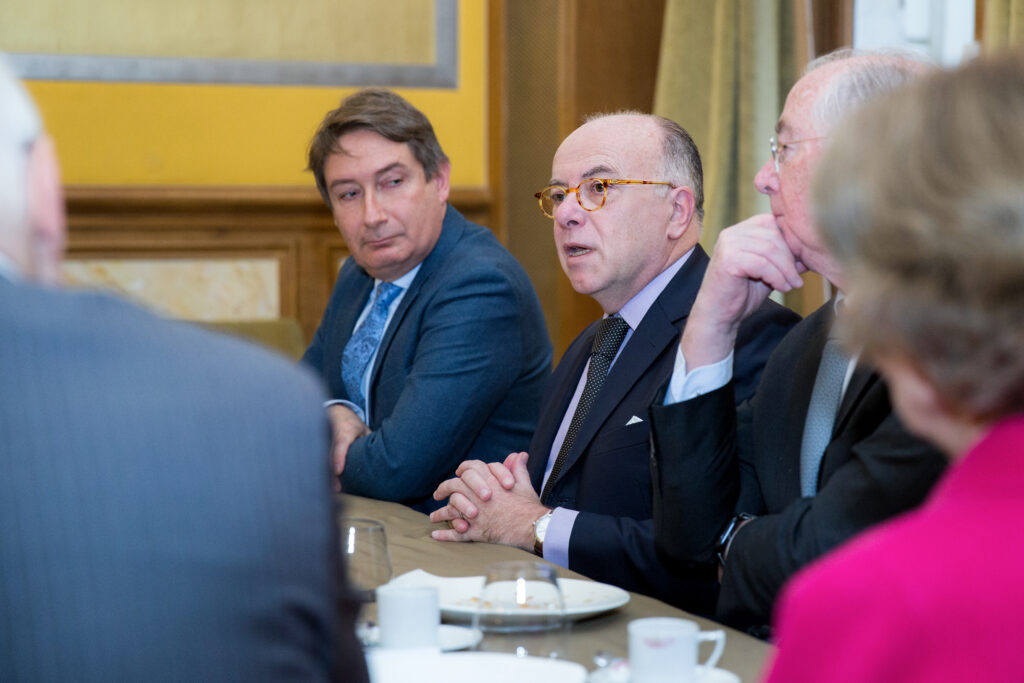
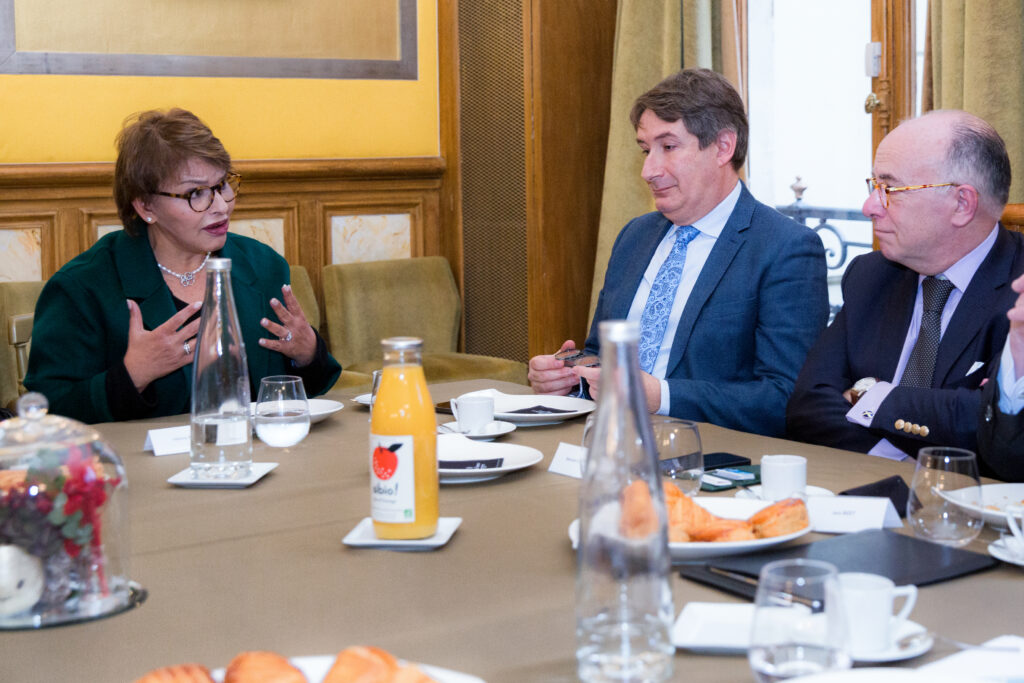
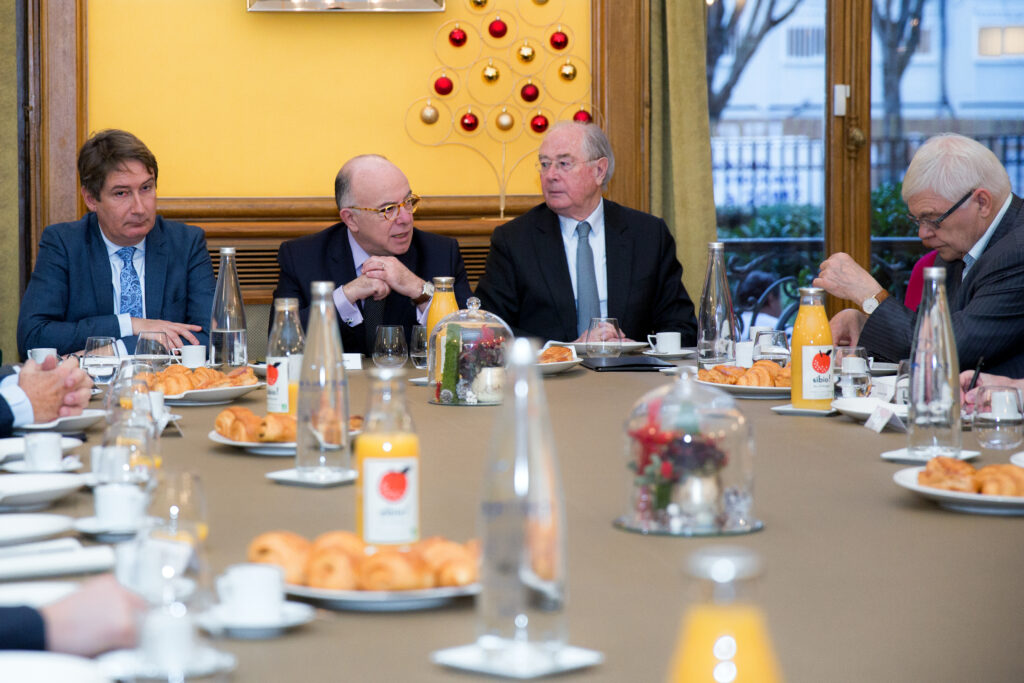
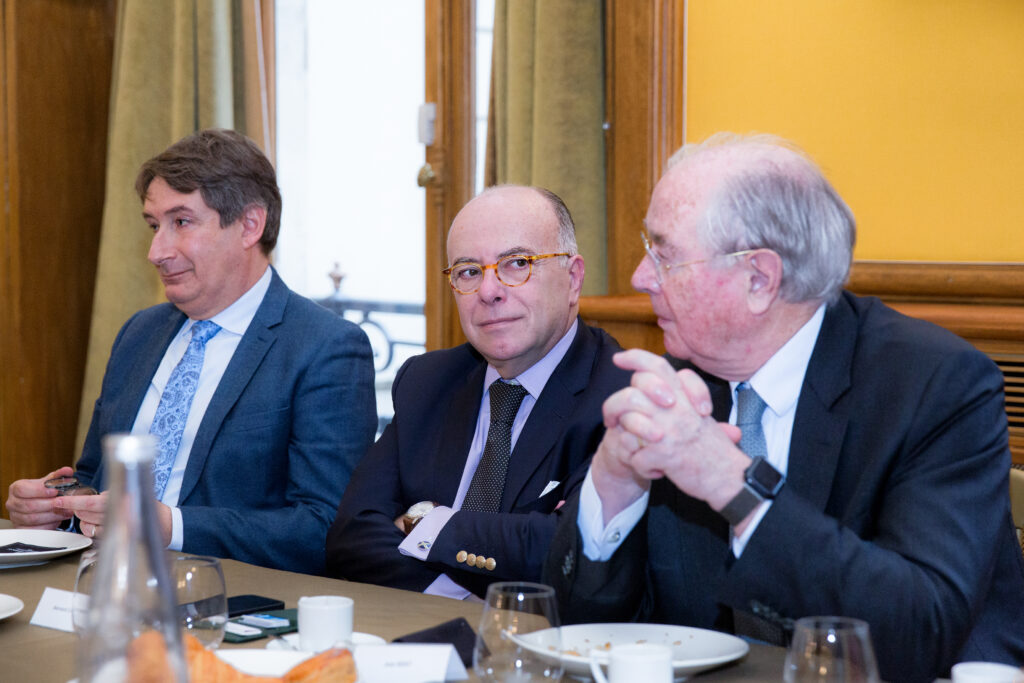
Held at the Cercle France-Amériques, the session moderated by our board member Jean Bizet, former chairman of the European Affairs Committee in the French Senate, and Joël Ruet, President, The Bridge Tank and economist at the Ecole Polytechnique, addressed topics ranging from the changing French political landscape, the conflict between Ukraine and Russia, the security situation in the Sahel and the French position in the region.
Through exchanges with the participants, Mr Cazeneuve was also able to share his expertise and analyses on topics such as :
- The French-German relationship in terms of defence strategies and industries;
- The need to strengthen European cooperation on energy transition issues;
- The relationship between companies and citizens;
- The migration crisis and European policies on the issue;
- The importance of Africa in the French energy transition.
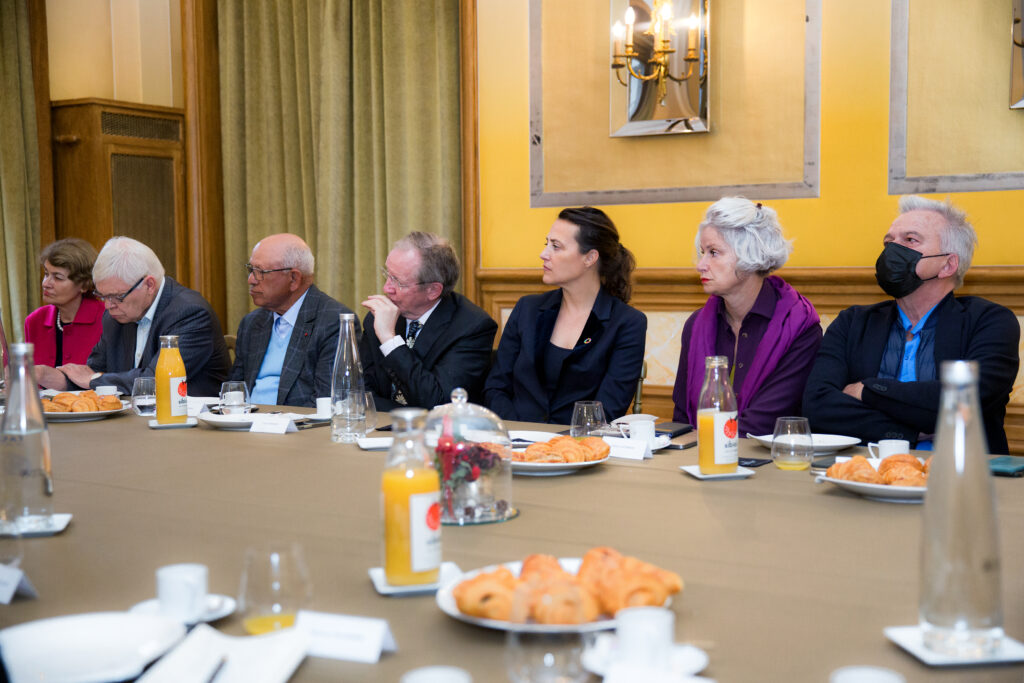
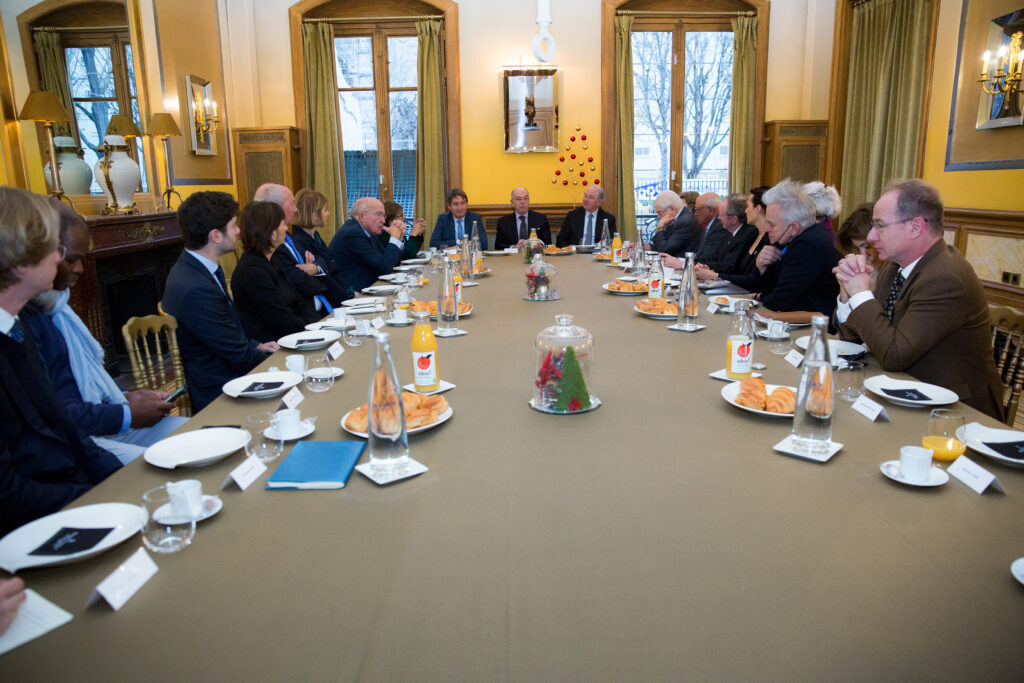
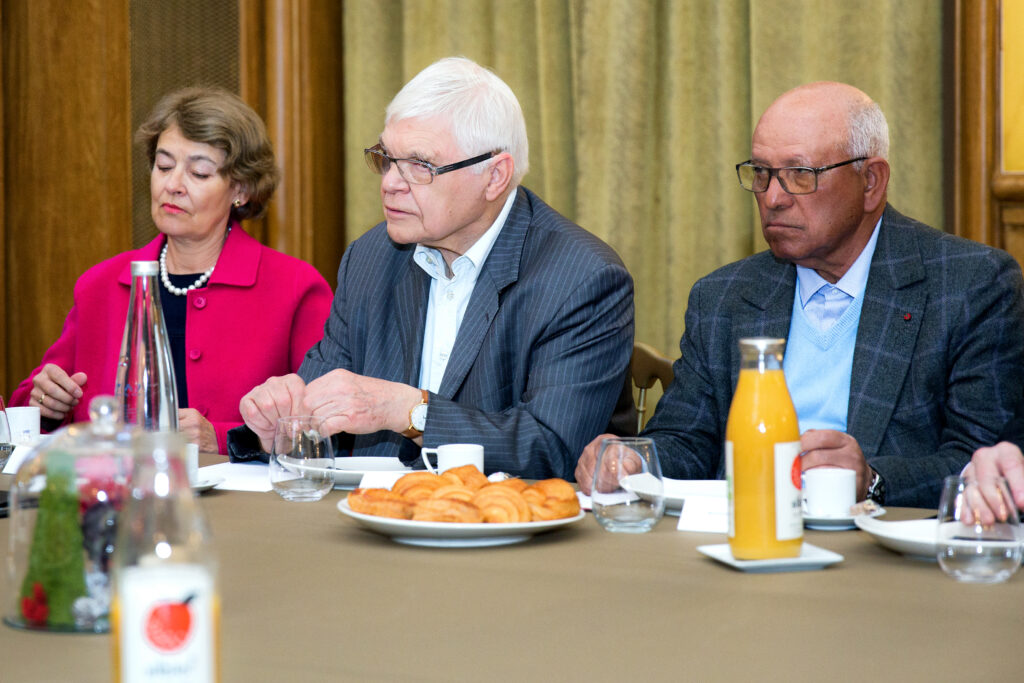
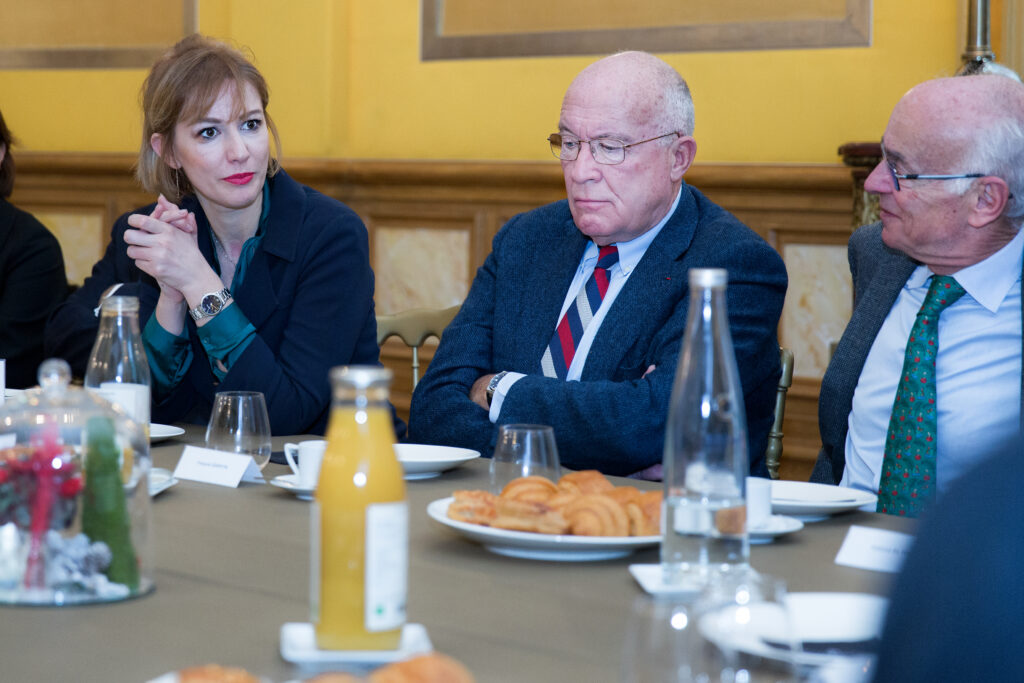
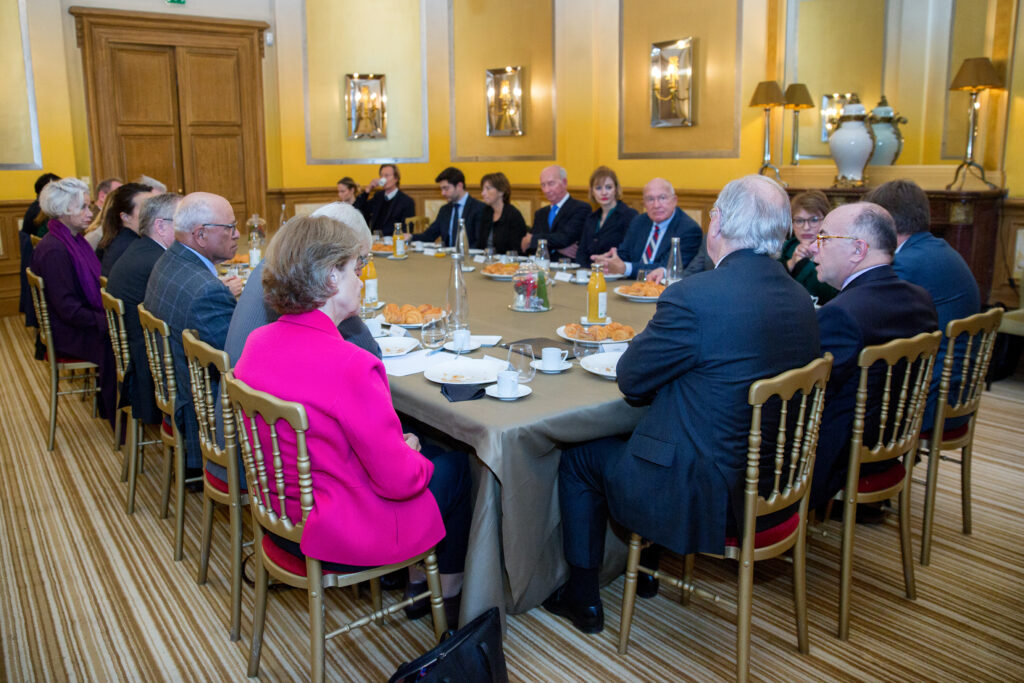
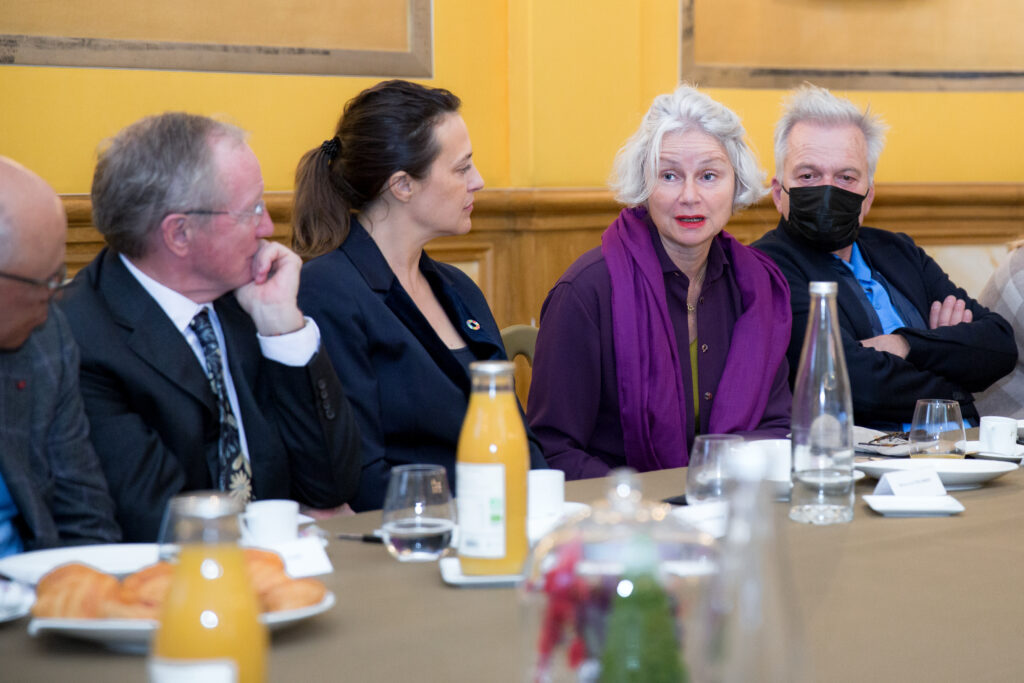
Numerous board members of The Bridge Tank joined in this exchange session, including
- Irina Bokova, Former Director General of UNESCO
- Mohamed Chaïbi, Chairman of the Board of Directors of Ciments du Maroc
- Christian Connan, Former Ambassador
- Hakima El Haite, President of Liberal International, Former Minister-Delegate for the Environment of Morocco
- Stéphane Gompertz, Former Ambassador and Director at the French Ministry of Foreign Affairs
- Guillaume Henry, President of the Association for the Ecological Study of Law
- William Nkontchou, CEO of AFIIP – African Financial Institutions Investment Platform
- Jean Pasternak, CEO Green Tie
This edition of the “Bridge Tank Breakfasts” also had the privilege of welcoming participants such as :
- Pierre Ducret, Former President, I4CE – Institute for Climate Economics – Caisse des Dépôts et Consignations
- Jean-Dominique Giuliani, President, Robert Schuman Foundation
- Sabine Lochmann, President ASCEND and member of the Strategic Committee of the Blue Like an Orange Investment Fund
- Sylvia Pariente, Director of the Energy Transition and Sustainable Development Department, DS & Associés
- François Quentin, Former DGA of Thalès, Former Chairman of the Board of Directors of Huawei France
- Claus Sorensen, Former Director General, Directorate General for Civil Protection and European Humanitarian Aid Operations of the European Commission (ECHO)
- Mehdy Taleb, Deputy Director General, APCO France
- Sylvianne Villaudière, Vice-President, Société d’Encouragement pour l’Industrie Nationale
- Marie-Laure Vercambre, Director General, French Water Partnership
- Teuta Vodo, Former Deputy Minister of Justice, Albania, Member of the Socialist International.
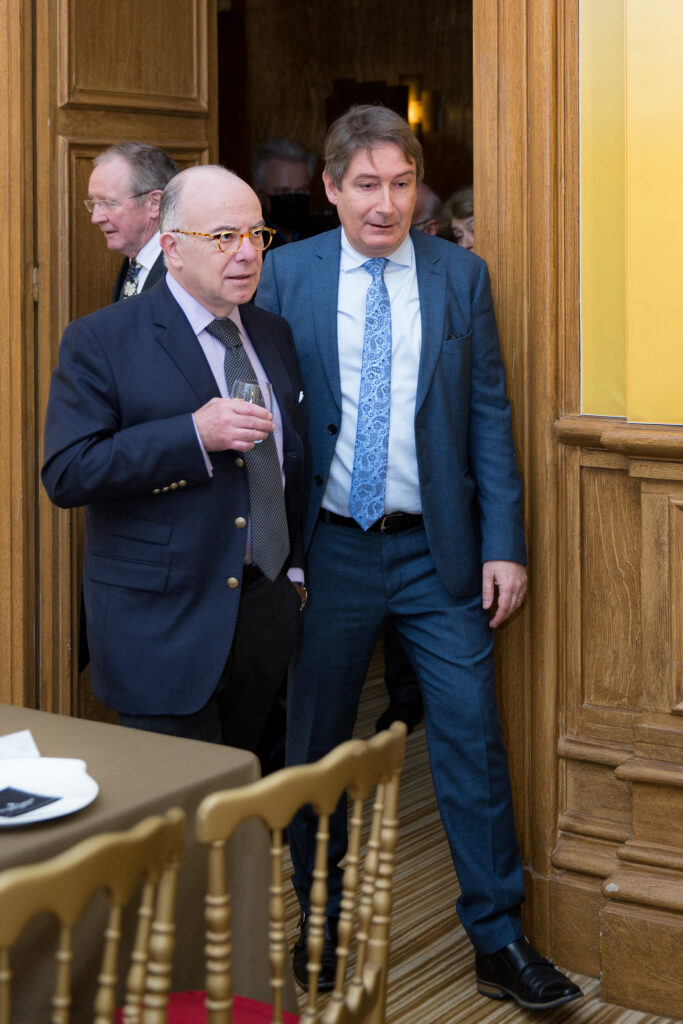
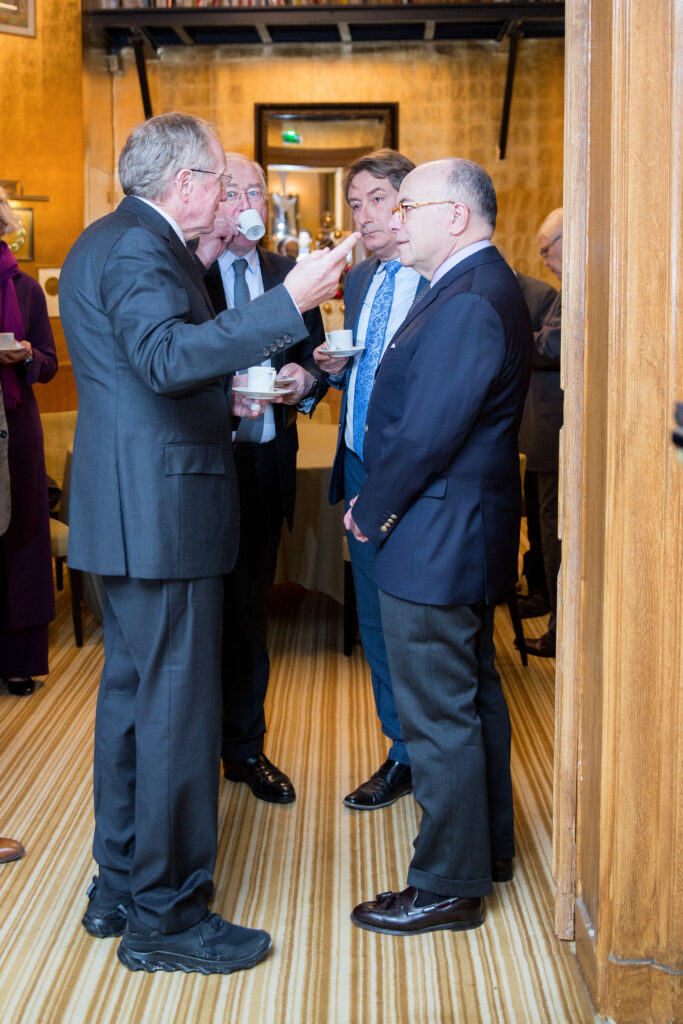
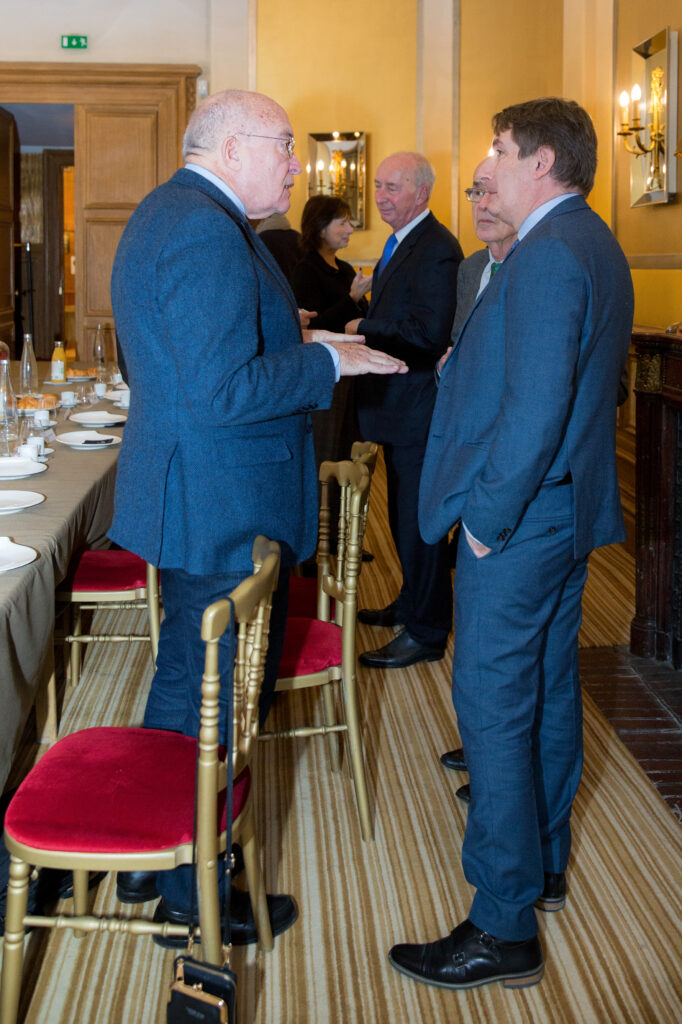
Inspired by the depth and quality of this dialogue session, The Bridge Tank intends to deepen and contribute concretely to some of the themes discussed, in particular the French-German relationship on defence strategies and industries, and the improvement of relations between France and Africa, in particular in relation to the challenges of energy transition and climate finance.
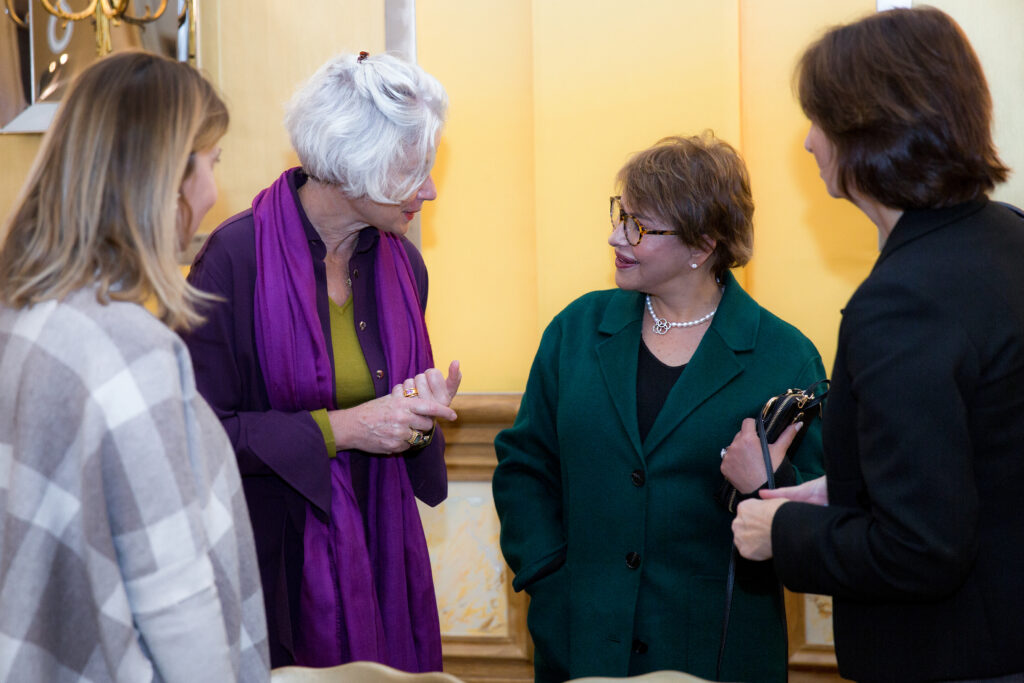
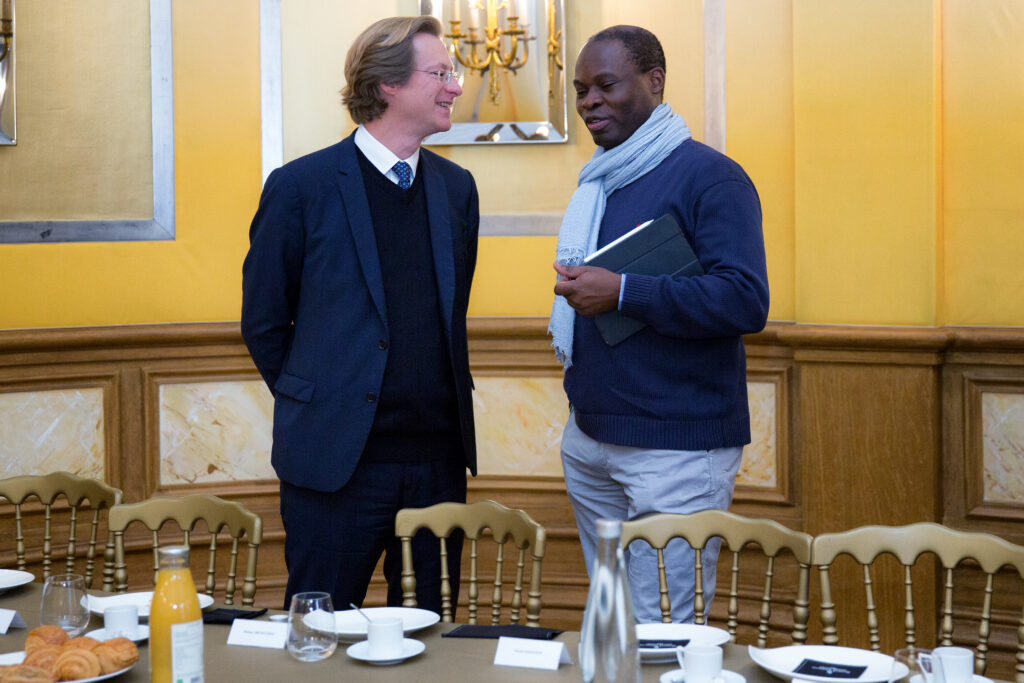
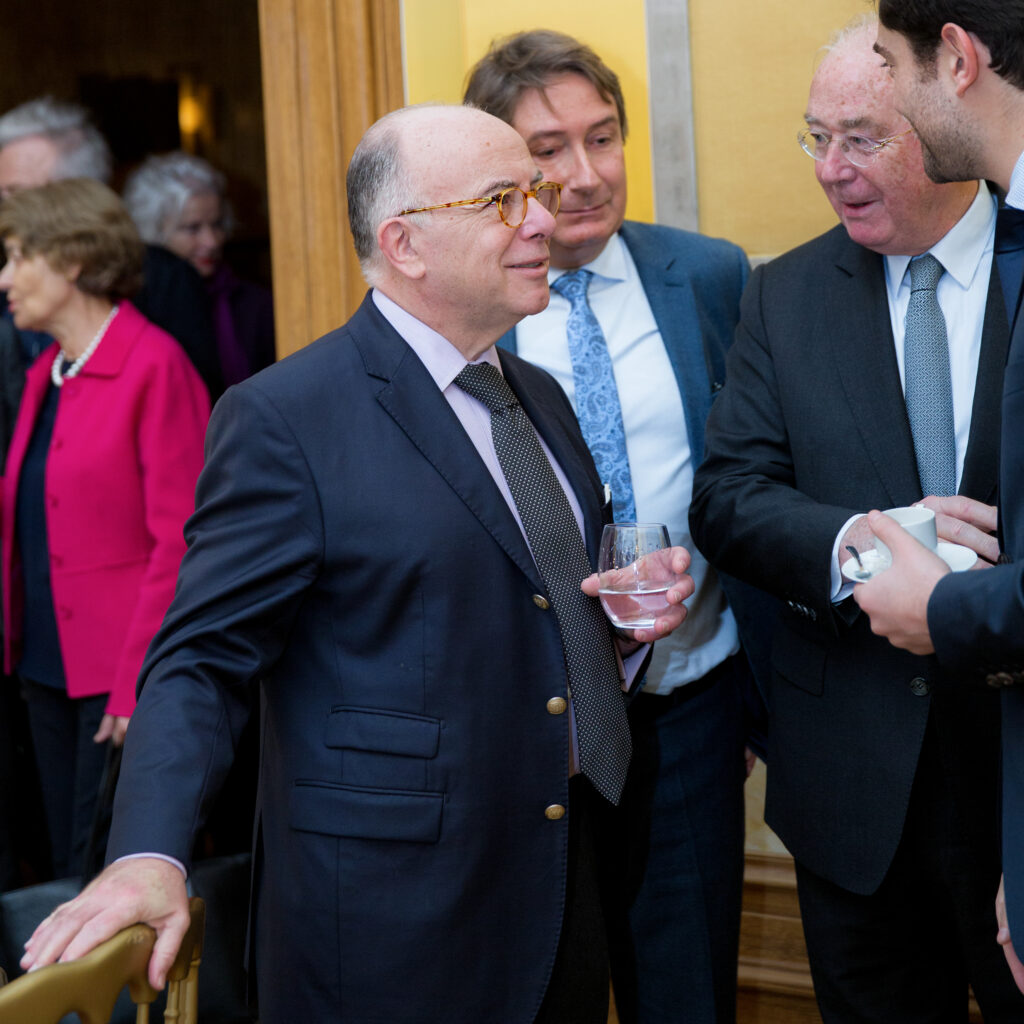
Hydro-diplomacy: The Bridge Tank launches the World Water for Peace Conference
Since the year 2000, the share of conflicts over transboundary freshwater resources has been on the rise. Simultaneously, the rate of institutionalising cooperation, i.e. treaties and river basin organisations, has been declining, which the UN processes exemplify.
Fortunately, ideas, tools, and initiatives developed by practitioners and thinkers from the field are plentiful; exchange networks of water practitioners are deepening. As a result, the potential to expand and disseminate current innovative approaches is considerable, as The Bridge Tank
– researched and documented during field visits over the last two years, followed by
– an engagement tour across Europe in June 2022 to promote a renewed practice of hydro-diplomacy.
Indeed, despite alarming trends and media fixation on notorious cases, less documented but lasting success stories do exist, with resilient institutional innovations and good practices in co-management of transboundary waters sustained across the globe, as inspiring cases from Africa, Central Asia, or Europe show. They all have innovative structures to display, either in management, scale, coordinated care of cross-sectoral objectives, tools in common, or cooperative approaches to natural resources. Backed with high local willingness among water practitioners, these innovative features have in return fostered political will.
We argue that this wealth of experiences allows for new pathways to be conceived on the front of hydro-diplomacy itself. Rethinking hydro-diplomacy and its practice assumes multi-stakeholder approaches involving a wider range of actors and the creation, development, and enhancement of tools and practices, e.g. river basin organisations, shared infrastructures, or shared data, research and incubation programmes.
Recognising both the existing gaps in the present understanding and practice of hydro-diplomacy and its considerable potential, The Bridge Tank:
– framed a policy brief, which called for a renewed and enlarged practice of hydro-diplomacy;
– convened a closed-door high-level panel on hydro-diplomacy in Paris, on December 6th, 2022, to put these ideas and hypotheses to the test. This event gathered field experts and development actors familiar with the challenges on the ground, academics and legal experts thinking out institutional tools and legal frameworks, and political decision makers which have worked to ensure a sustainable management of water resources.
These exchanges across practices and geographies created a de facto platform of dialogue on a broadened hydro-diplomacy transcending borders, backed by the range, replicability, and limitations of existing tools and practices. These discussions confirmed the necessity to root these existing tools and practices in this renewed understanding of hydro-diplomacy and work towards an appeased management of water resources, serving as a base for “river basins peace”.
In order to build on the momentum created during this first dialogue, The Bridge Tank is proud to announce the launch of the World Water for Peace Conference.
The World Water for Peace Conference aims to question and enrich the premises of hydro-diplomacy and of the management of transnational rivers,
1) away from a defensive hydro-diplomacy assuming rivalry over access to water resources between users, to a positive hydro-diplomacy, based on shared tools and forums;
2) away from a hydro-diplomacy practised mostly by diplomats toward a holistic one encompassing the plurality of actors.
We believe this paradigm shift through tools and practices will allow to move away from water wars to river basin peace, in short to move away from water wars to water for peace.
The World Water for Peace Conference’s ambition is to seek out innovative ideas and concrete solutions on three great questions:
- The politics and practices of transboundary water peace
- Innovative legal and institutional tools of inclusive cooperation for hydro-diplomacy
- River science, technical innovation and entrepreneurship incubation
The World Water for Peace Conference shall provide a valuable contribution to the practice of hydro-diplomacy by mobilising all stakeholders involved in or impacted by water and its management, from spring heads to deltas, across borders and social and economic sectors:
- Political decision makers
- Hydro-diplomacy thinkers and system developers
- Water practitioners and water users across economic sectors
- Scientists and incubators
The voices of transboundary water peace
We now stand at a crossroads where “water will either be a vector of peace and prosperity for all or a weapon like energy is now becoming.” This important choice ahead was described by Hakima El Haite, Board Member of The Bridge Tank and former UNFCCC Champion for climate, during the high-level panel discussion on December 6th. “Water and development are two sides of the same coin, which is the coin of peace,” Ms El Haite went on to say.
“Water will either become a vector of peace and prosperity for all or a weapon like energy is now becoming.”
Hakima El Haite, Board Member of The Bridge Tank and former UNFCCC Champion for climate
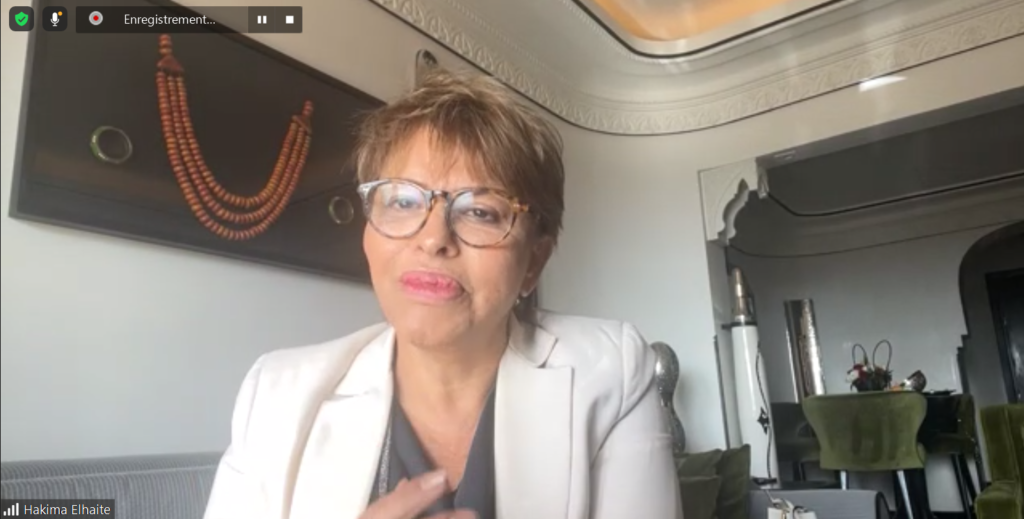
The urgency of the situation was also underlined by Erik Orsenna, Chairman of the Initiative for the Future of Great Rivers (IAGF) and Member of the Académie Française, in his opening remarks to the panel. “If we do not change the mechanisms of war into tools of peace, we are doomed,” Mr Orsenna said, calling for water to be turned into a tool for peace, despite, or precisely because of its close proximity to future threats.
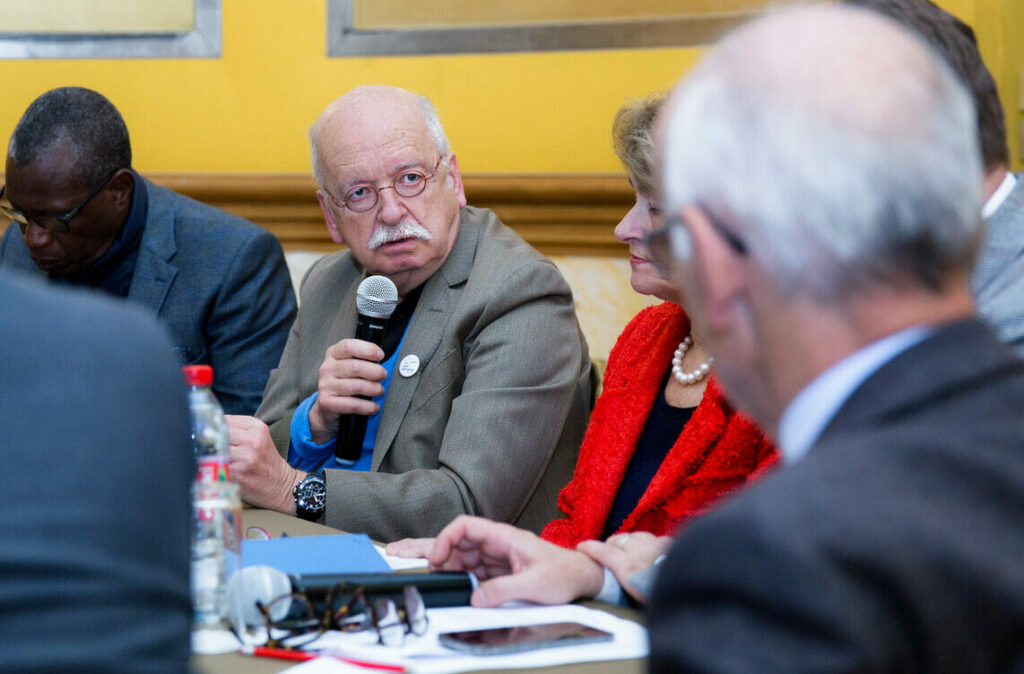
“If we do not change the mechanisms of war into tools of peace, we are doomed.”
Erik Orsenna, Chairman of the Initiative for the Future of Great Rivers (IAGF) and Member of the Académie Française
This paradigm shift is arguably no easy feat. Hamed Semega, Board Member of The Bridge Tank and former High-Commissioner of the Senegal River Basin Development Authority (OMVS), turned to the UNESCO preamble for guidance: “since wars begin in the minds of men, it is in the minds of men that the defences of peace must be constructed.”
Hydro-diplomacy should thus be seen as a source of hope, for which “political will combined with necessity can really transform what is a conflictual issue into building stability and peace,” Mr Semega stressed during the conference in Paris. The basic foundation for water cooperation is knowledge; common knowledge of the river, shared information, and science are key, so Mr Semega.
“Political will combined with necessity can really transform what is a conflictual issue into building stability and peace.”
Hamed Semega, Board Member of The Bridge Tank and former High-Commissioner of the Senegal River Basin Development Authority (OMVS)
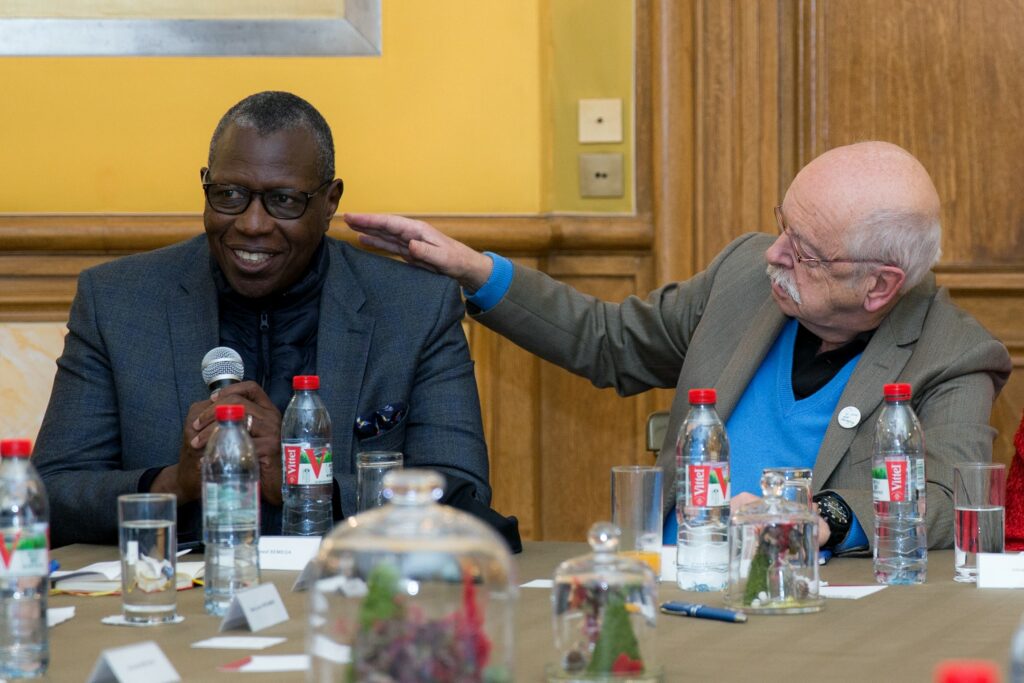
However, “we cannot achieve one goal without looking at the others.” This acknowledgement of water as an important component of the UN Sustainable Development Goals and the assessment of its interconnectedness with other issues was provided to the panel by Irina Bokova, Co-chair of the Global Commission on Science Missions for Sustainability of the International Science Council (ISC) and former Director General of UNESCO.
Ms Bokova underlined the importance of approaching water from a wider point of view, as a human right and a societal question. This wider view, outside of the water silo, requires shared approaches due to water’s huge impact on food security, energy security, gender equality, social inclusion, on the climate, and on the economy.
Ms Bokova pointed to the need to mobilize all different sectors, to involve scientists, innovation, and technology, and to create platforms and institutions in order to establish concrete solutions.
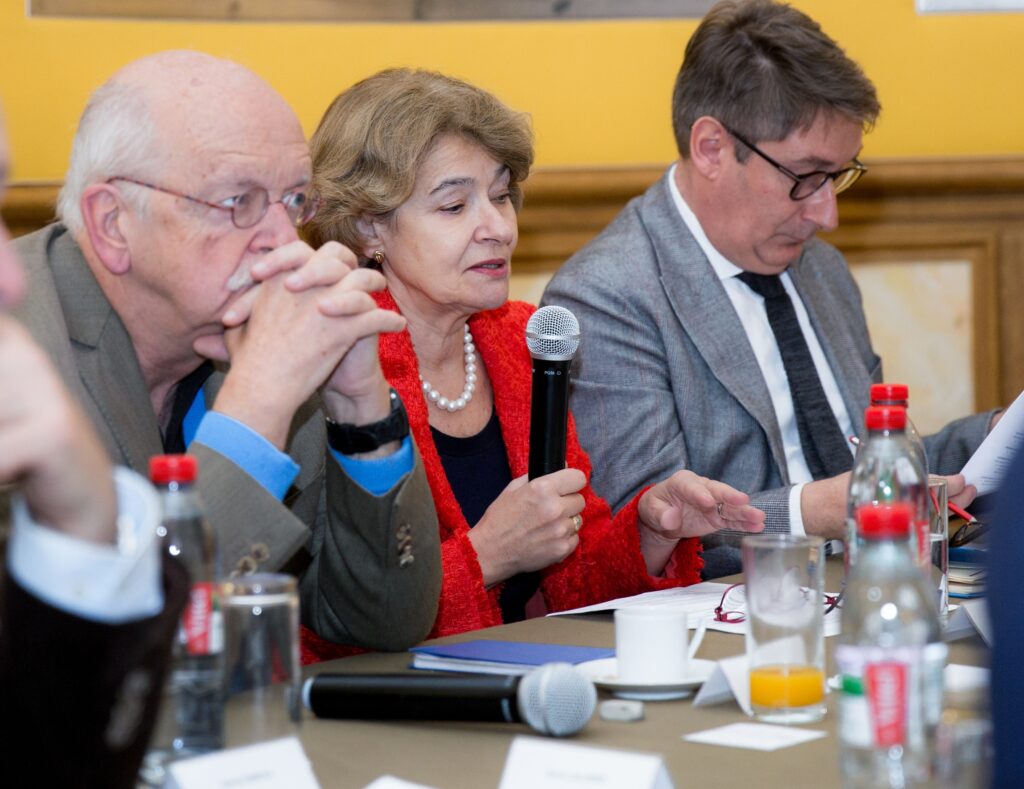
“Agenda 2030 is universal and interdependent, we cannot achieve one goal without looking at the others.”
Irina Bokova, Co-chair of the Global Commission on Science Missions for Sustainability of the International Science Council (ISC) and former Director General of UNESCO.
How to best approach water and the management of the resource was also addressed by Claus Sorensen, Former Director General of the European Commission’s Humanitarian Aid and Civil Protection Department (ECHO).
Mr Sorensen highlighted that both community action, at the bottom, and support from those who set the framework, at the top, were needed. “If we can link the bottom with the top, then I think we are unto something very important,” he added.
“We need community action from the bottom and support from those that set the framework. If we can link the bottom with the top, then I think we are unto something very important.”
Claus Sorensen, Former Director General, European Commission’s Humanitarian Aid and Civil Protection Department (ECHO)
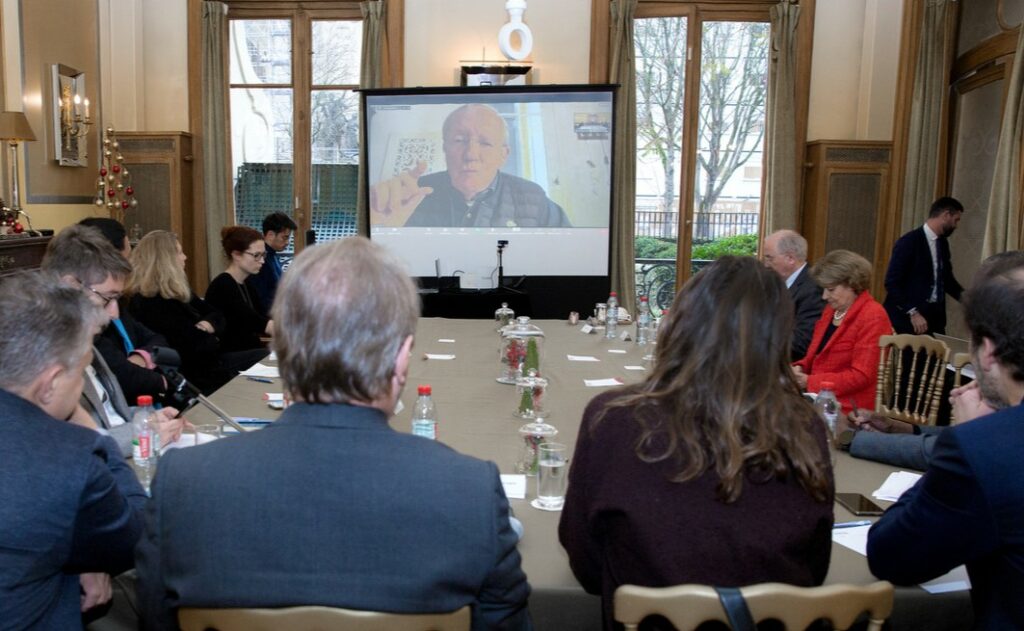
The existing disconnect between the different stakeholders was pointed out by Runa Khan, Founder & Executive Director, Friendship NGO, Bangladesh, who noted that while solidarity of thought existed, there was still a considerable lack of “solidarity of action between between the different stakeholders, from scientists to activists, to people on the ground, to decision makers.”
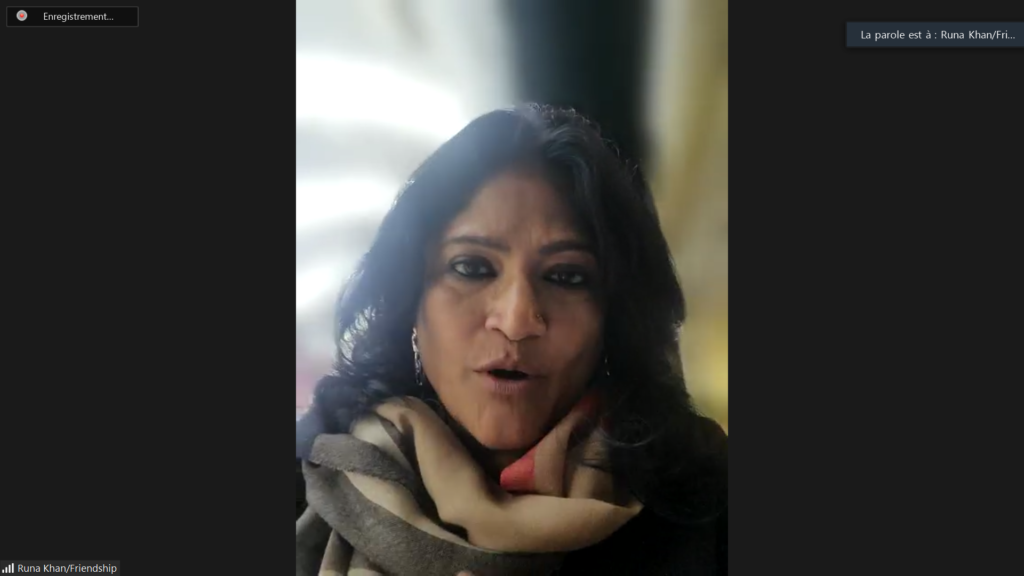
“We still do not have enough solidarity of action between between the different stakeholders, from scientists to activists, to people on the ground, to decision makers.”
Runa Khan, Founder & Executive Director, Friendship NGO, Bangladesh
In an address to the December 6th panel, Minister Sidi Toure, Minister of Animal Resources and Fisheries, Côte d’Ivoire, presented possible actions from a policy makers’ perspective, recognising the need to adopt innovative policies, strategies and programs for better protection, safeguarding and management of water resources.
According to Minister Toure, the optimal use of water resources in Africa must be based on 2 essential levers:
- The development of infrastructures, in particular hydraulic infrastructures to combat food insecurity (livestock, agricultural resources, and people)
- The establishment of appropriate institutional arrangements, which is decisive in the effectiveness of resource protection and equity in its allocation to the various actors.
“Taking into account the plurality of actors and their visions gives an original tone to policies. On the international level, dynamics are already at work. At the local level, the adaptation of techniques and resources are the preferred avenues, particularly in the case of community groups and associations,” Minister Toure noted.
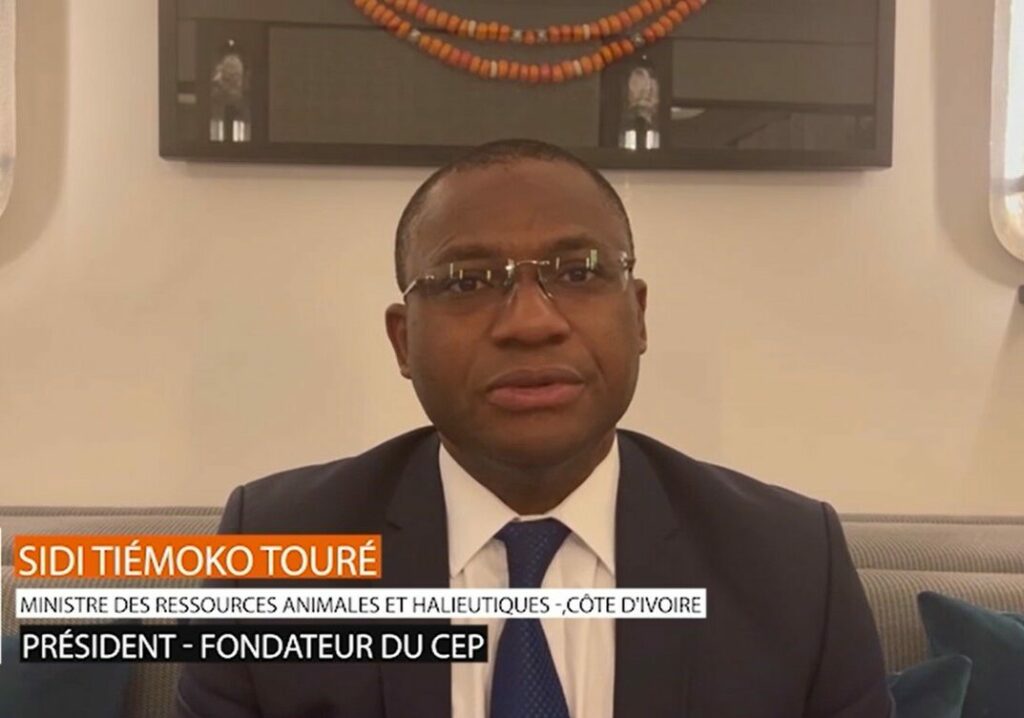
“Africa is very rich in water. The optimal use of this resource must be based on 2 essential levers:
1. The development of infrastructures, in particular hydraulic infrastructures to combat food insecurity
2. The establishment of appropriate institutional arrangements, which is decisive in the effectiveness of resource protection and equity in its allocation to the various actors.”
Sidi Toure, Minister, Ministry of Animal Resources and Fisheries, Côte d’Ivoire
Minister Diaka Sidibe, Minister of Higher Education, Scientific Research and Innovation, Guinea, used her contribution to the panel to highlight existing areas of action and share her testimony on progressive water policies in Guinea.
In order to preserve Guinea’s water sources, in particular the Fouta Djallon, which is commonly referred to as the “Water Tower of West Africa,” Minister Sidibe stressed what she considered to be crucial points of action:
- the need for more qualitative and quantitative data on water resources, in order to appropriately adapt the planning and sustainable management of these resources
- develop technologies to process this data, supercomputers for forecasting and optimisation and spatio-temporal knowledge
- develop territorial diagnoses with universities and research centers.
“Failure to act today to safeguard the Fouta Djallon Highlands threatens water security for our children and future generations,” Minister Sidibe concluded.
“To preserve sources of water, it is crucial to have more qualitative and quantitative data on water resources, in order to appropriately adapt the planning and sustainable management of these resources.”
Diaka Sidibe, Minister of Higher Education, Scientific Research and Innovation, Guinea
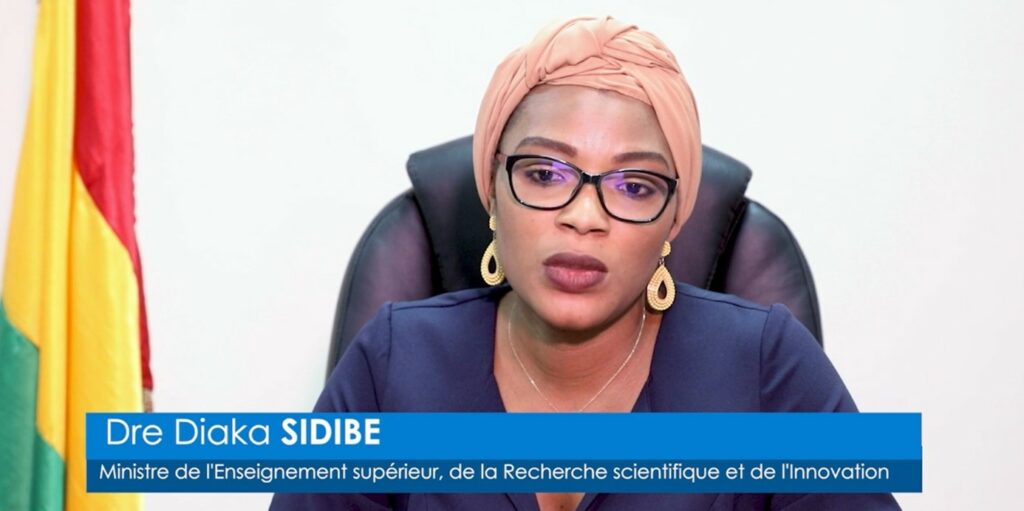
The importance of addressing questions of transboundary water, however contentious they might be, was also underlined by Pascal Delisle, Head, Economic, Development, Environment and Digital Issues, European External Action Service (EAES), Geneva.
The European External Action Service has thus made this one of its priorities in preparation of the 2023 UN Water Conference.
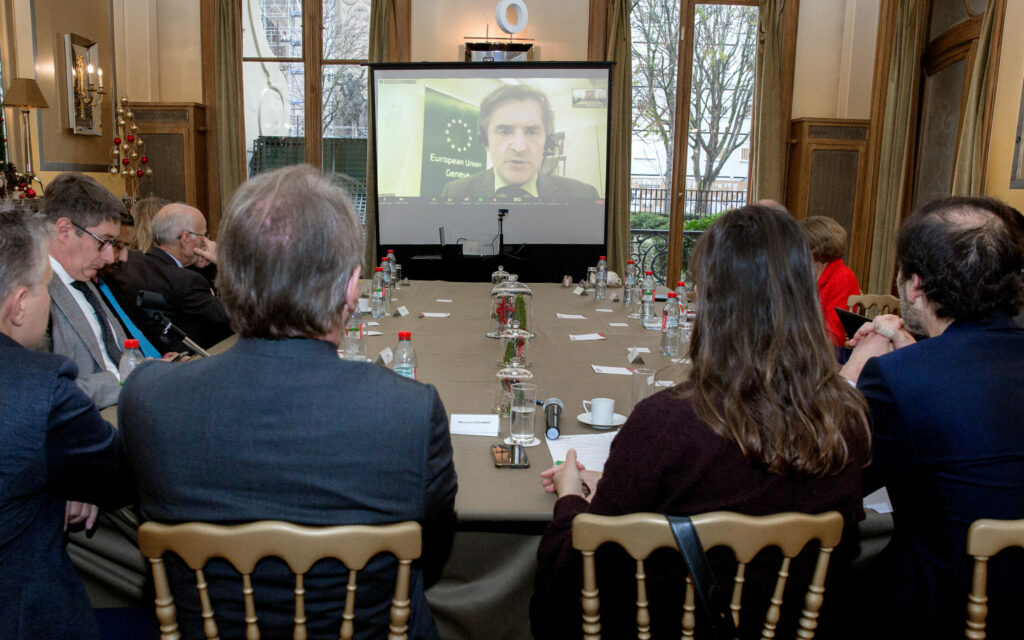
“It has been important for the European External Action Service to be pushing politically for transboundary water to be a priority topic at the 2023 UN Water Conference.”
Pascal Delisle, Head, Economic, Development, Environment and Digital Issues, European External Action Service (EAES), Geneva
But what actually determines the effectiveness of the existing tools and mechanisms of hydro-diplomacy and water management? How can these be best applied?
These were some of the key questions addressed during the conference by Susanne Schmeier, Associate Professor, Water Law and Diplomacy, Institute for Water Education (IHE), Delft. Sharing her expertise in the field, Susanne Schmeier pointed to the importance of questioning the effectiveness of these mechanisms and tools, something she described as “sharpening the tools.”
This is all the more important to precisely assess what is functioning and what is not in terms of hydro-diplomacy, tools, and notification processes.
“We need to sharpen the tools that we have in water diplomacy, moving beyond the mere assumption that having a treaty, a river basin organisation or a notification process is enough, in order to really enable these mechanisms to deal with all the changes ahead.”
Susanne Schmeier, Associate Professor, Water Law and Diplomacy, Institute for Water Education (IHE), Delft
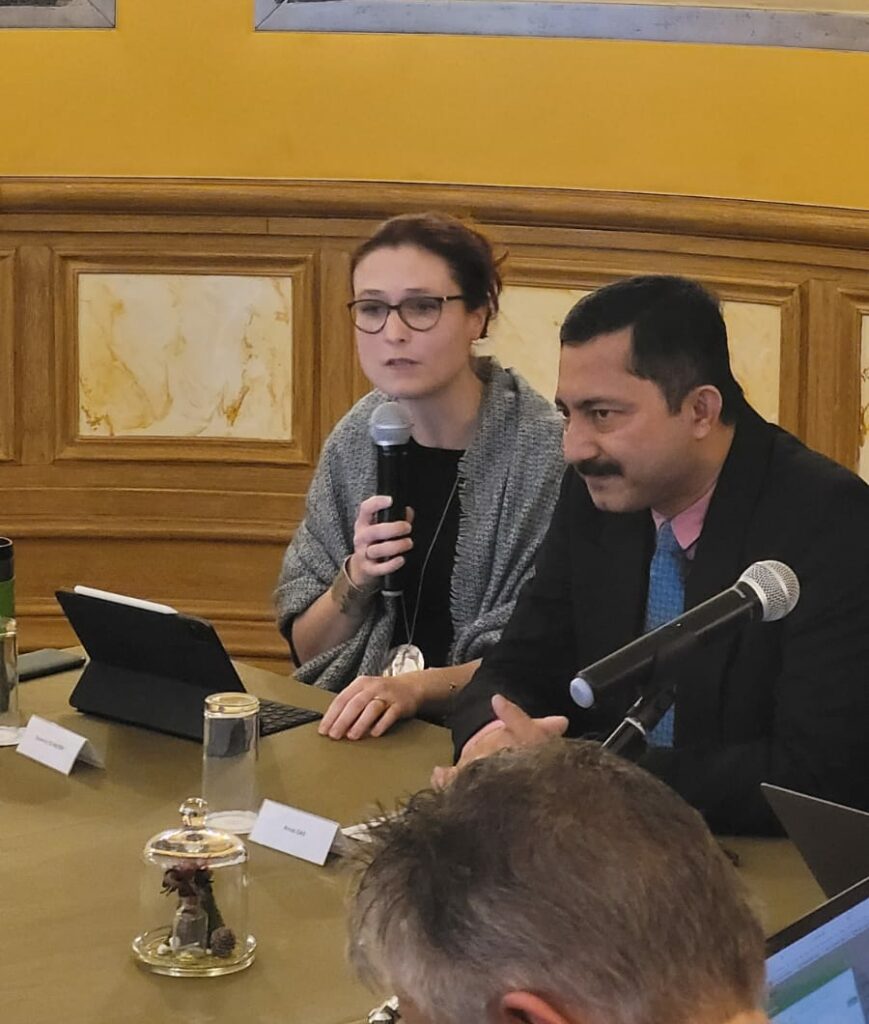
Mara Tignino, Lead Legal Specialist, Geneva Water Hub, and Christian Brethaut, Scientific Director, Geneva Water Hub (GWH), Global Observatory for Water and Peace (GOWP), shared their knowledge and the expertise of the Geneva Water Hub with the other panelists.
Summarising some of the important conclusions of the thematic session he moderated on “Innovative tools for a revisited hydro-diplomacy,” Mr Brethaut noted that when “talking about the tools themselves, the simple process of implementing the tools can already lead to trust building. It is then also a lot about focussing on the process, rather than seeing the tools as a means for itself.”
Ms Tignino introduced one of those possible innovative ideas and tools for hydro-diplomacy with the perspective of the rights of nature and the process of attributing a legal personality to a river, presenting both national and international trends. Ms Tignino particularly stressed the importance of involving local communities in this process of attribution.
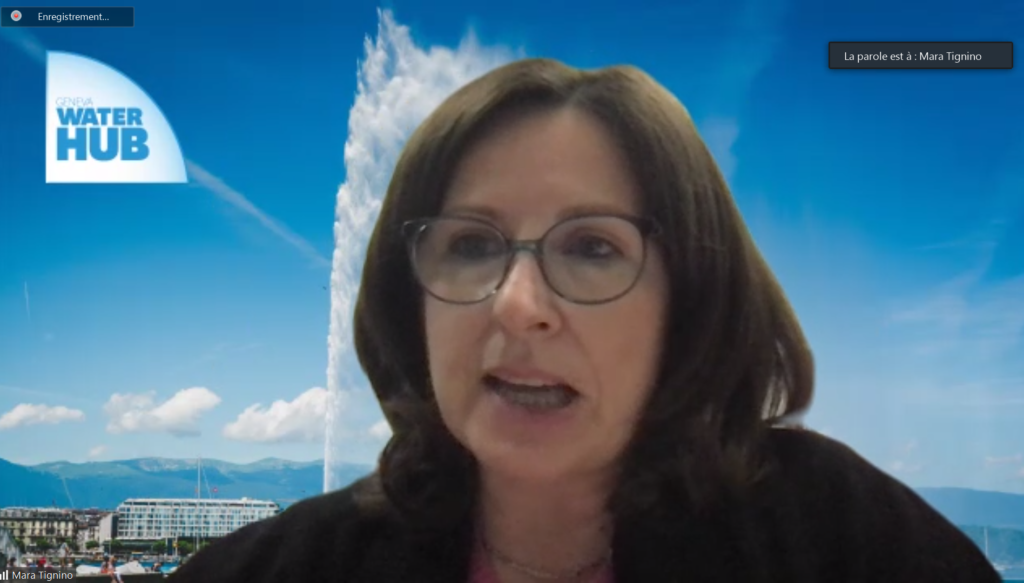
“It is very important that the process of attribution of the legal personality goes through a community level process. It is very important to involve the local community.”
Mara Tignino, Lead Legal Specialist, Geneva Water Hub
The stakes are high to take action to ensure the preservation and sustainability of water resources. Mats Karlsson, Former World Bank Vice President & Former State Secretary for development, Ministry for Foreign Affairs, Sweden, reminded the panel of the centrality of water in the development of future generations, saying that:
“There is no more important element in early childhood development than clean water. And there is no investment that has greater long term impact than investment in early childhood development.”
“There is no more important element in early childhood development than clean water. And there is no investment that has greater long term impact than investment in early childhood development.”
Mats Karlsson, Former World Bank Vice President & Former State Secretary for development, Ministry for Foreign Affairs, Sweden
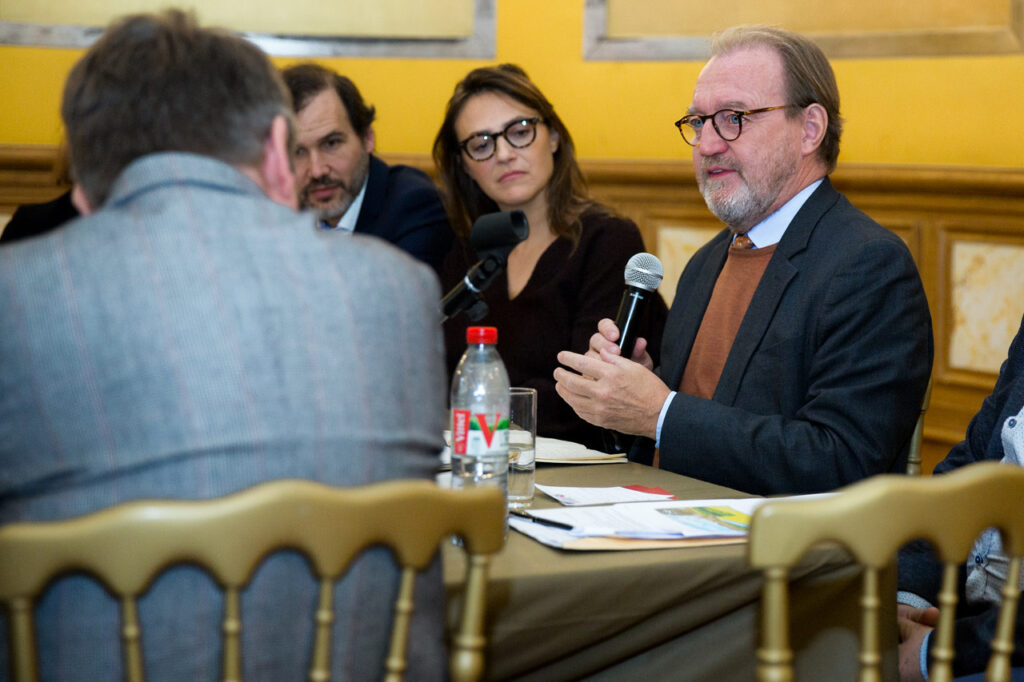
The Case for Increased Financial Cooperation in Europe – The EU and the Micro-States
By Gérard Vespierre, Le Monde Décrypté – Rule of Law in the heart of Europe: the microstates of Andorra, Liechtenstein and Monaco and EU values.
15 December 2022 – Gérard Vespierre, editor of geopolitics journal Le Monde Décrypté, published a new report, identifying serious threats to the rule of law in Europe from three microstates: Andorra, Liechtenstein and Monaco, the conclusions of which he had presented on 30th November at the Brussels Press Club in a Euractiv panel discussion that gathered Vespierre, Niels Fuglsang -Danish member of parliament-, and Dick Roche -former Irish Minister for European Affairs and member of parliament.
Gérard Vespierre, author of the report said: “In the difficult economic and geopolitical times we are in, where the rule of law, the very heart of our democracies, is at stake in our rivalry with aggressive authoritarian states, we must take all measures to protect this core value. A failure to do so in any respect, be it constitutional, human rights, or financial, will negatively impact and weaken our democracies. The financial failures stressed in this report must be addressed to protect our core value, the rule of law, for all European citizens. EU institutions and member states must have an absolute stand on this.”
No pariahs, but working together at bringing transparency into proximity
In an OpEd in La Tribune, the author recalls Micro-States in Europe should therefore “by no means be considered pariahs. They carry with them a common characteristic, their size. This structural aspect is far from trivial, because it “systemically” carries with it a consequence: the natural proximity (or even the juxtaposition of roles) of those responsible for the three political, judicial and economic pillars. If you know the phrase “small is beautiful”, you should add “smaller is closer”. The very reduced size creates a structural and permanent proximity.”
Systemic conclusions of this panel and report are that:
– whilst not being EU members, these low-tax and lightly regulated microstates have had an outsized influence on the EU’s financial markets. These three countries have also served as the setting for some of Europe’s most damaging banking and political scandals,
– the size effect, intrinsic to their existence, reduces both the possibilities of competition, and increases the probabilities of consanguinity, between the institutions of political power, justice, and the economy. Vespierre approaches here the notion of secrecy, more easily cultivated and kept within the framework of closed institutions,
– there is therefore a dual need to have rules and practices adopted that constitute systemic counter-fires to situations of proximity and juxtaposition of functions.
The report argues that the EU should take an active role in supporting these nations, including:
- Encouraging them to sign the OECD Convention on Combating Bribery of Foreign Public Officials in International Business Transactions,
- Extending the Supervisory Integration/Cooperation with EU member states; and
- Promoting and protecting whistleblowers.
Strenghthening current progresses
Monaco and Andorra have been in discussions with the European Union since 2015 regarding further integration. There is an opportunity here for Spain, which will take over the Presidency of the Council of the EU from next July, to formalize substantial progress, or even new formal agreements for rapprochement or harmonization with these 2 principalities, in the financial, fiscal and judicial fields.
Apart from this existing framework, France has proposed a “European political community” which can also be a framework for reflection vis-à-vis these three European Principalities.
Still in the European context, it is also necessary to mention the strengthening of cross-agreements between each Principality and the closest European countries, France and Austria in this case.
Avoiding breaches authoritarians regimes might use
The generic relevance of this study lies with the current context of collectively preventing breaches in Europe by aggressive authoritarian non-European states that, using these breaches, may as well destabilise the Micro-States and the EU.
European Micro-States and the EU have a joint interest in together finding ways to keep a balance between financial specialisation with financial stability, of getting this balance aligned with values, and of .
Read in French the full original report published on Le Monde Décrypté on 13th December and the English version now available.
Rethinking Hydro-Diplomacy: The Bridge Tank holds a high-level panel on the side of the UN-Water Summit on Groundwater 2022
On December 6th, 2022, The Bridge Tank held a high level panel discussion on hydro-diplomacy in Paris, on the side of the UN-Water Summit on Groundwater 2022, coordinated by UNESCO.
This event was placed under the high patronage of:
Mrs. Irina Bokova
Co-chair of the International Science Council’s Global Commission on Science Missions for Sustainability and Former Director General of UNESCO
Mr. Erik Orsenna
Chairman of the Initiative for the Future of Great Rivers (IAGF) and Academician at Académie Française
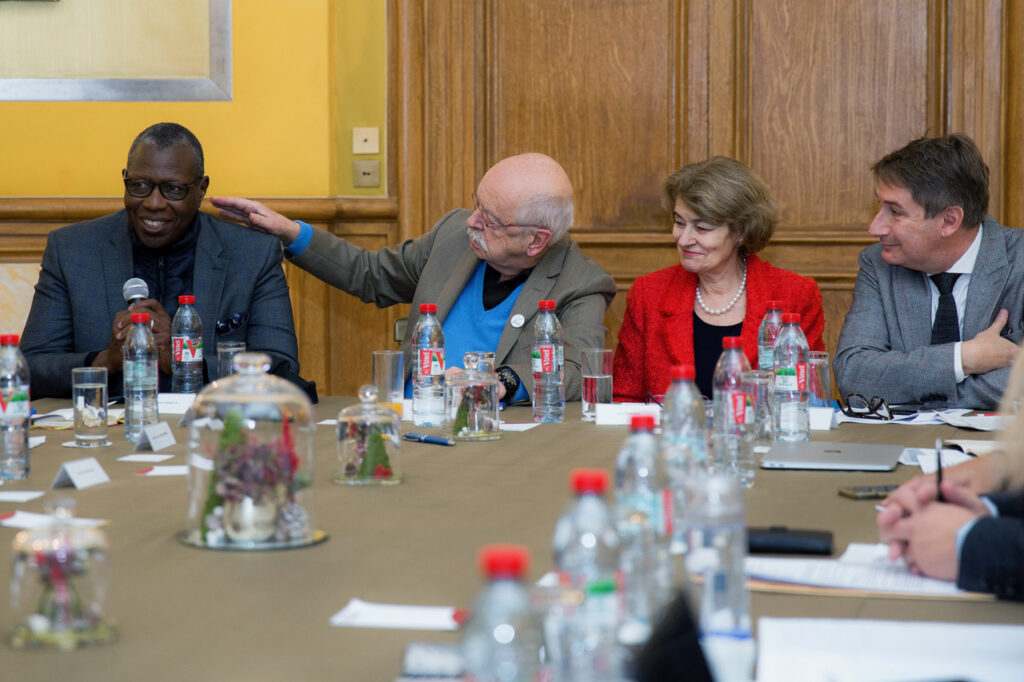
Context
The conference focussed on “Rethinking Hydro-diplomacy: International Rivers as Instruments for Peace. Shared experiences, solutions, and sustainable resources management” and was organised and consciously positioned in the context of the United Nations’ renewed focus on water. The 2023 UN Water Conference planned in New York, in March, will be the first event of this kind since 1977.
As issues of water wars and conflicts rise in prominence due to increased hydric stress around the globe, hydro-diplomacy is bound to be a crucial subject in the years and decades to come. Following the recent release of our policy brief, which called for a renewed and enlarged practice of hydro-diplomacy, this conference represented the logical continuation of The Bridge Tank’s wish to position itself and contribute to the field and practice of hydro-diplomacy.
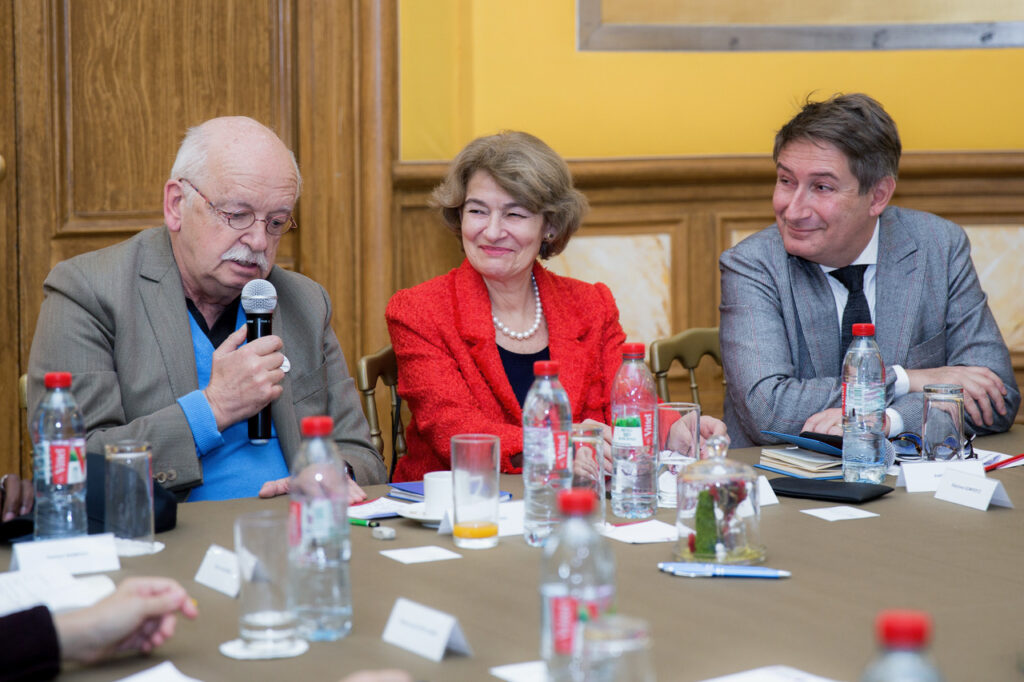
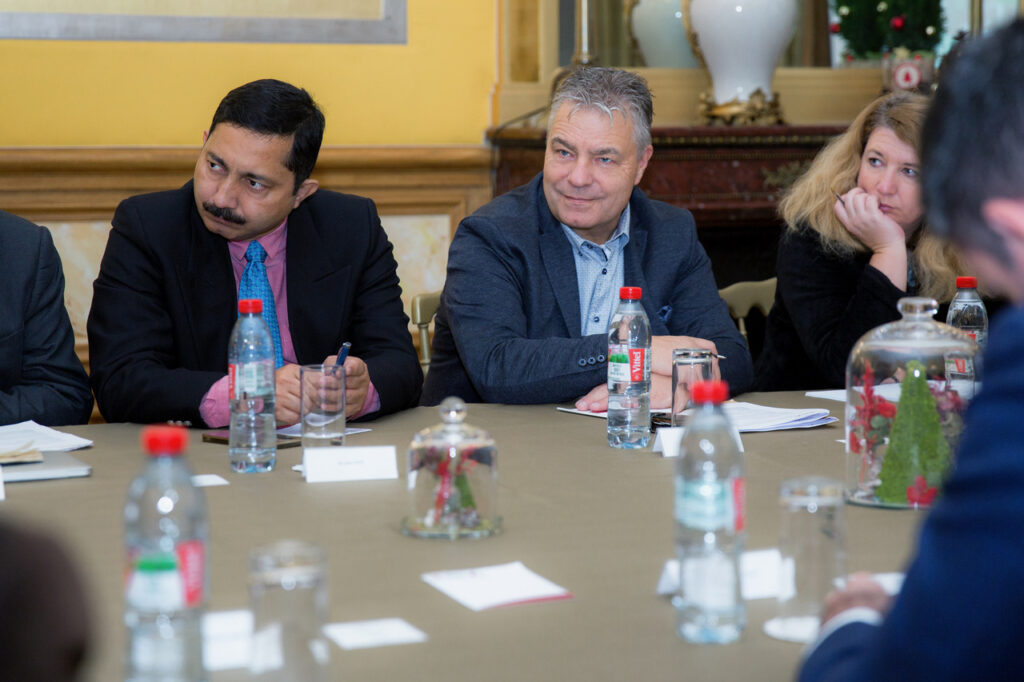
Objectives of the conference
Convinced that hydro-diplomacy is not only the practice of diplomats and state entities, the conference aimed to offer a reflexion and exchange on the development of tools for hydro-diplomacy and towards the de-escalation of water-related conflicts.
The Bridge Tank thus convened this panel to gather like-minded people dedicated to a better approach and management of water resources. These included esteemed policy and decision makers, aid and humanitarian organizations, researchers, legal experts, and practitioners involved in water-related issues.
The event was held in hybrid format, allowing for a participants from across the globe to share their experiences, success stories, case studies, and the challenges they encountered. Participants joined from Abidjan, Brussels, Conakry, Dhaka, Geneva, Marrakesh, Oslo, Paris, Skopje, Tashkent, and Tokyo.
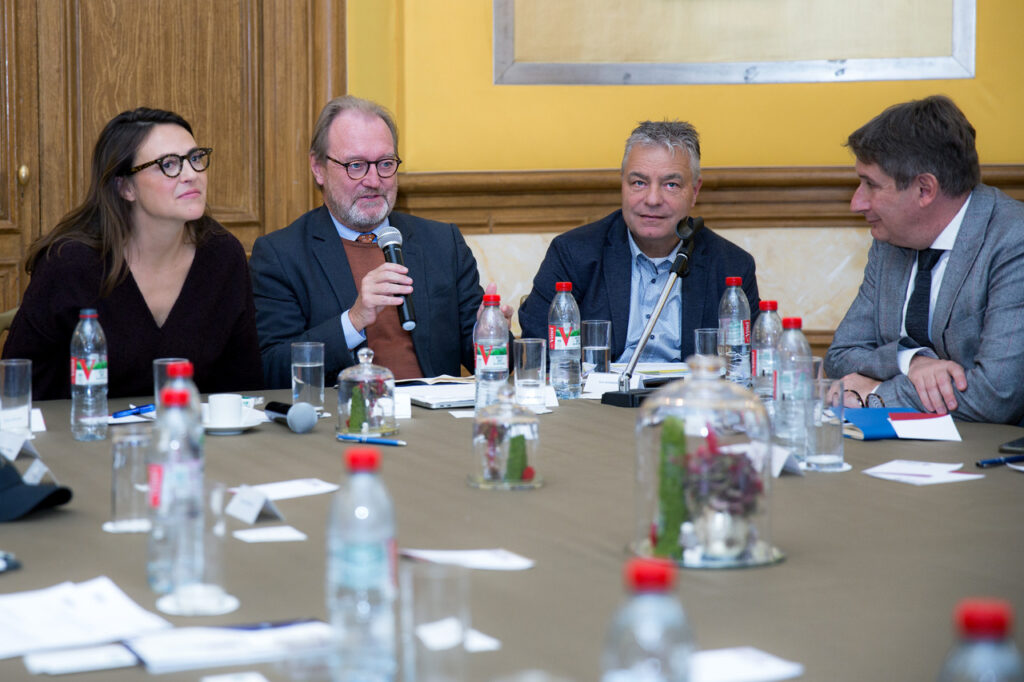
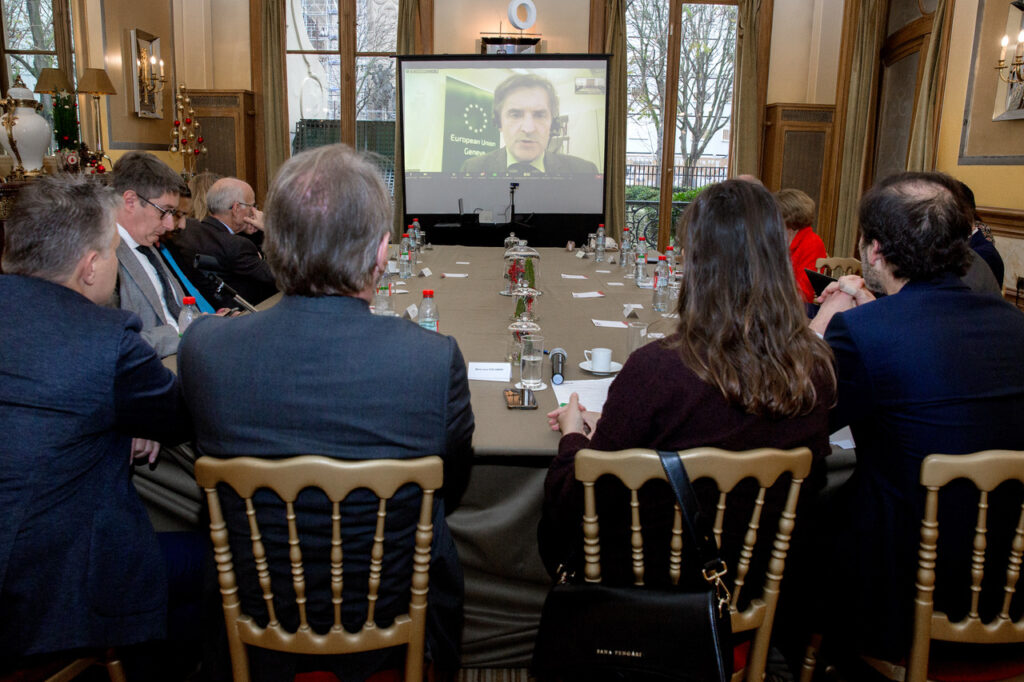
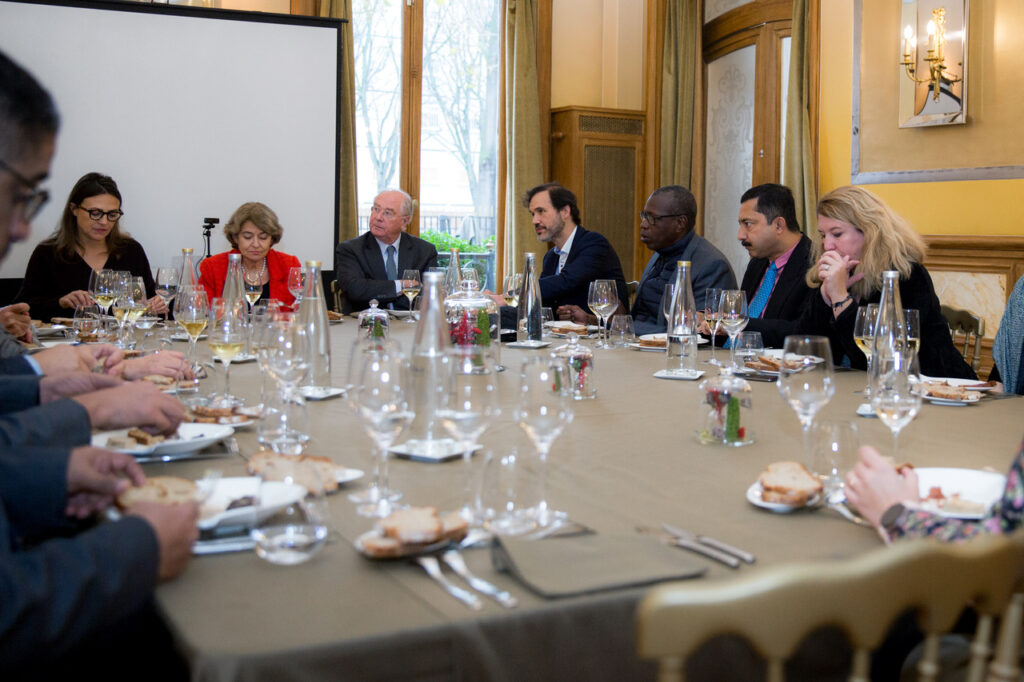
Valuable discussions on water and hydro-diplomacy
The conference started with an introductory session setting the stage for the day by providing an overview of the existing international system in place on questions of water and introducing existing hydro-diplomacy initiatives and experiences from non-conflictual and integrated development water co-management. These introductory remarks stressed the need to approach water from a wider point of view, as a societal issue requiring shared and multi-stakeholder solutions and approaches. Co-operation is particularly needed in response to environmental and ecological threats on the one hand and to contribute to global peace by reducing the risks of violent escalation and water conflicts on the other.
The first thematic session of the day gave the floor to political decision makers from around the globe for them to share and discuss their experience with water and its management. Key messages included a call for solidarity of actions between all stakeholders in the face of crises and the need to listen to and believe local communities. Participants here again underlined the need to address water issues in a holistic way, an idea which requires an integrated approach to water management. Other key points raised included the need to combine both local management with a larger scientific worldview and understanding.
The second thematic session turned to international aid and development actors. From their field knowledge and experience in development, participants mentioned the inter-connectedness of issues, as water is a factor and entry point to food security, health and early childhood development, energy development, disaster risk management, climate change, and questions of transport. The need for an integrated and multi-lateral approach to water on the one hand and the importance of local and community action on the other also found resonance during this session. Transboundary governance however necessarily requires political will to move forward. A final but crucial point addressed by multiple contributors was the role education and knowledge of the water resource in order to ensure better maintenance and management of river basins.
Finally, the last thematic session took on the task of discussing the diversity of tools at the service of hydro-diplomacy. Participants here again encouraged a community based approach, starting at the local level, to develop solutions tailored to the communities’ needs. The examples of River Basin Organisation must thus be understood in their variety, as their diverse forms are the result of the diversity of needs and functions they fulfil. The centrality of knowledge, data, and scientific research as necessary prerequisites for action were addressed by participants of this session as well. In addition to that, the ideas of shared infrastructure and shared water information systems were noted as promising tools for hydro-diplomacy.
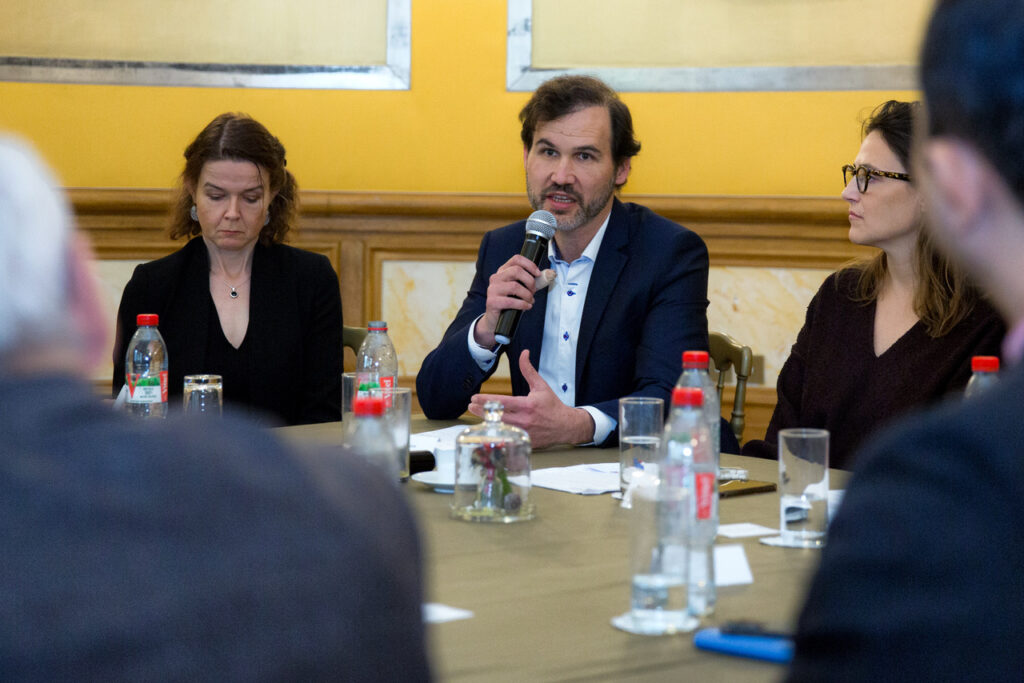
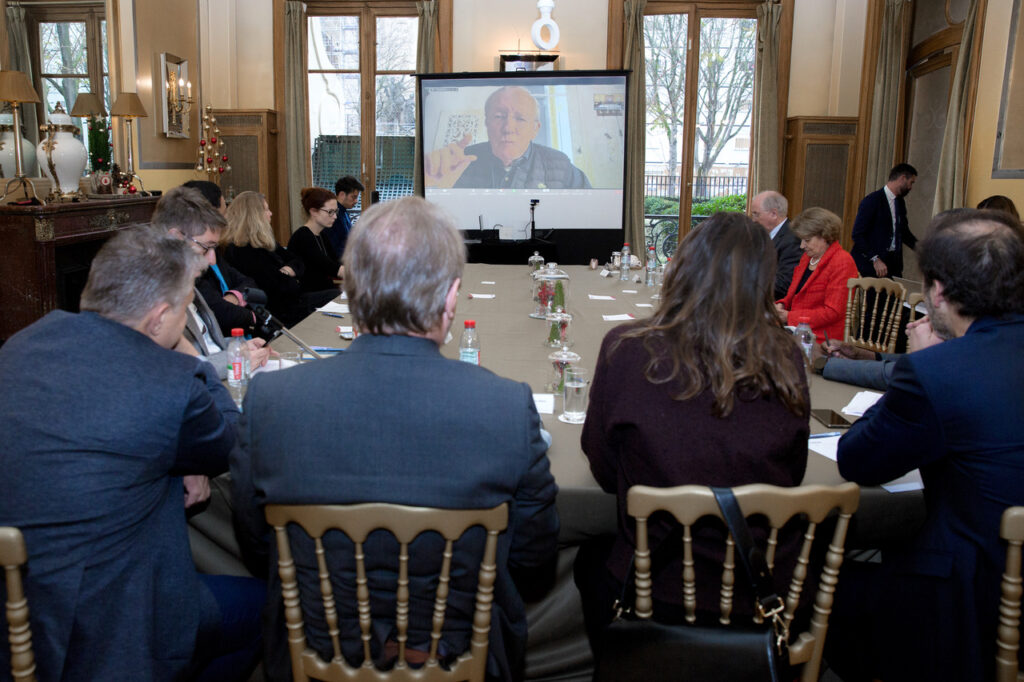
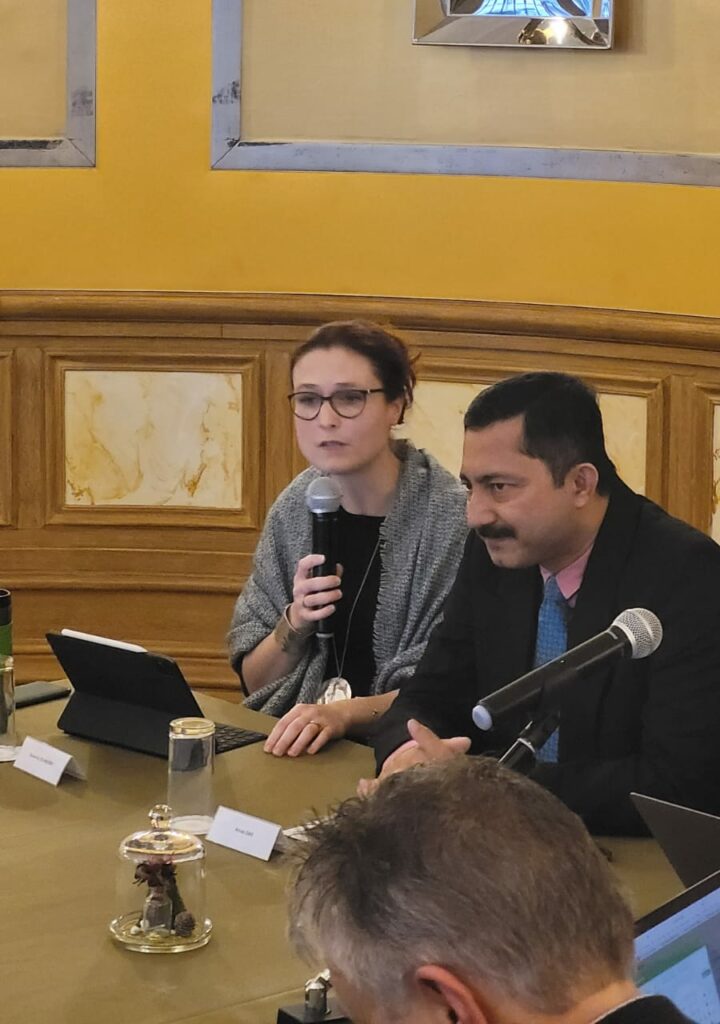
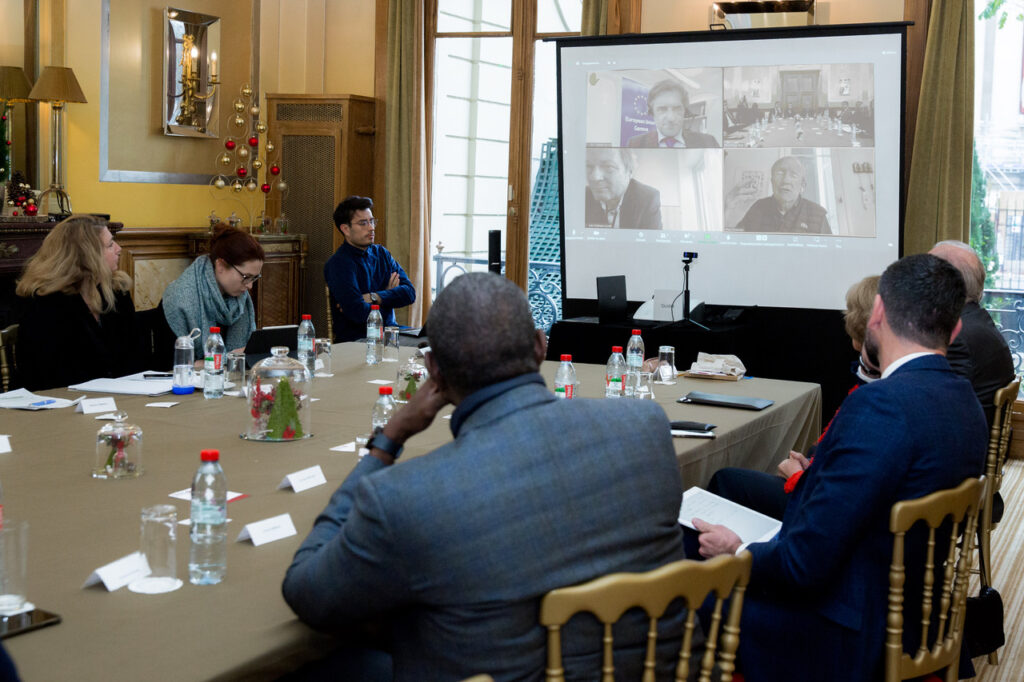
Key takeaways of the conference
From the valuable contributions of the conference’s many participants and the lively discussions throughout the day, a diversity of approaches to hydro-diplomacy transpired, allowing for the establishment of what could be defined as a taxonomy of hydro-diplomacy.
We identified 3 key lessons learned:
1. A first aspect of hydro-diplomacy is found in its fundamentally diplomatic dimension, through its role in conflict prevention and de-escalation. Participants agreed to recall the classical approach of international law, which remains very much rooted in water issues.
2. From this early assessment, numerous contributions stressed the centrality of political will in hydro-diplomacy. Testimonies and experiences from across the globe provided ample proof that hydro-diplomacy initiatives like River Basin Organisations (RBOs) can be successful vectors of peace, cooperation, and sustainable management of water resources. However, all these initiatives and transboundary organisations presuppose and require political will.
- Discussions on how to generate this necessary political strongly focussed on a bottom-up approach, which in turn underlined the importance of local action and what could be called Track II hydro-diplomacy. Civil society’s knowledge and activity in the preservation of riverine and water resources combined with the exchanges between practitioners and scientists from different countries offer the foundational track II hydro-diplomacy needed to generate political will at the level of decision makers.
- From there, political will can be triggered through the interaction of the scientific and practitioner communities on the one hand and political decision makers on the other. As however pointed out by participants, bridging the gap between scientists and decision makers is not without challenges. Interactions between these two communities aimed at ensuring an increased commitment to hydro-diplomacy require aligning messages and preoccupations of both communities. There is therefore a real need for scientists to not only communicate the scientific importance and relevance of hydro-diplomacy and of an approach to water resources built on cooperation and co-management but also to stress its political importance. Hydric stress endangers entire communities in their livelihoods, creating insecurity, and accelerating both internal and international migration.
- Mobilising science and putting it at the service of policy making and the generation of political will has therefore been one of the key questions and preoccupations raised throughout the day.
3. A last dimension of this taxonomy of hydro-diplomacy which emerged throughout the conference was centred on the diversity of tools, processes, and institutions of shared management of water resources as well as discussions about their replicability.
- River Basin Organisations are notable examples of such institutions and developers of tools towards an improved management and sharing of transboundary water resources. With examples from the Senegal River, representatives from the Netherlands and France discussing the shared management of the Rhine River, perspectives from both Pakistan and India on the Indus River, as well as contributions from Uzbekistan with the example of Central Asia, the conference revealed the diversity of approaches and structures of RBOs and shared management agreements.
- Participants from the realm of development agencies addressed the question of replicability of RBOs by noting the comparative advantages of certain structures over others. They however also pointed out that each national and transboundary context, geography, and concrete local and regional needs require adapting the structure and form of RBOs.
- One final but crucial point raised was that cooperation fundamentally requires the sharing and pooling of knowledge and information. While it is important to respect national and regional sovereignty, global and transboundary issues like climate change and increased hydric stress call for global and multilateral solutions. Creating transboundary solidary and cooperation is necessarily achieved through the sharing of data.
A renewed and enlarged practice of hydro-diplomacy thus requires a durable platform of exchange between all stakeholders, bridging the gap between the scientific community, local water practitioners, and political decision makers. Honouring its name and mission statement, The Bridge Tank offers to provide this missing bridge and to host such a platform of exchange and connection.
This conference provided a first example of The Bridge Tank’s dedication to the matter and is hoped to become an annual occurence as the “World Water for Peace Conference.”
Read the concept note and the agenda of the day here.
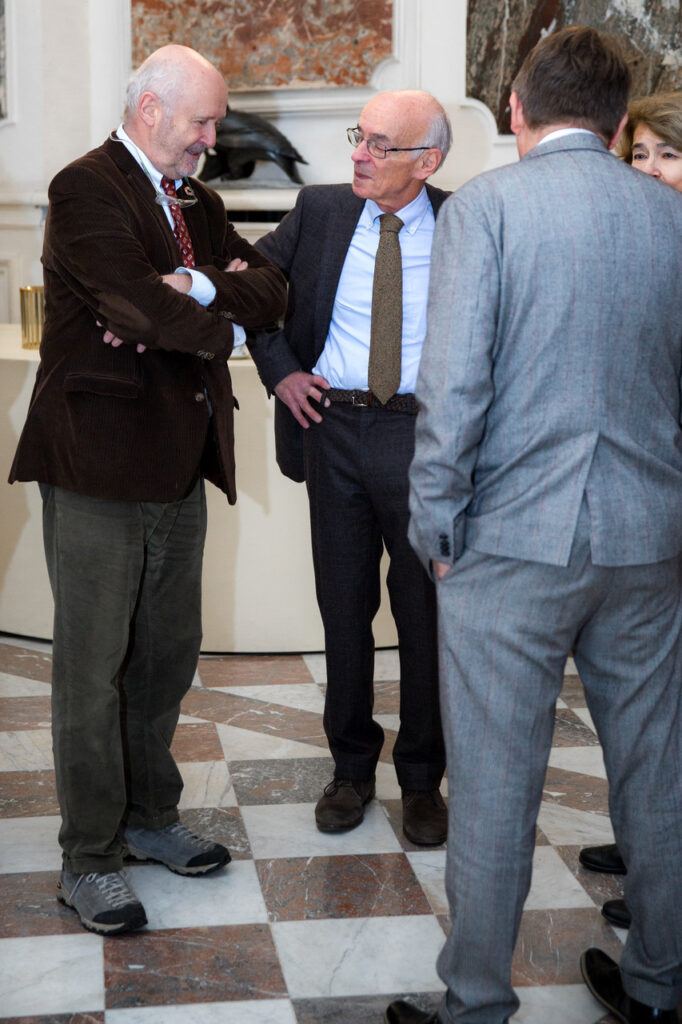
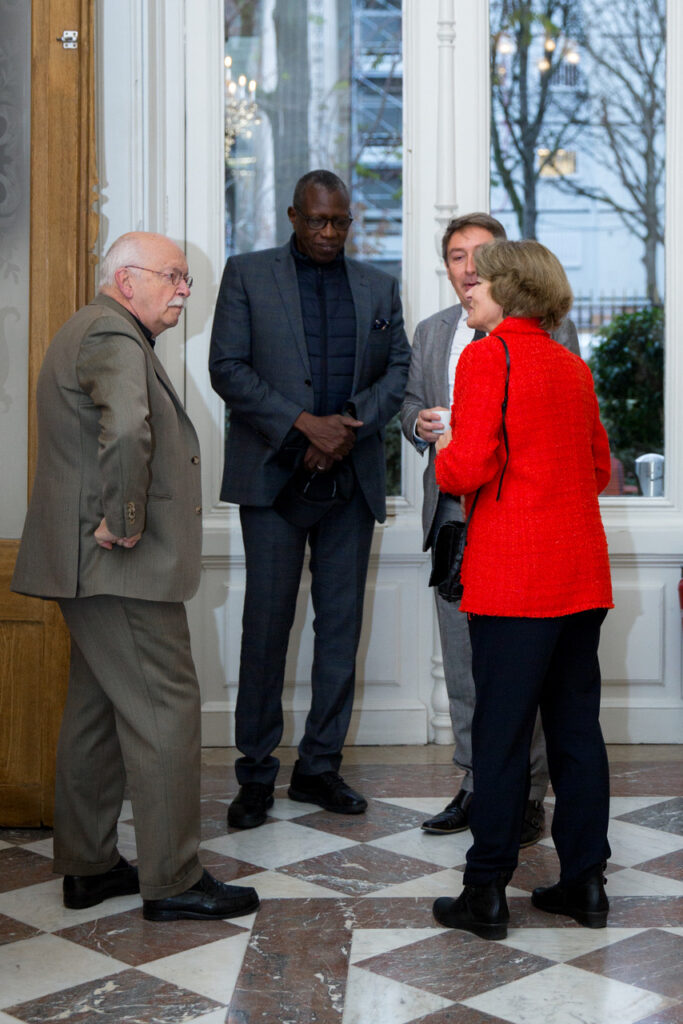
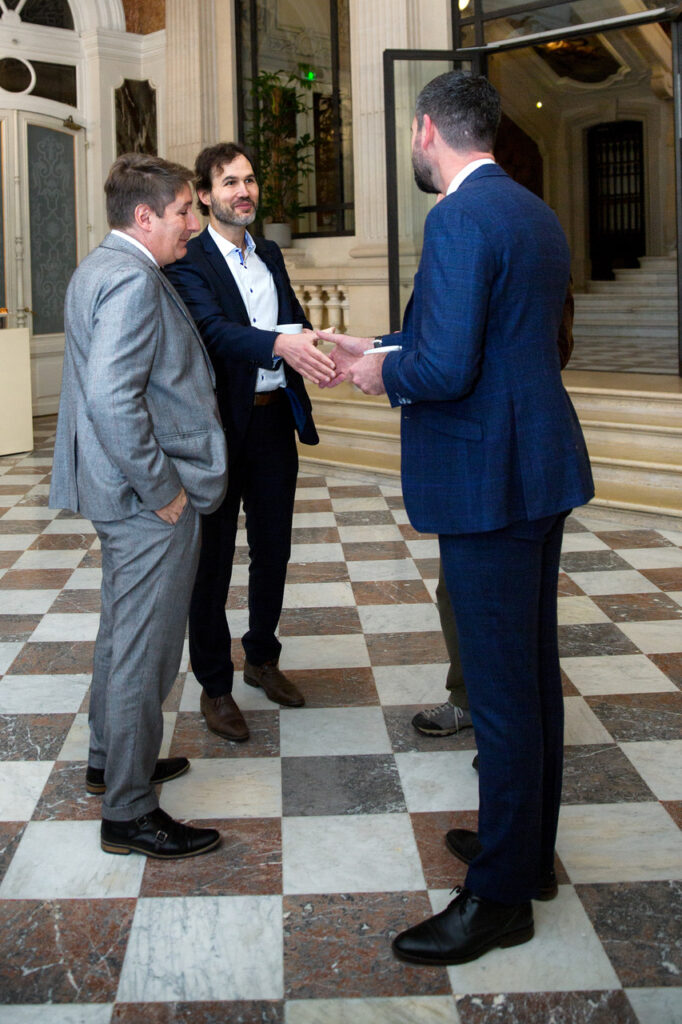
COP 27: Advances on loss and damage but no breakthrough on climate finance despite a strong West African involvement
The fear of ending COP 27 without any significant advances was looming over Sharm el-Sheikh, Egypt, in the dying hours of this year’s United Nations Climate Change Conference.
But after a final negotiations marathon between the parties, a deal was eventually struck.
The agreement which concluded two weeks of discussions and negotiations in the Egyptian coastal city offered an important step forward in the contentious question of loss and damage. Parties agreed to establish a loss and damage fund which will help support those countries most impacted by climate change. The fund will provide financial relief to respond to the catastrophic effects of the environmental crisis, like droughts, heatwaves, floods, or cyclones.
Efforts Remain Insufficient
While encouraging as a signal of international solidarity in response to environmental catastrophes, the final agreement fell short of many COP 27 participants’ expectations and hopes. In an interview for TV5 Monde, Hakima El Haite, board member of The Bridge Tank, expressed her disappointment with the lack of advances at COP 27:
“It is true that we have taken a step forward by agreeing on the creation of a mechanism that will still require time. The more we mitigate CO2 emissions and the more we reduce CO2 concentrations, the less we will need to adapt and the less money we will need to repair the damages caused by natural disasters. And so we have to act and it’s not up to the vulnerable countries to act, it’s the emitting countries that emit 80% of the emissions that have to provide 80% of the solutions in their own countries.”
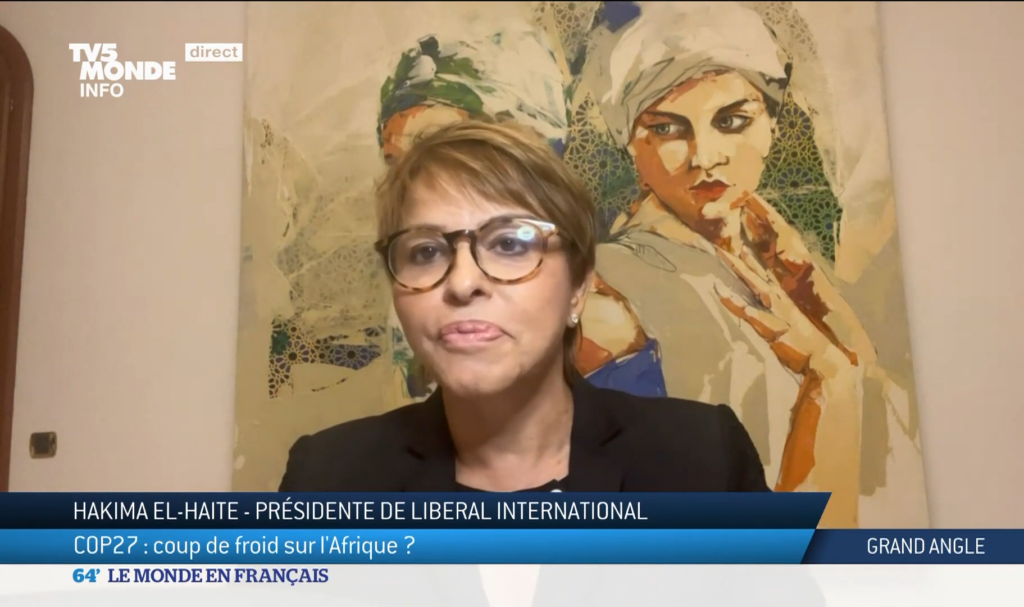
This opinion was shared by many, particularly in the Global South and West Africa, a region which faces some of the most dire effects of climate change and which had come with strong demands and expectations to COP 27, the African COP.
A Strong and Proactive West African Presence at COP 27
Representatives from West African countries had arrived at COP 27 with the hope of seeing strong decisions being made to relieve the environmental pressure affecting the continent. Before the beginning of COP 27, the Economic Community of West African States (ECOWAS) had shared some of the points it considered crucial to successful climate change negotiations:
- Increasing the ambition of greenhouse gas emission reduction, specifically for the biggest emitters
- Article 6 of the Paris Agreement with regard to generating new financing opportunities in the region and defining the new carbon market mechanisms
- Adaptation: moving from planning to operationalizing
- Loss and damage: providing concrete responses to the existing loss and damage in West Africa
- Climate finance: meeting the 100-billion-dollar target of the Green Climate Fund and establishing a financial facility specifically dedicated to African countries to focus on their needs and priorities in terms of adaptation.
Intent on making the sub-region’s voice heard at COP 27, West African institutions joined forces in Sharm el-Sheikh at the West Africa Pavilion. This pavilion was co-piloted by ECOWAS and the West African Development Bank (WADB), in partnership with the West African Economic and Monetary Union (WAEMU) and the Permanent Interstate Committee for Drought Control in the Sahel (CILSS).
“The pavilion expresses the willingness of regional institutions to strengthen their cooperation around the common challenge of climate change. The approach aims to improve the coordination and effectiveness of the collective response for the benefit of the region’s populations,” ECOWAS communicated prior to the conference.
For two weeks, the four West African institutions thus contributed to moving public debate on climate action and climate finance forward.
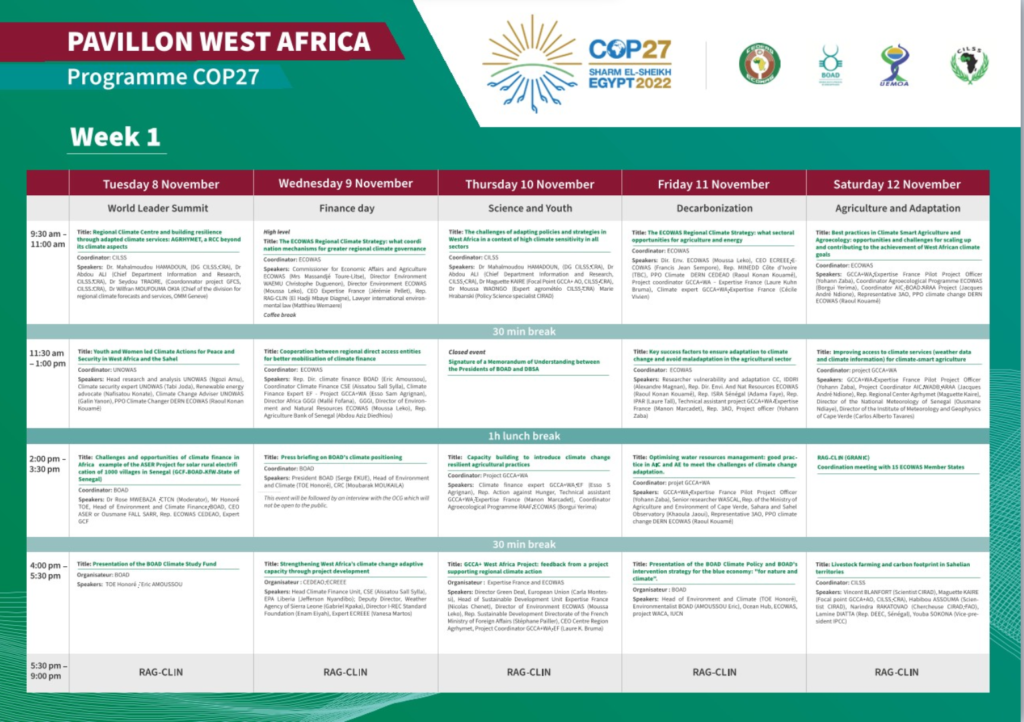
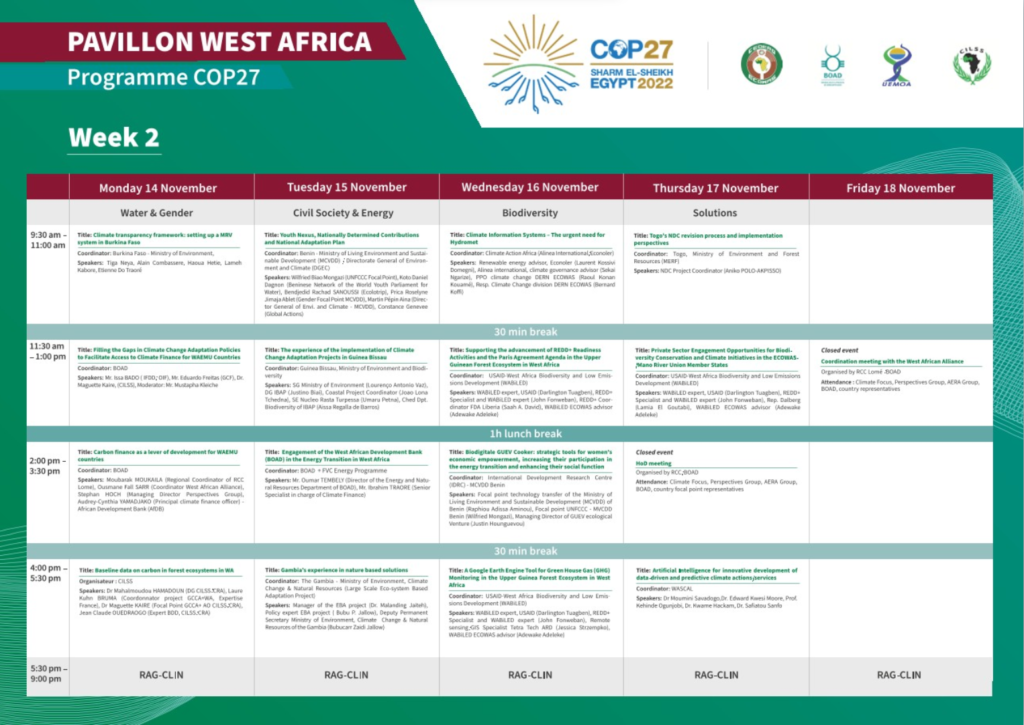
Leading voices on climate governance and climate finance
The ECOWAS Commission made use of its presence at the West Africa Pavilion to organize side events introducing the union’s Regional Climate Strategy. These included a session on November 9th on coordination mechanisms for greater regional climate governance and another one on November 11th on the sectoral opportunities the strategy offers for agriculture and energy.
The West African Development Bank (WADB) was also very active on the Pavilion. On November 9th, Serge Ekué, President of the WADB, gave a press briefing on the WADB’s climate positioning. This was an opportunity to discuss the WADB’s Djoliba 2021-2025 Strategic Development Plan, which allocates 25% of the bank’s total commitments to climate finance in order to support member states in the financing of their Nationally Determined Contributions (NDC) and the achievement of the Sustainable Development Goals (SDG). Through its president, the WADB expressed its wish to be a catalyser of resilience and adaptation to climate change and a facilitator of sustainable and stable growth.
Capitalizing on the centrality of climate finance at this year’s climate change conference, the WADB organised a number of events on the matter, including a panel on “Challenges and opportunities of climate finance in Africa,” and two sessions on November 14th, “Filling the Gaps in Climate Change Adaptation Policies to Facilitate Access to Climate Finance for WAEMU Countries” and “Carbon finance as a lever of development for WAEMU countries,” with the participation of the West African Alliance On Carbon Market and Climate Finance.
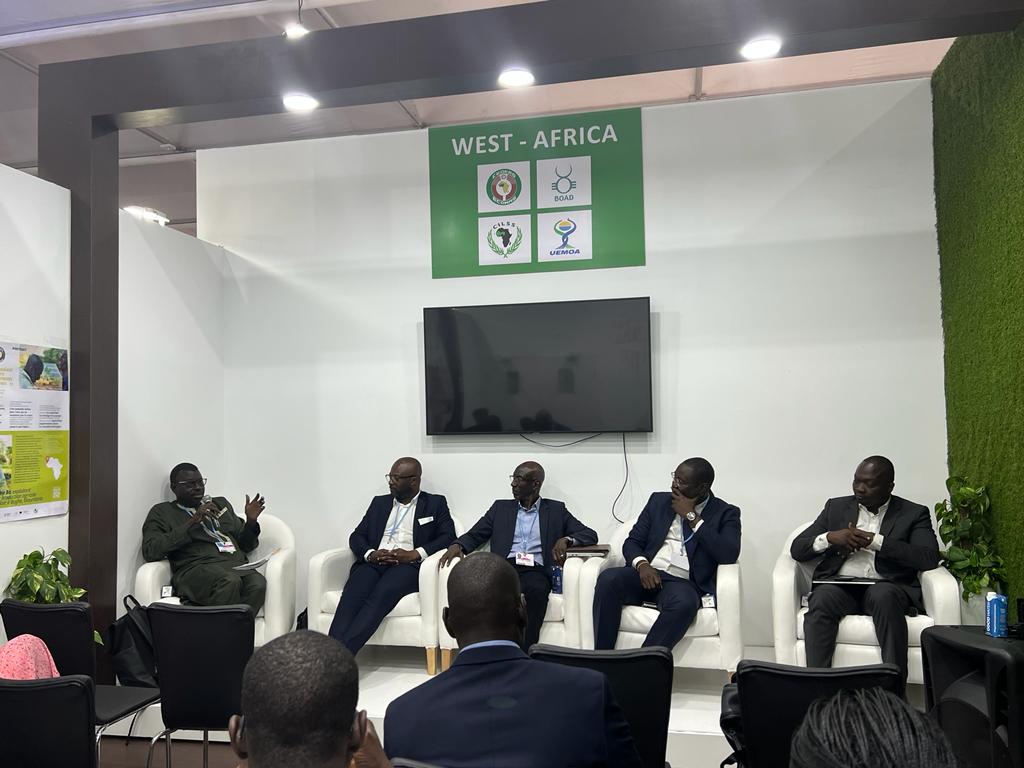
The WADB also took part in side-events organised by other institutions in Sharm el Sheikh, including one by the Green Climate Fund on the Great Green Wall for the Sahara and Sahel.
This importance of climate finance on this year’s agenda at COP 27 also mobilised The Bridge Tank, which co-organised a side event with Liberal International on North-South dynamics in climate finance. The panel discussion “Towards a balanced, empowered, North-South blended climate finance for mitigation and adaptation” included prominent figures and institutions from West Africa and provided an additional building bloc to the pursuit of a more effective and balanced climate finance.
Despite these many efforts and calls for bold measures, COP 27’s final agreement comes as a disappointing conclusion to two weeks of active involvement on the ground from West African institutions and countries. The wish to make COP 27, the African COP, an important milestone in the fight against climate change and the establishment of climate finance mechanisms ensuring the continent’s preservation has been left unfulfilled, to the frustration of many.
COP 27: From Distrust to Trust: Towards a balanced, empowered North-South blended climate finance for mitigation and adaptation
As COP 27 slowly draws to a close, The Bridge Tank continues its efforts in favour of climate justice in Sharm El Sheikh, Egypt.
On Thursday, November 17th, 2022, The Bridge Tank and Liberal International joined forces to organise a side event on climate finance – “Towards a balanced, empowered, North-South blended climate finance for mitigation and adaptation.” The Bridge Tank was represented by Dr. Joel Ruet, President, and our board member Dr. Hakima ElHaite, President of Liberal International.
The Bridge Tank made use of its long experience on the topic of climate finance, having contributed to the Task Force on “Climate change and finance” of the T20 for the past 6 years.
Participants to the panel included Ms. Kadiatou N’Diaye, former Minister of the Environment, Water, and Forest of Guinea, representatives of the Brazzaville Foundation, directors of the Agricultural Bank of Niger, and the President of the Egyptian conservative party.

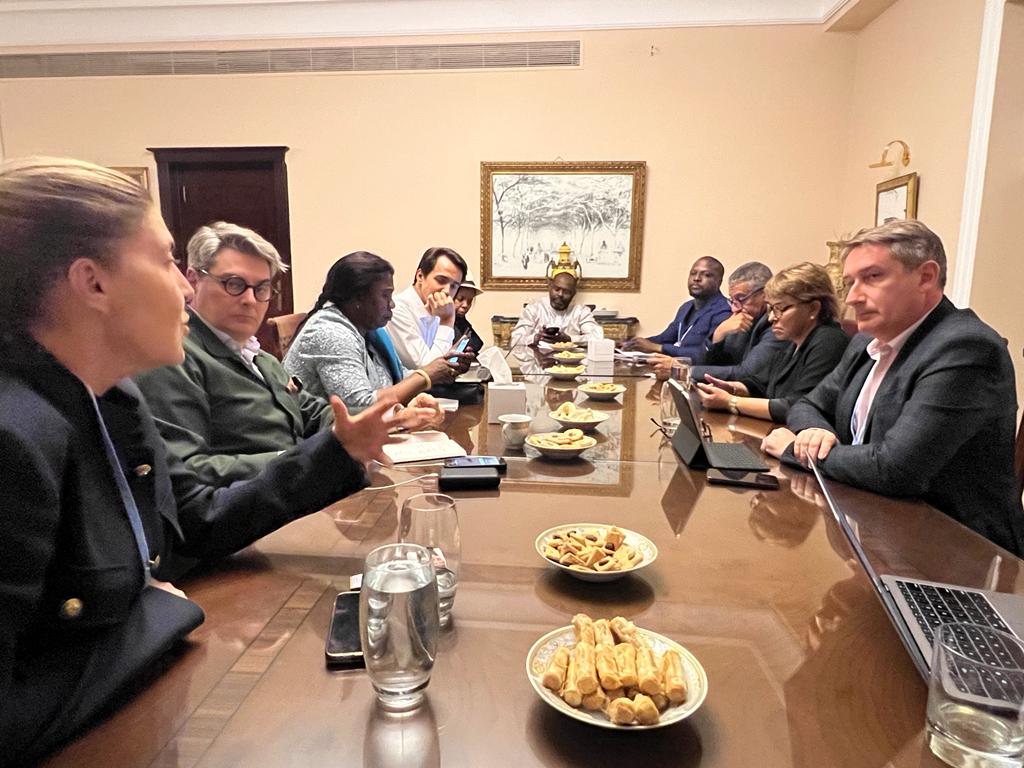
The panel discussion addressed the current state of climate finance and adaptation finance. While a doubling of efforts for the latter was included in the Glasgow Climate Pact, bringing adaptation finance from around USD 20 billion to USD 40 billion, many challenges remain, as some of the wealthiest countries are not keeping their side of the bargain.
The President of the Congo Basin Blue Fund thus left COP 27 to denounce this lack of financial support. In 2021, US President Joe Biden pledged USD 50 million to the Adaptation Fund but the contribution never materialised. This year, Biden increased the United States’ promise to USD 100 million. The example of the Congo Basin is emblematic of the gap between institutional promises and the actual reality on the ground.
Today’s USD 82 billion in climate finance for the Global South are 60% of private loans. Despite facing the most dire effects of the current environmental crisis, the African continent only receives 5% of these funds. This shows “neither a form of obligation nor of solidarity”, claimed Hakima el Haite. The political consensus in the Global South is therefore that funds are lacking, which is all the more alarming when considering the Intergovernmental Panel on Climate Change’s (IPCC) forecast that only 8 years are left before the situation becomes critical.

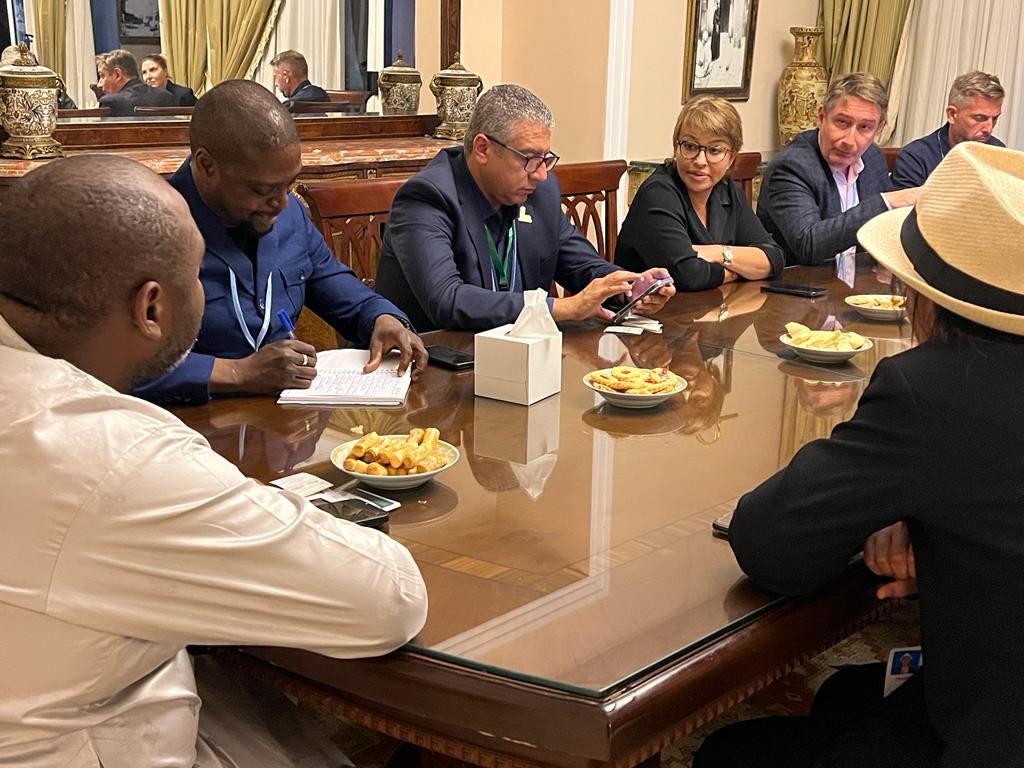
Having established that, the panel discussed concrete ways of adapting financial tools to make for a more efficient and balanced climate finance. Some of the main challenges raised here were the difficulties of accreditation for the Green Climate Fund and the Adaptation Fund. Mobilising necessary funds was likened to an uphill battle. While being indeed accessible, the mobilisation of sums around USD 10 million is slowed down by protracted procedures. The challenge is even greater for scale up projects with funding needs in the hundreds of millions USD.
The panel thus sought to find innovative funding sources and efficient disbursement channels.
Profit sharing agreements could be one possibility. These would require national frameworks for private contracts establishing profit sharing agreements where private and public funding would be poured into a common public fund dedicated to concrete projects. This procedure is for example already used by oil companies.
Despite only being a parallel mechanism, carbon credits could also include a direct transfer to public assistance beneficiaries.
Discussions on alternative financing seem to have abandoned the idea of taxation of the Global North since COP21-22. Solidarity is therefore not an appropriate description of the current financial processes. With 80% of African oil production being operated by foreign companies, the USD 100-billion climate finance pledge should be defined as a debt the North owes the South. But the current climate finance’s reliance on loans has the opposite effect, creating additional South to North debt.
Other ideas are centred around a renewed system of governance. The lack of bankability, transparency and competence associated with the Global South reflects the North’s lack of confidence in the South. While challenges to co-management and co-financing are also partly found in a mismanagement of African resources and wealth, which impedes its ability to effectively finance adaptation and mitigation itself, new mechanisms must be developed to turn this North-South defiance into mutual confidence.
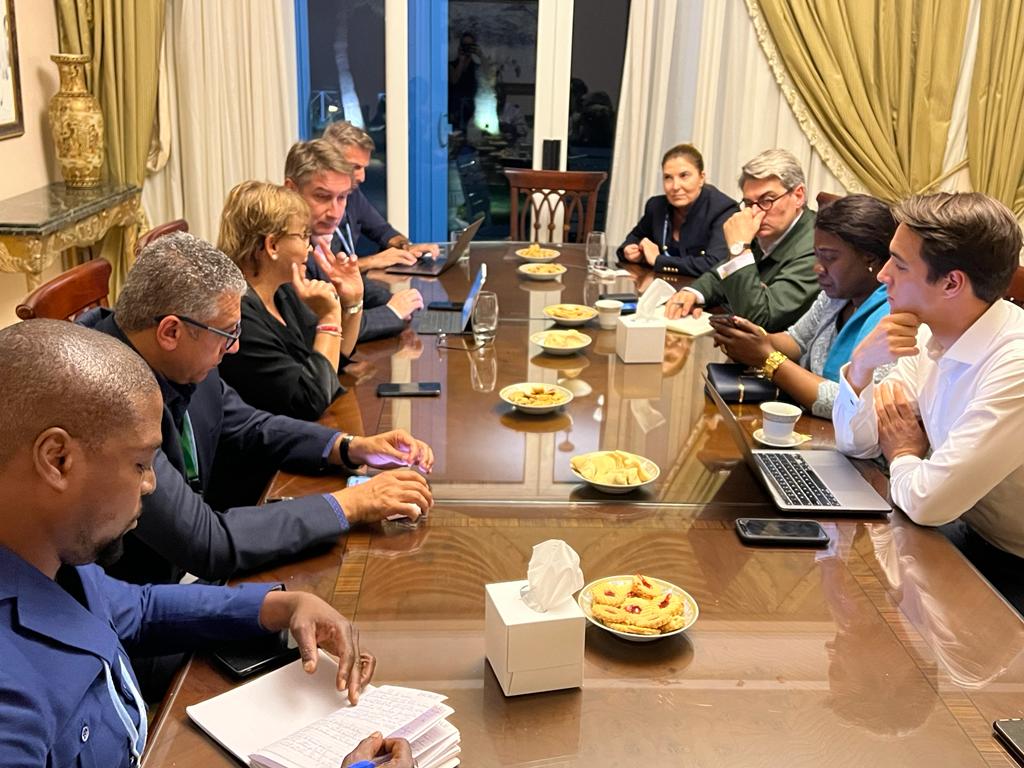
Establishing incubators working towards large-scale structuring projects could be one way of achieving this. Working on co-management and co-governance is thus an encouraging prospect, as it is already well established within other structures, e.g. business angels or investment funds.
Another key point discussed on the panel was the idea of reversing conditionalities and for Africa to have the power to impose conditionalities. These could for example include the requirement for funders to be present on the ground and thereby encourage the emergence of local research departments and local development companies. One main challenge is therefore for both states and international funders to support the emergence of African and sub-regional multinational companies.
The issues of human resources and insufficient administrative capacity building in the South must also be connected to the complexity of international procedures. Encouraging signs can be found in the successful examples of the Micro Finance Program of the Global Environment Facility (GEF) which facilitates administrative procedures.
Finally, questions of innovative bottom-up finance provided another key talking point to the panel. To ensure complex assets have simpler assets as securities, a pan-African fund of security and risk mitigation would be needed.
The question of land guarantees also needs careful attention in order to develop a system which would aim, for example, for projects to be funded at 95% through grants and 5% coming from the community or guaranteed by private banks. The question remains whether these would be accepted by bilateral agencies.
Nevertheless, commercial banks, as the example of Niger shows, are ready to go ahead with such projects because of the emergency to take action. Every year Niger loses 100,000 ha to desertification, making the need for funding all the more pressing.

The Bridge Tank continues its involvement on hydrogen at COP 27 through a high-level panel on African Green Hydrogen Hubs
The Bridge Tank’s continued engagement on questions of hydrogen has put it at the forefront of public debate on the matter. Over the years, this has resulted in a number of publications on hydrogen (our report & our policy brief), and led to The Bridge Tank being the only think tank invited to the launch of the Hydrogen Council in Davos, in 2017.
This active involvement and expertise on hydrogen was once again put to use during this second week of COP 27 in Egypt.
The Bridge Tank, represented by Dr. Joel Ruet, President, and Dr. Hakima el Haite, board member, took part in a high level panel discussion co-organised by the International Solar Alliance and Liberal International on “Energy, Green Hydrogen in Africa; Perspectives for Solutions” in Sharm el Sheikh, on November 15th, 2022.
The meeting brought together prominent leaders from the political sphere to establish strategies for the African continent to sustainably harness its existing resources and meet its growing energy demand, while following a sustainable path to a net-zero future and delivering on the Sustainable Development Goals. This energy demand is a necessary component of the continent’s economic development and offers a way to lift many of its citizens out of poverty.
Participants to this high-level panel discussion included representatives from various government organizations, private sector actors, political figures, and members of the French and American press. Among these were the CEO of the Namibia Investment Promotion and Development Board, advisor to the President of Namibia, a representative of the Minister of Energy of Mauritania, a representative of the National Agency for Renewable Energies of Senegal, and the Vice-President of the Energy Commission of the Parliament of Portugal.
Further participants included the Secretary General of the International Youth Nuclear Congress (IYNC), the Director General of Energies 2050, and various members of Liberal International and investment representatives.
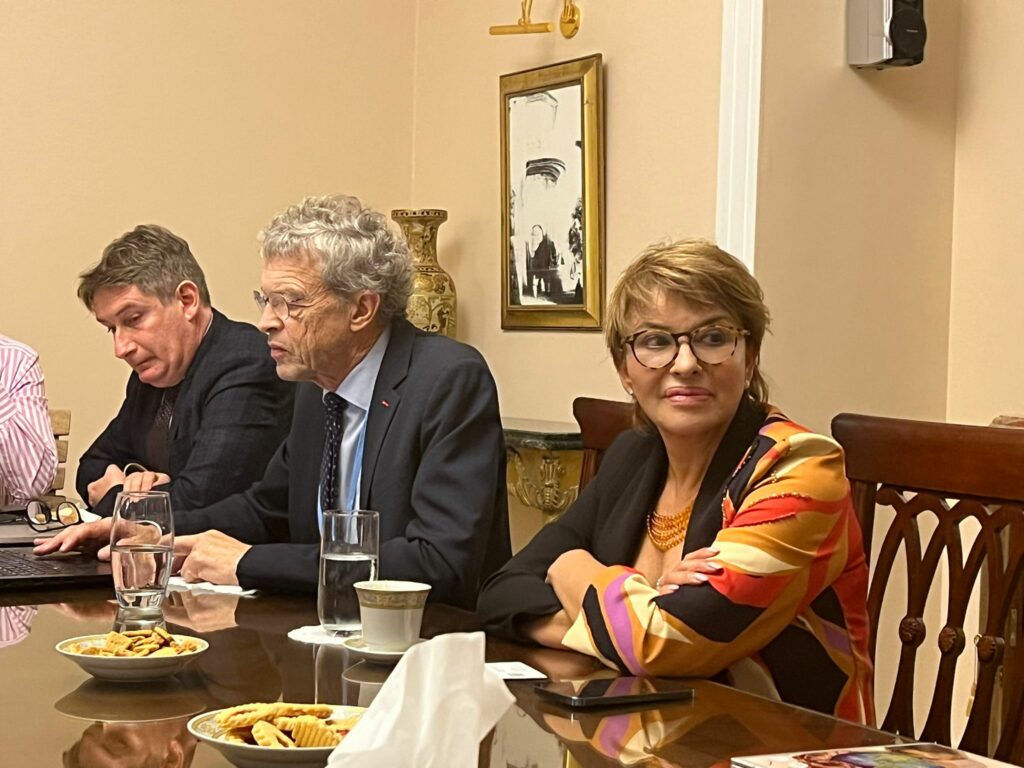
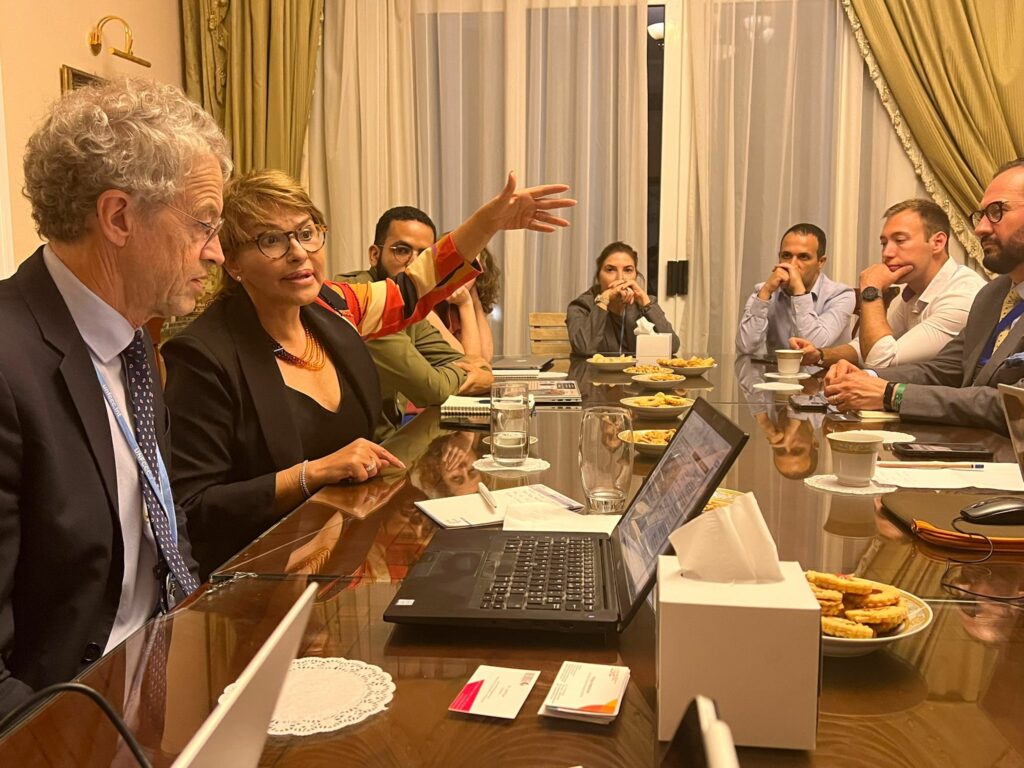

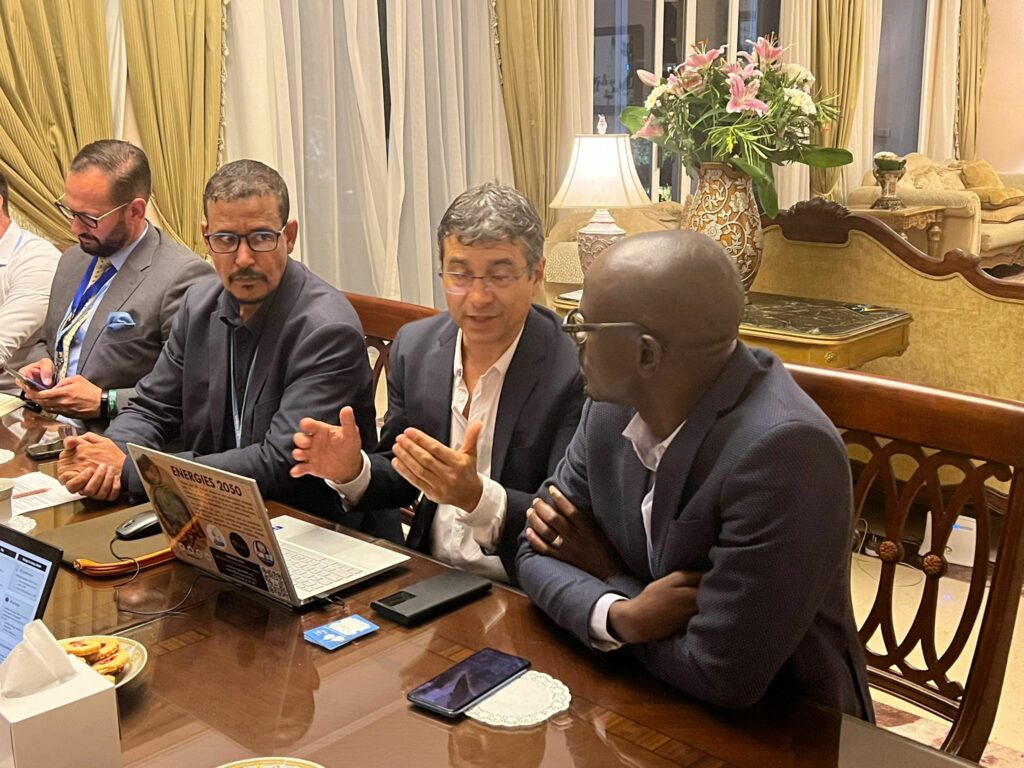
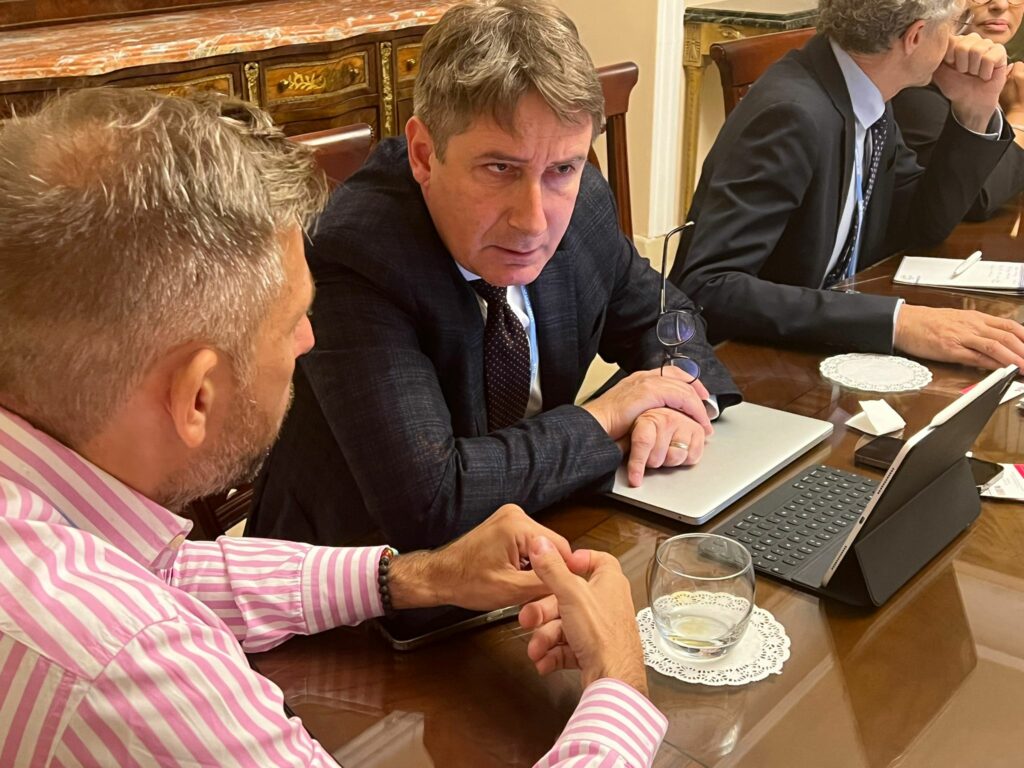
The discussions built on a presentation provided by the International Solar Alliance (ISA), which offered insights into a study on the possible development of green hydrogen hubs in Africa by 2030-2035. Financed by the European Investment Bank and supported by Liberal International, this study was conducted by the ISA, an organisation of about 120 nations launched in 2015 by Narendra Modi, Prime Minister of India, and Francois Hollande, Former President of France.
The study provides an innovative approach to green hydrogen production and hydrogen export perspectives for African countries, defining the creation of a local market as a necessary prerequisite for a stable long-term export strategy. This local hydrogen market would rely on a local industrial demand from “hard-to-abate” sectors (e.g. for the steel industry, ammonia production, energy, or mining), for which decarbonation is of intrinsic value.

Green hydrogen would be produced through water electrolysis making use of solar energy. With water being a rare commodity in the region, the strategy plans to make use of desalinated sea water. Production sites would therefore be near the sea and create local hydrogen ecosystems with industrial sites.
The energy needed for desalination would be covered by the produced green hydrogen, making for a cost- and energy-efficient production method. It would also be possible to desalinate more water than is needed for hydrogen production. This water could then be used for irrigation or be directly incorporated in urban water supplies, alleviating water stress on the African continent.
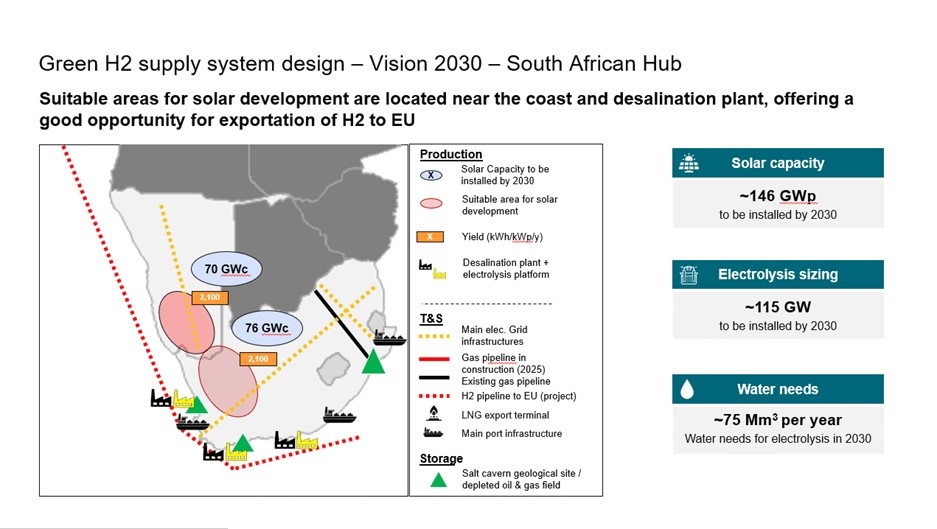
This plan is no mere abstraction but presents concrete and proven opportunities, as 14 such plants are currently being developed by HyDeal in Spain and Portugal.
Exporting hydrogen to Europe would thus only be a factor of interest at a later stage, after the establishment of a resilient and effective hydrogen ecosystem at the local level.
While many national strategies and studies focus on Africa’s potential as a producer and exporter of green hydrogen to Europe, this study provides the missing link to the establishment of such a production. It offers a way to secure and stabilise early local production through the creation of a domestic market. The potential of hydrogen would thus firstly be harvested for domestic consumption and industrial use within African countries before being used for exports.
In addition to that, this approach would create efficient and stable hydrogen ecosystems, relying on greater acceptance by the local population and industrial actors. This in turns provides national green hydrogen export programs with increased stability, granting them a strategic autonomy which would free them from a dependency of the international market, price variations, or uncertainty surrounding electrolyser technologies.
On the European side, this strategy would also allow economic hedging and greater scale-up efficiency.
The study offers a detailed and methodologically comparable assessment of possible hydrogen hubs in Africa. While it was primarily conducted in Egypt, Namibia, and Mauritania, the study’s conclusions can be replicated and expanded to other countries on the continent.
Hydrodiplomacy : International Rivers as Peace Enablers – experiences and solutions from river basin organizations
Water has long been a resource taken for granted. As its flow and presence seemed endless, neighboring states sharing access to rivers and lakes often chose to approach water in a utilitarian and competing manner.
But as the deterioration of ecosystems and the effects of climate change increasingly became apparent on this resource thought to be immutable, the realization that water needed to be managed sustainably slowly took hold.
While the UN (Transboundary and International) Water Convention adopted in Helsinki in 1992 currently only gathers 47 countries, its acceptance by the global community ought to be accelerated. Additional to the Convention, and in the age of coalitions, is the need for a Blueprint for “Shared River Basins Peace” through the promotion of sustainable management, tools, and institutions for shared rivers, or, in other words, a renewed and enlarged practice of Hydro-Diplomacy.
Concerning international river basins management, rivalry over access to the resource is the basis of international law. However the very sustainability of the resource implies cooperation across actors, which is paradoxically often domestically implemented within countries that externally fight each other.
Water, and more specifically international rivers and their management should no longer be limited to the single dimension of the quantity of water needed by a country, but addressed in a more holistic way by taking into account the whole river basin in terms of territory, actors and activities from upstream to downstream – something that some river basin organizations are already doing well, a fact that is seldom showcased.
The Senegal River Development Organization (OMVS – Organisation de Mise en Valeur du Fleuve Sénégal), an international organization which has for decades worked towards the peace of river basins across Guinea, Mali, Mauritania, Senegal, offers as an apt illustration of hydrodiplomacy put in practice.
Read our full Policy Brief here.
On the sidelines of the United Nations General Assembly, The Bridge Tank contributes to diplomatic, civil society and business events.
After two years of global pandemic, the United Nations General Assembly resumed in September 2022. As it is traditionally the case, this very active week will see the gathering of heads of state and government in New York, as well as numerous events organized by the diplomatic, civil society and business communities. On this occasion, The Bridge Tank was present and contributed to these three exchange mechanisms.

Active with the diplomatic community, The Bridge Tank has taken part in a number of events.
As an observer member of Liberal International (LI), The Bridge Tank, represented by Dr. Joël Ruet, President, attended the official high-level event co-organized by LI and “The Alliance of Her” on the theme: Women’s political rights and leadership – the key to tackling the greatest global challenges of our time. The Alliance of Her is a platform dedicated to promoting women’s political leadership and equal representation in Europe, a round table that included our board member, Hakima El Haite, President of LI.
Ahead of this roundtable, Hakima El Haite presented the 2021 Liberal International Freedom Prize to Dr. Sima Samar, Former UN Rapporteur and former Minister of Women’s Affairs of Afghanistan. Throughout her career, Dr. Samar has consistently championed the cause of women and girls and promoted the inclusion of Afghan women.
Participants included: Sima Sami Bahous, Executive Director of UN Women, Olha Stefanishyna, Deputy Prime Minister for European and Euro-Atlantic Integration of Ukraine, Alexander De Croo, Prime Minister, Kingdom of Belgium, Viktorija Čmilytė-Nielsen, Speaker of the Seimas (Parliament), Lithuania, Meryl L. Frank, American Diplomat and Board Member of the United States Holocaust Memorial and Juli Minoves, former President of LI.
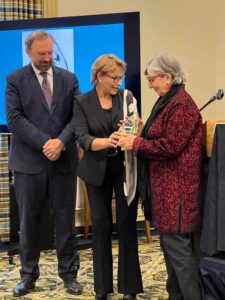
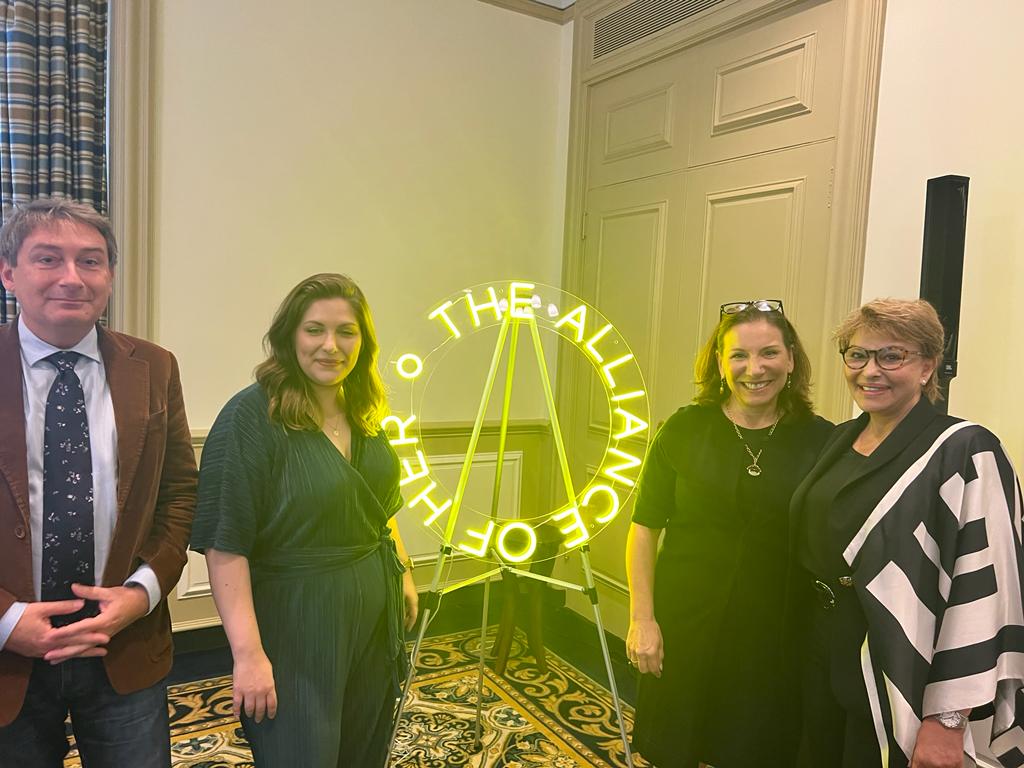
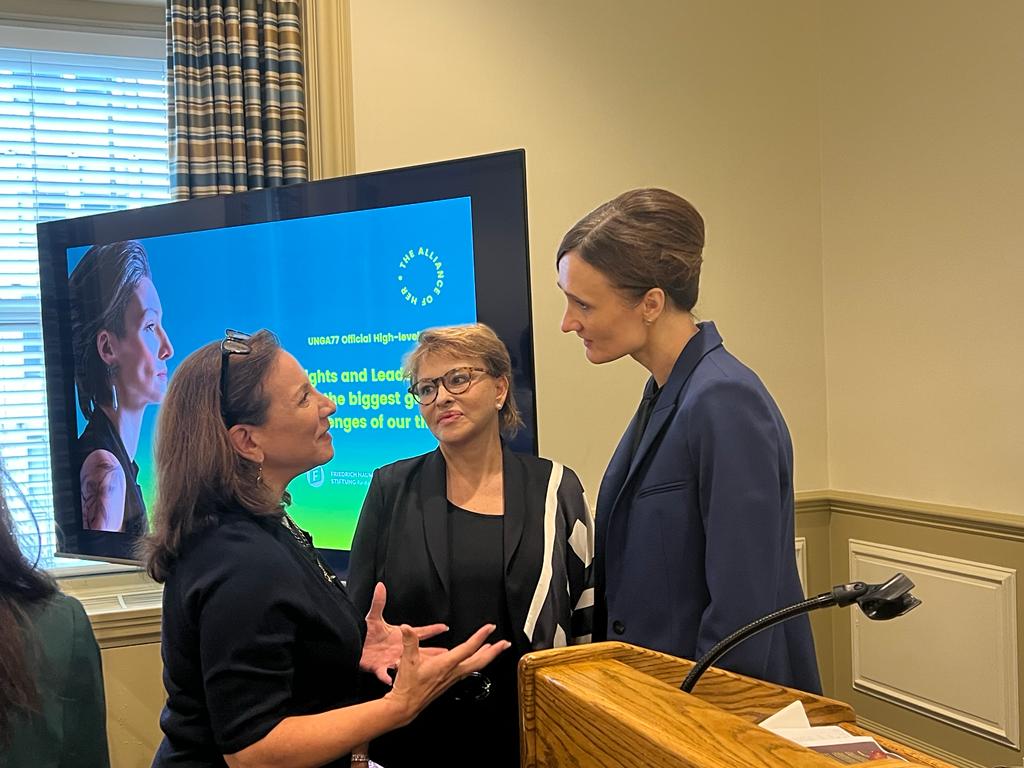
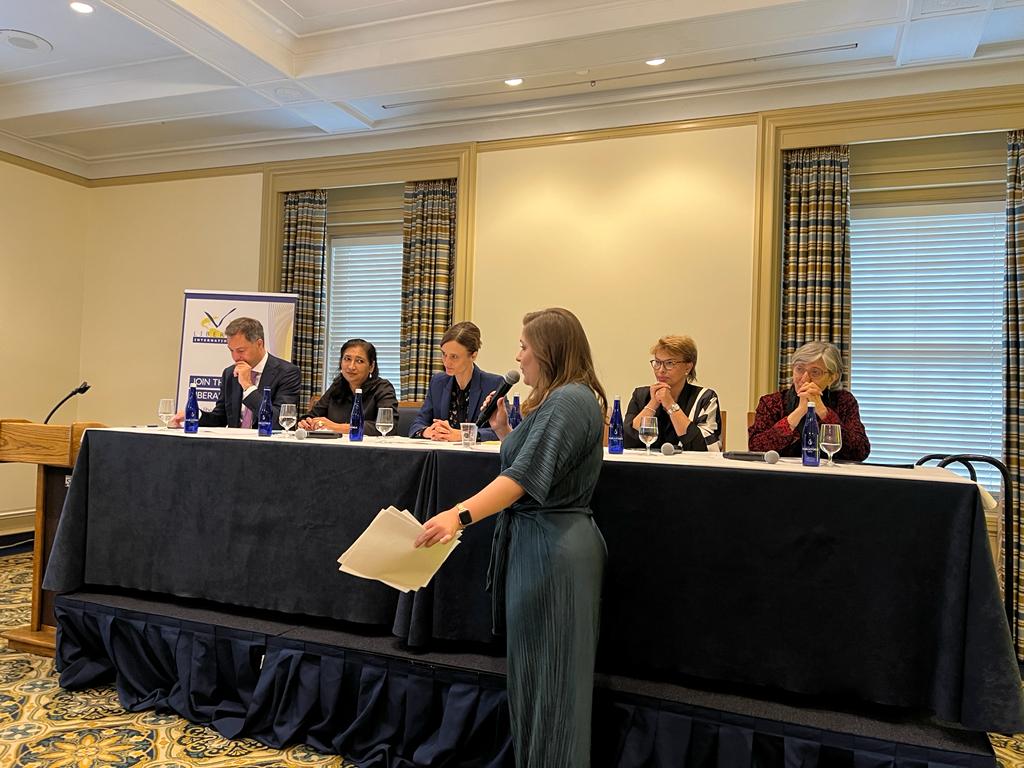
The Bridge Tank also participated in a closed meeting organized by the Estonian Permanent Mission to the United Nations on the theme: “Crisis in Belarus: implications for regional and global security” around Sviatlana Tsikhanouskaya, leader of the democratic opposition Belarusian, who was able to exchange with various diplomatic representations at the United Nations. The Bridge Tank was alongside, among others, the Swedish, German, British, United States representations, the European Union to the United Nations and the Microsoft Foundation and the PEN Foundation for this meeting chaired by the Minister of Foreign Affairs Estonian foreigners.
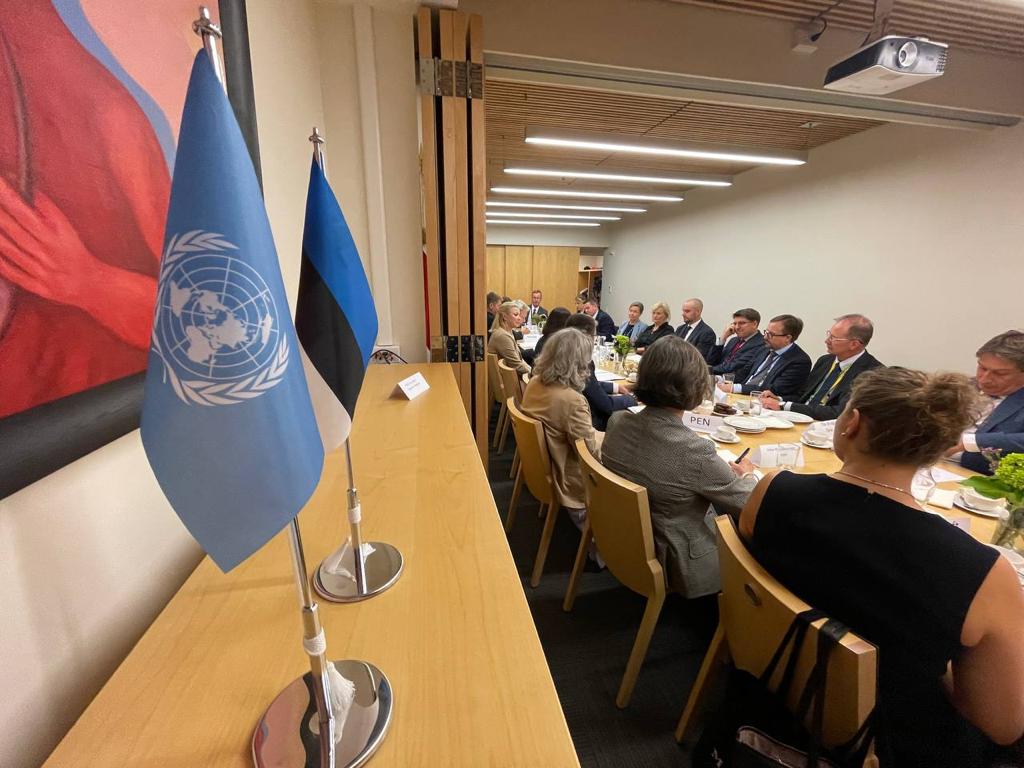
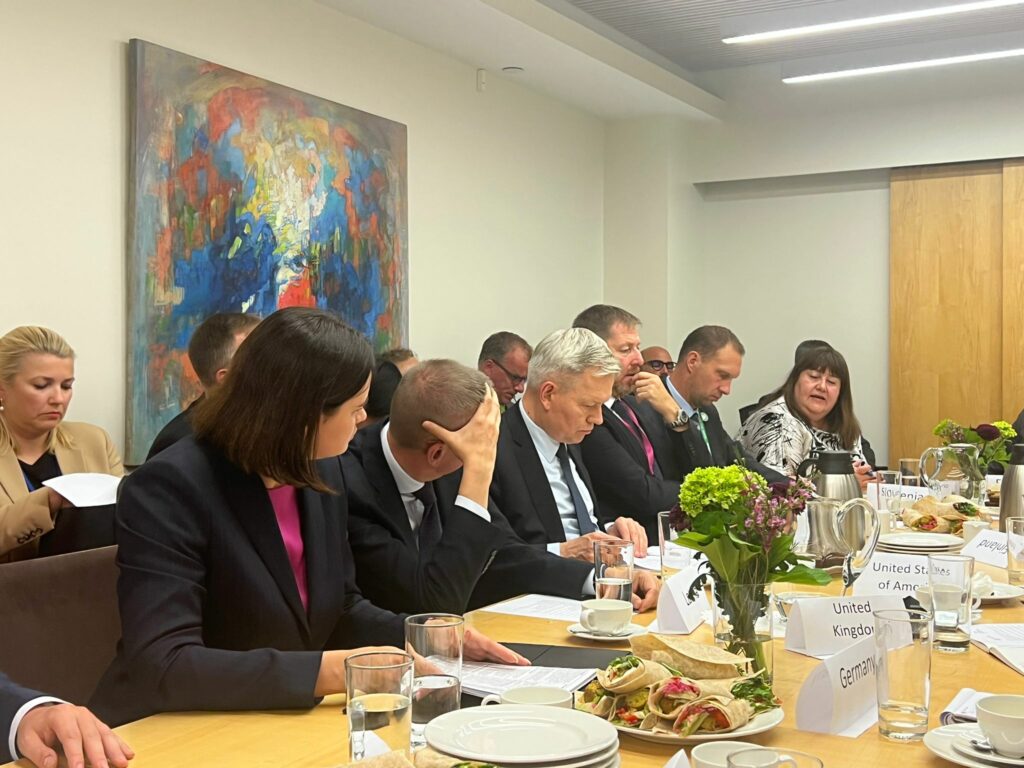
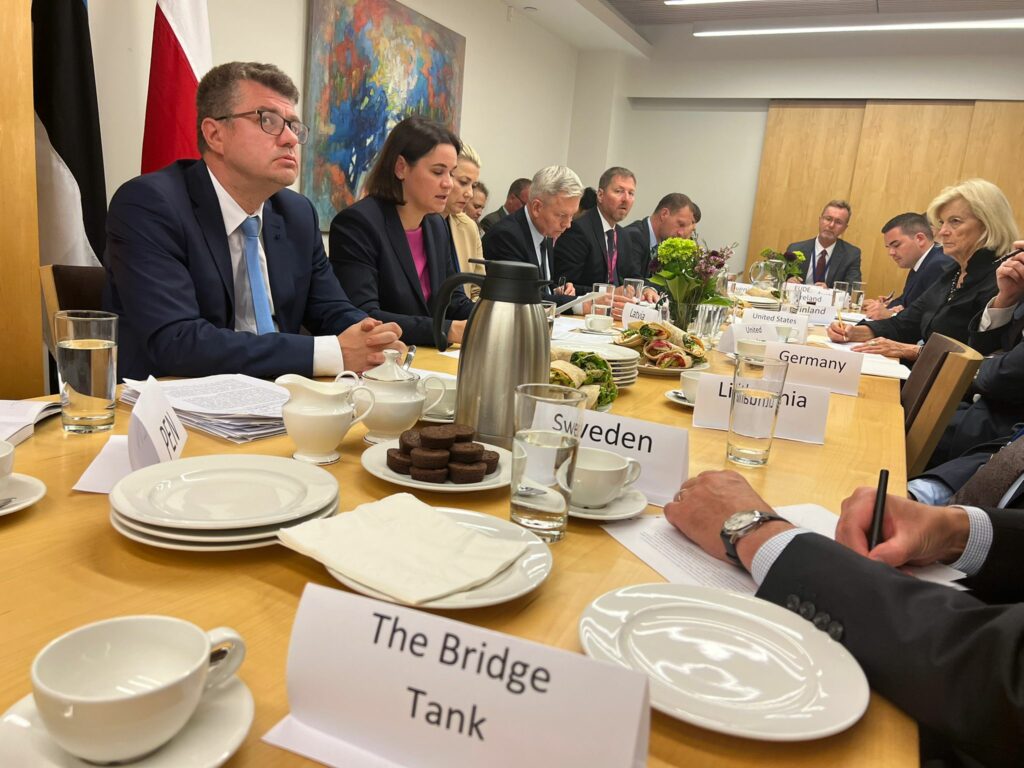
Thanks to its network and its actions, The Bridge Tank allowed the meeting between our board member, Hakima El Haité, President of the Liberal International and Sviatlana Tsikhanouskaya, leader of the Belarusian democratic opposition.
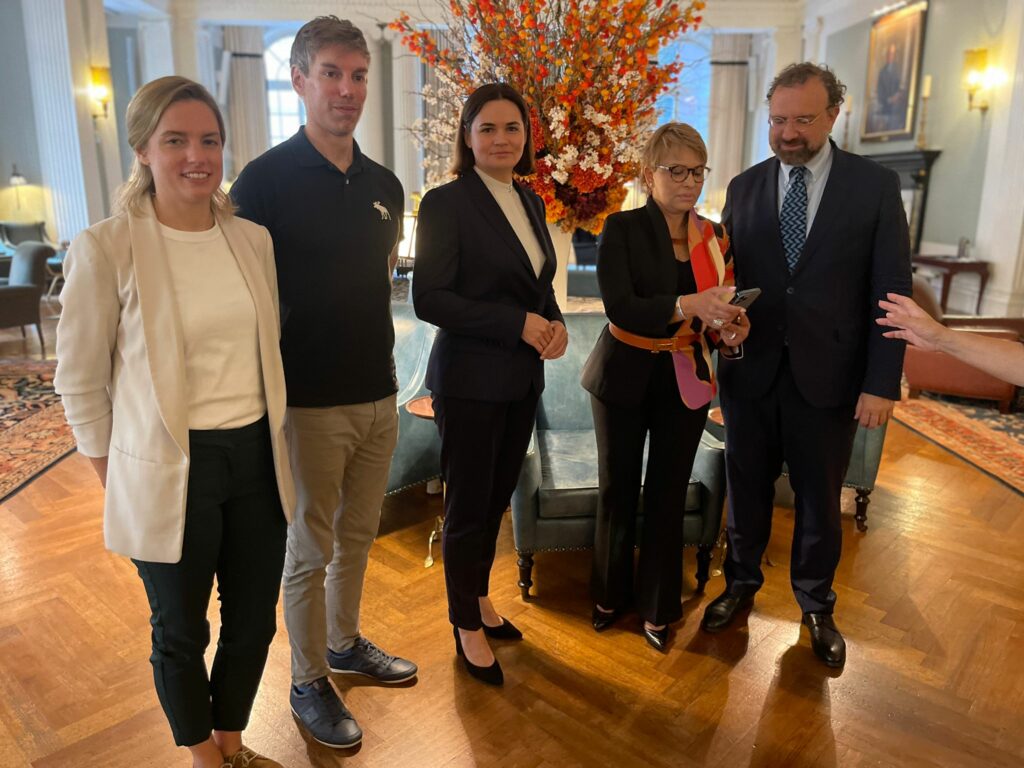
With civil society, The Bridge Tank joined meetings in favor of the fight against climate change, in particular on the question of the Sustainable Development Goals (SDGs), being one of the key subjects of this 77th General Assembly. United Nations. This year’s “SDG Moment” is an opportunity to refocus attention on the SDGs of the UN’s 2030 Agenda, a blueprint for a fairer future for people and the planet.
Joël Ruet particularly contributed his expertise during a lunch debate organized by Diplomatic Courier. These exchanges allowed reflection around the following questions: are we on the right track to achieve the SDGs by 2030? How has the pandemic accelerated or derailed solutions? How do our goals (individual and organizational) align with the SDGs? How to create extraordinary collaborations? Global Goals in Action 2022 will bring together leaders from the private sector and international organizations to leverage their experience, market access and resources to achieve the SDGs. Thus, the participants agreed to conclude on “the need for transformational change [of our societies] to make progress on the SDGs”.
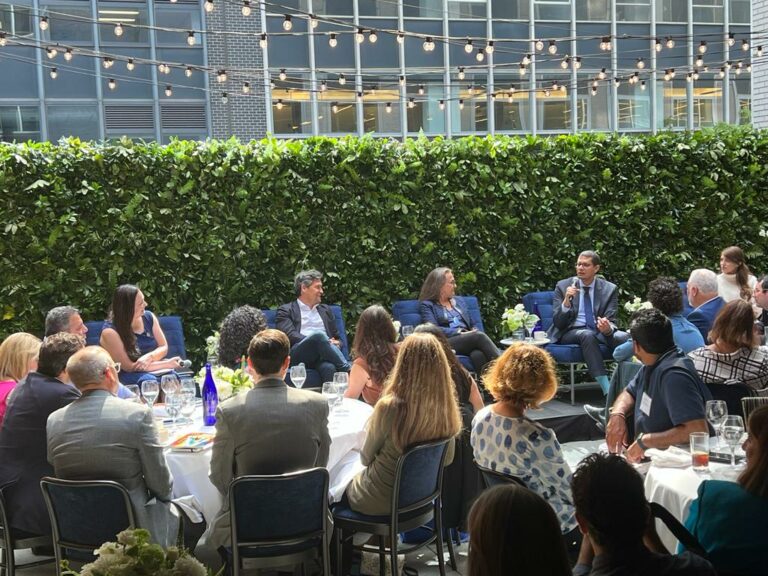
In a continuation of the discussions on the SDGs, Joël Ruet took part in the annual Concordia 2022 Summit, which was, according to the organizers, the largest gathering on the sidelines of the United Nations General Assembly. It aims to bring together the world’s biggest players to spark dialogue, promote collaboration and collectively pave the way to a more equitable and sustainable future around the themes of: environmental sustainability; global trade, manufacturing and supply chains; human rights and social progress; and financial inclusion.
On these topics and around the Nobel Peace Prize, The Bridge Tank participated in a meeting organized by the Committee to Protect Journalists (CPJ).
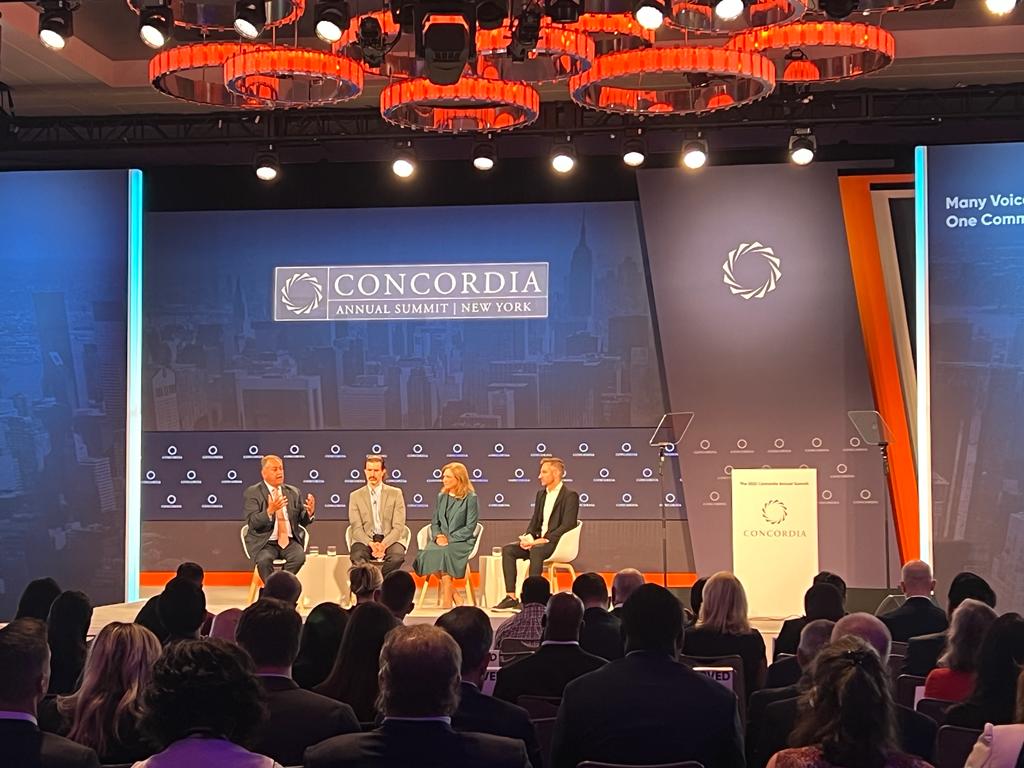
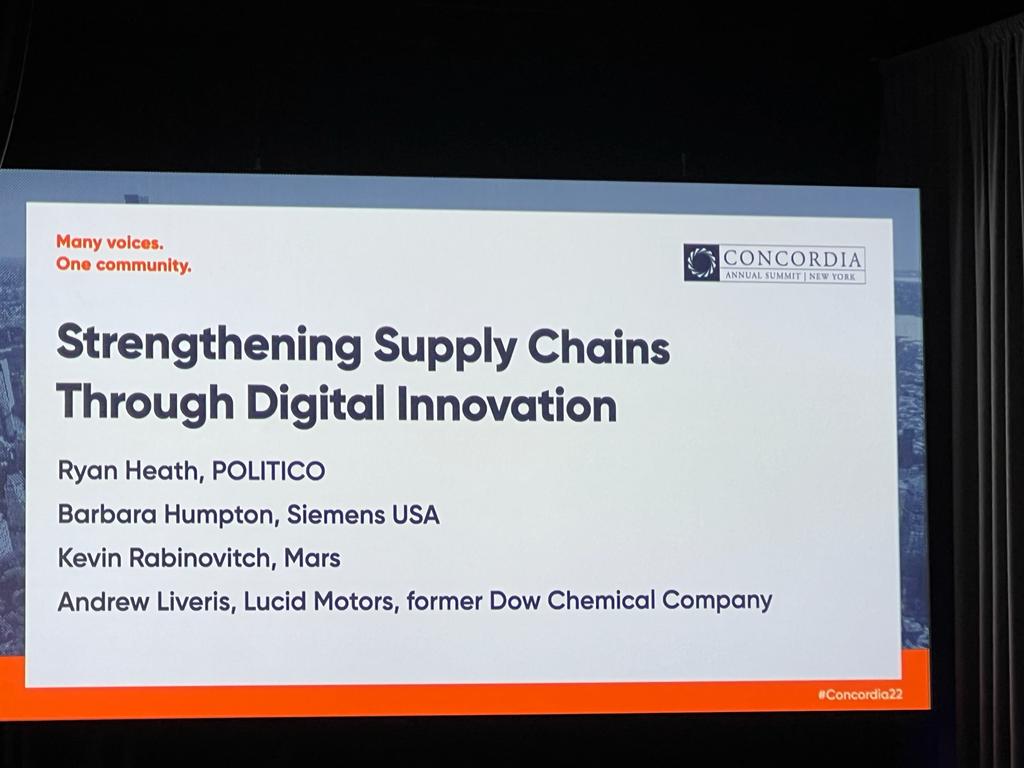
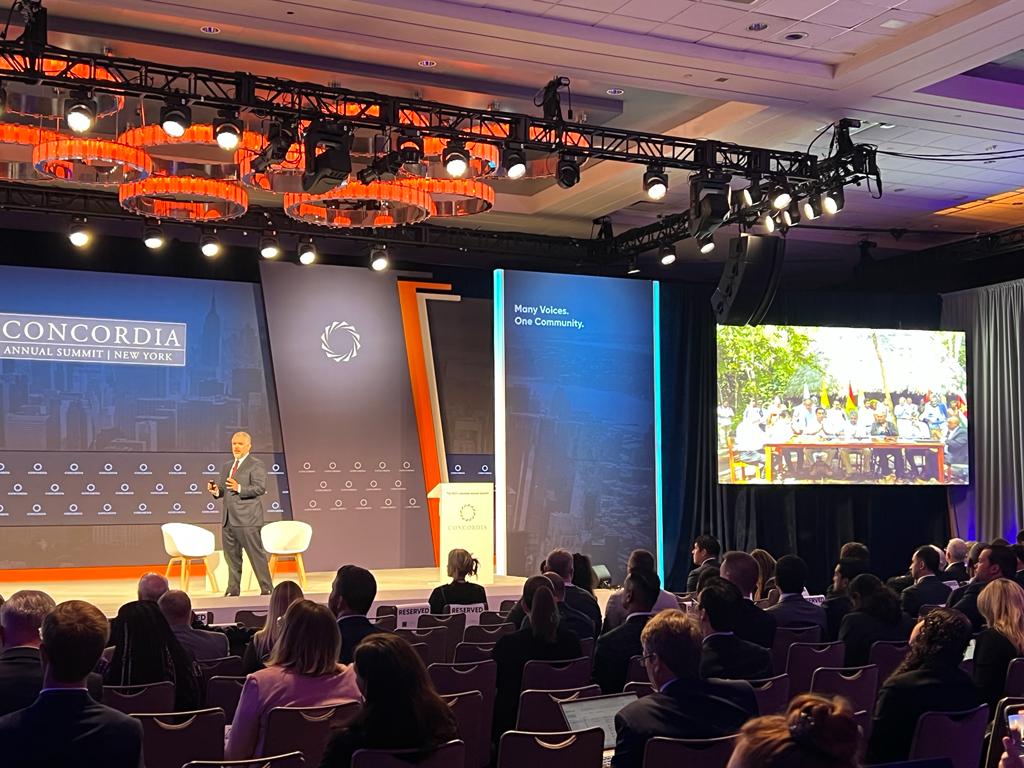
The Bridge Tank has also been involved in the business world, first of all by participating in the “Invest Africa” forum, where its President, Joël Ruet, was able to meet a number of investment actors in Africa, in particular in the Democratic Republic of Congo and Namibia – two countries in full transformation which deserve a very attentive scrutiny. He also attended a reception organized by Microscoft’s representation at the United Nations to discuss the evolution of the economic world.
